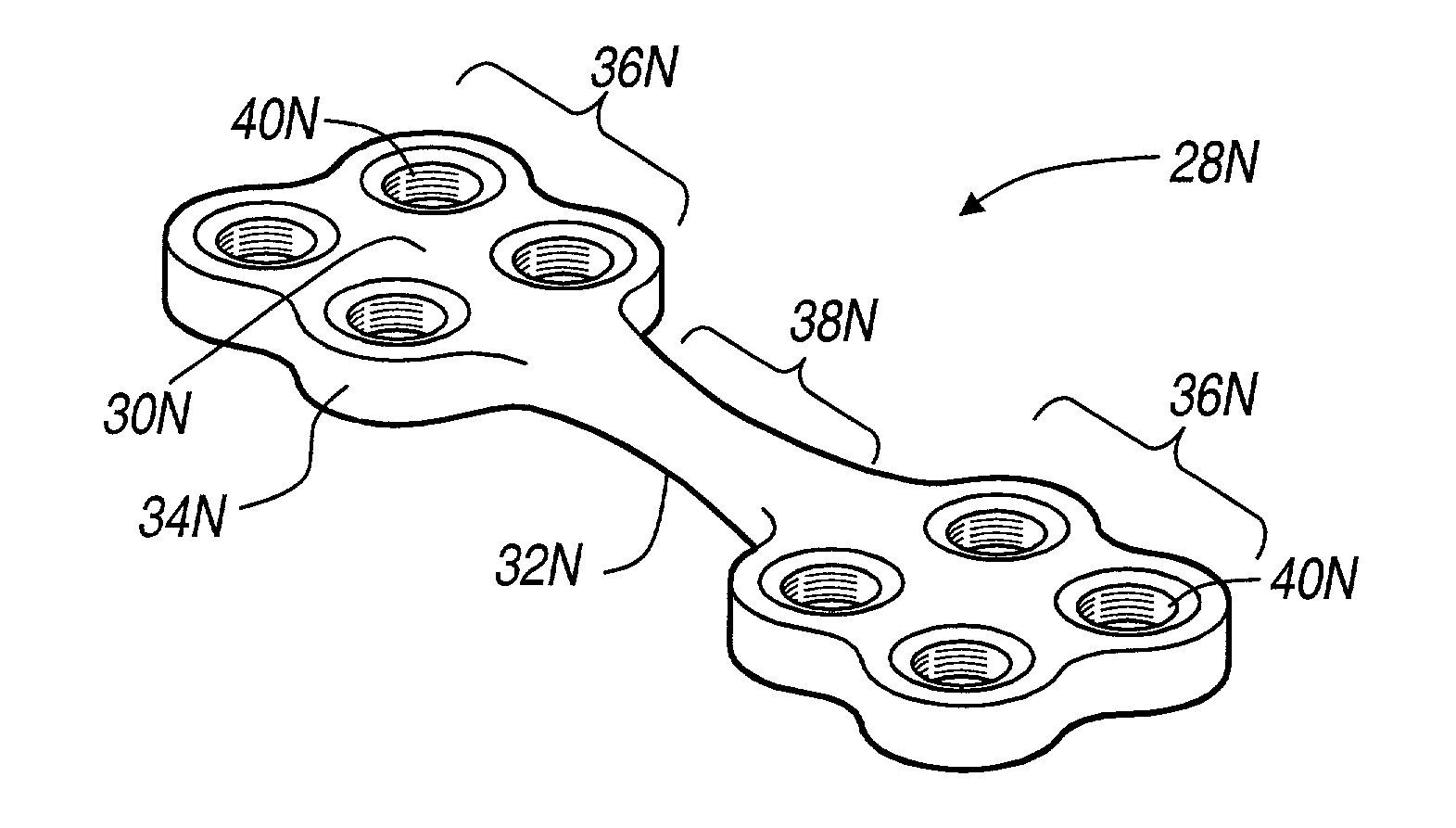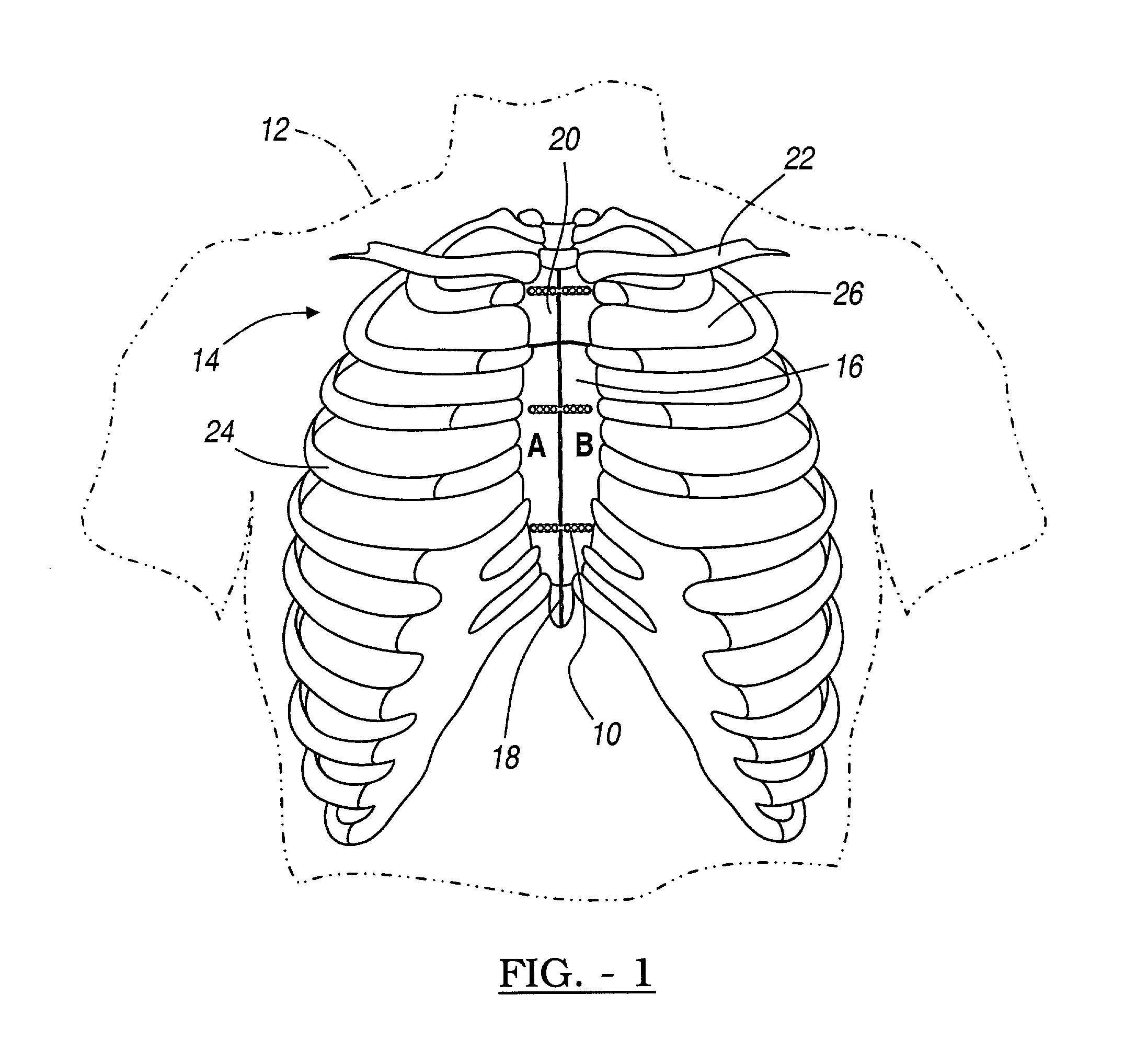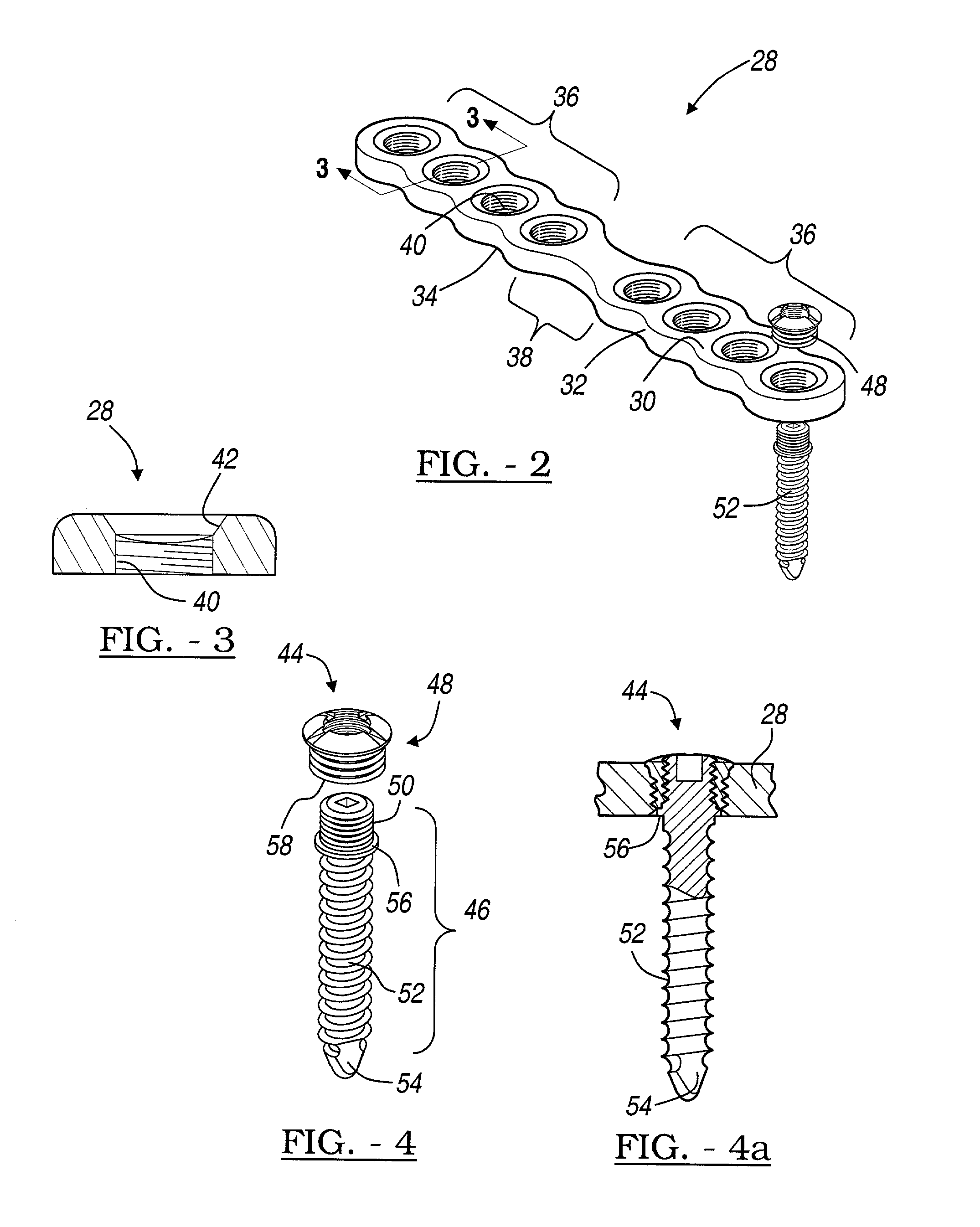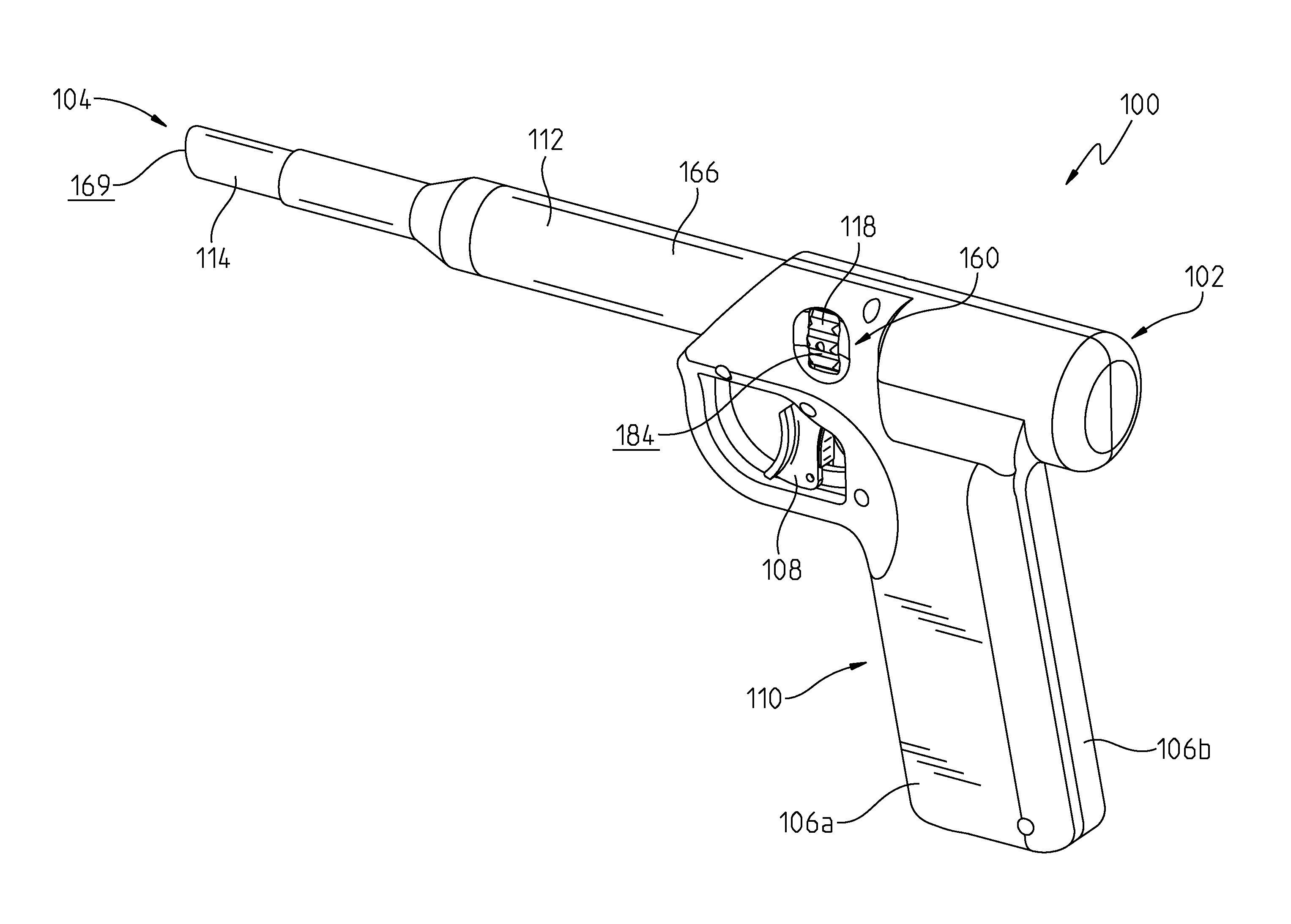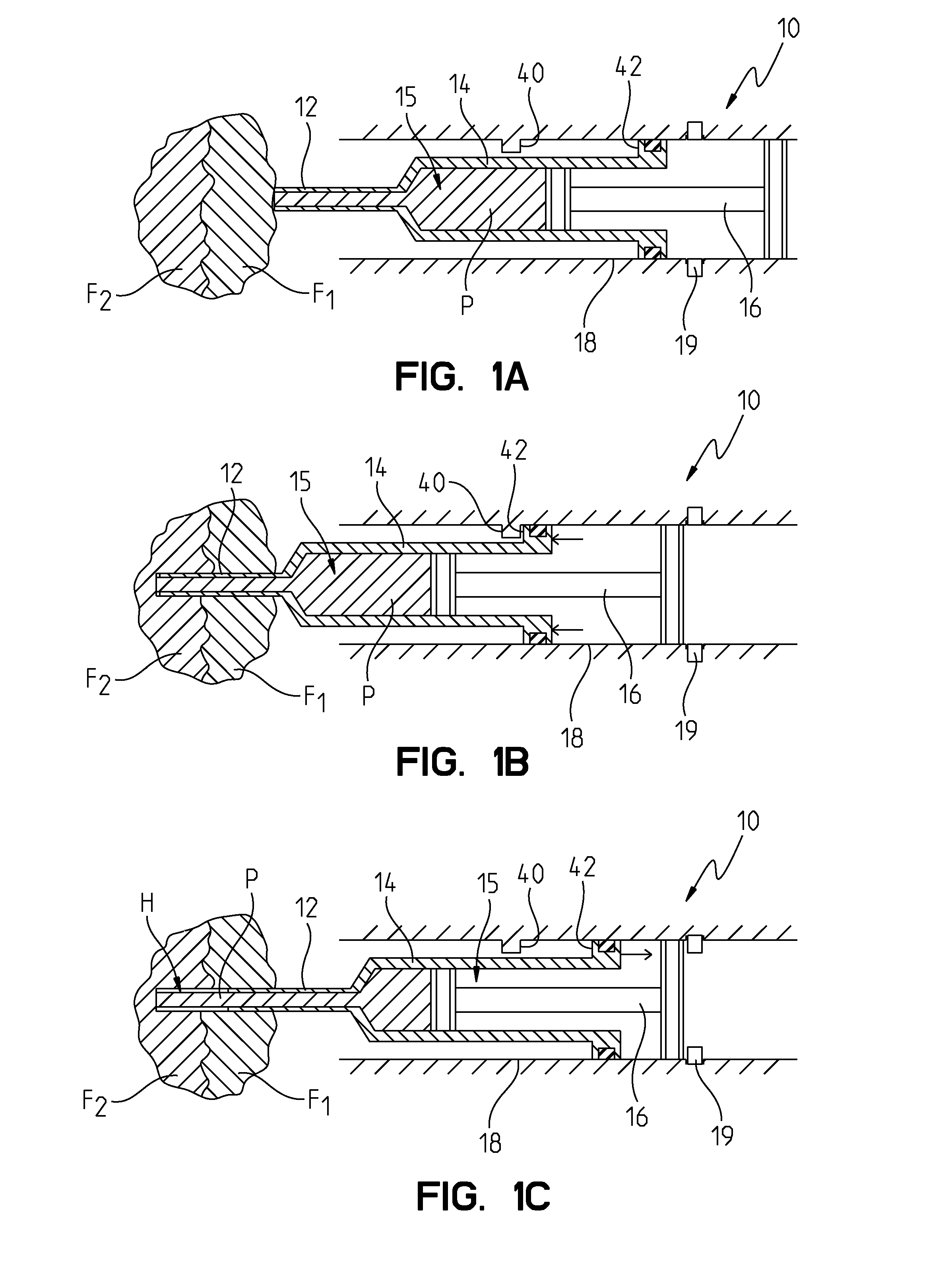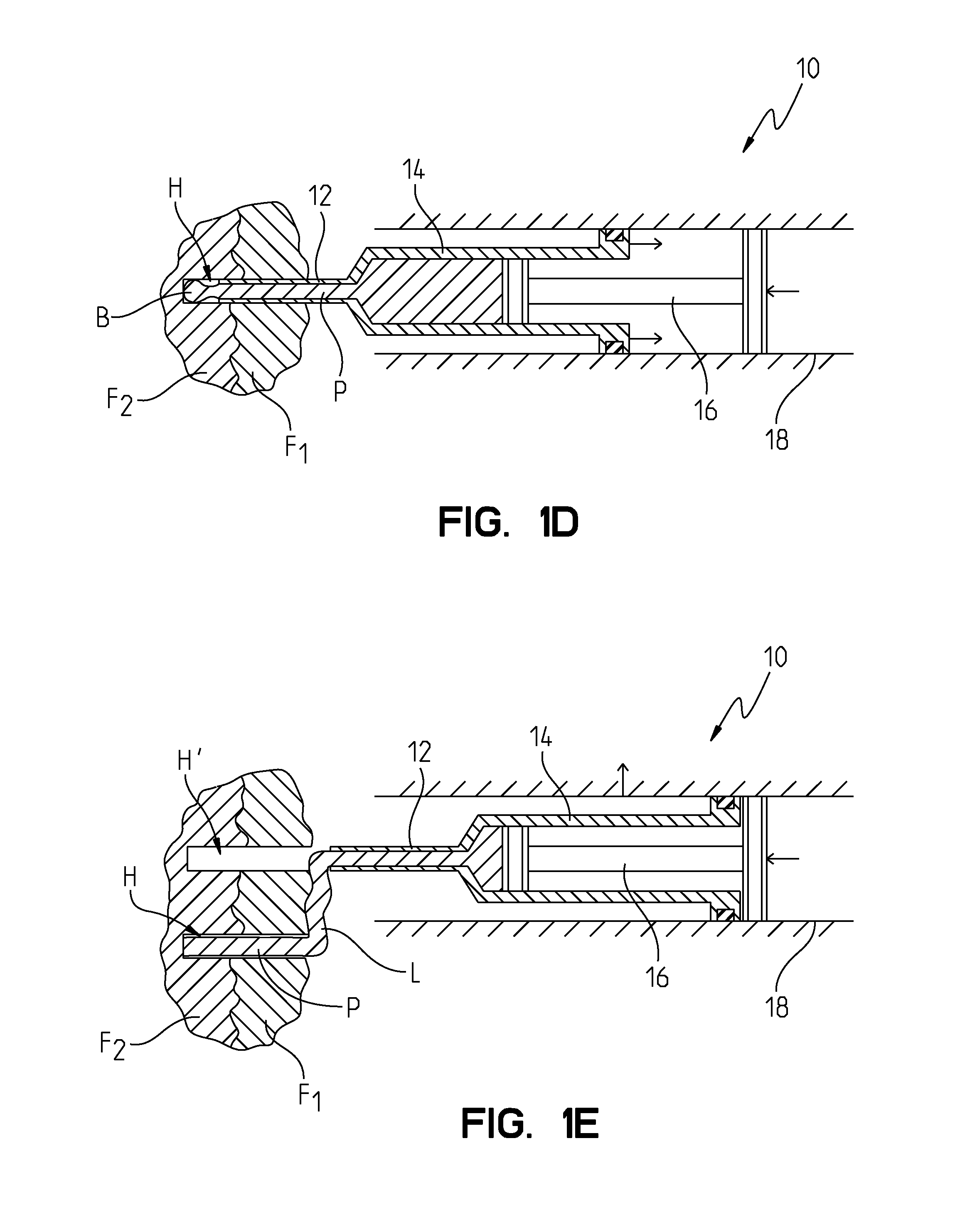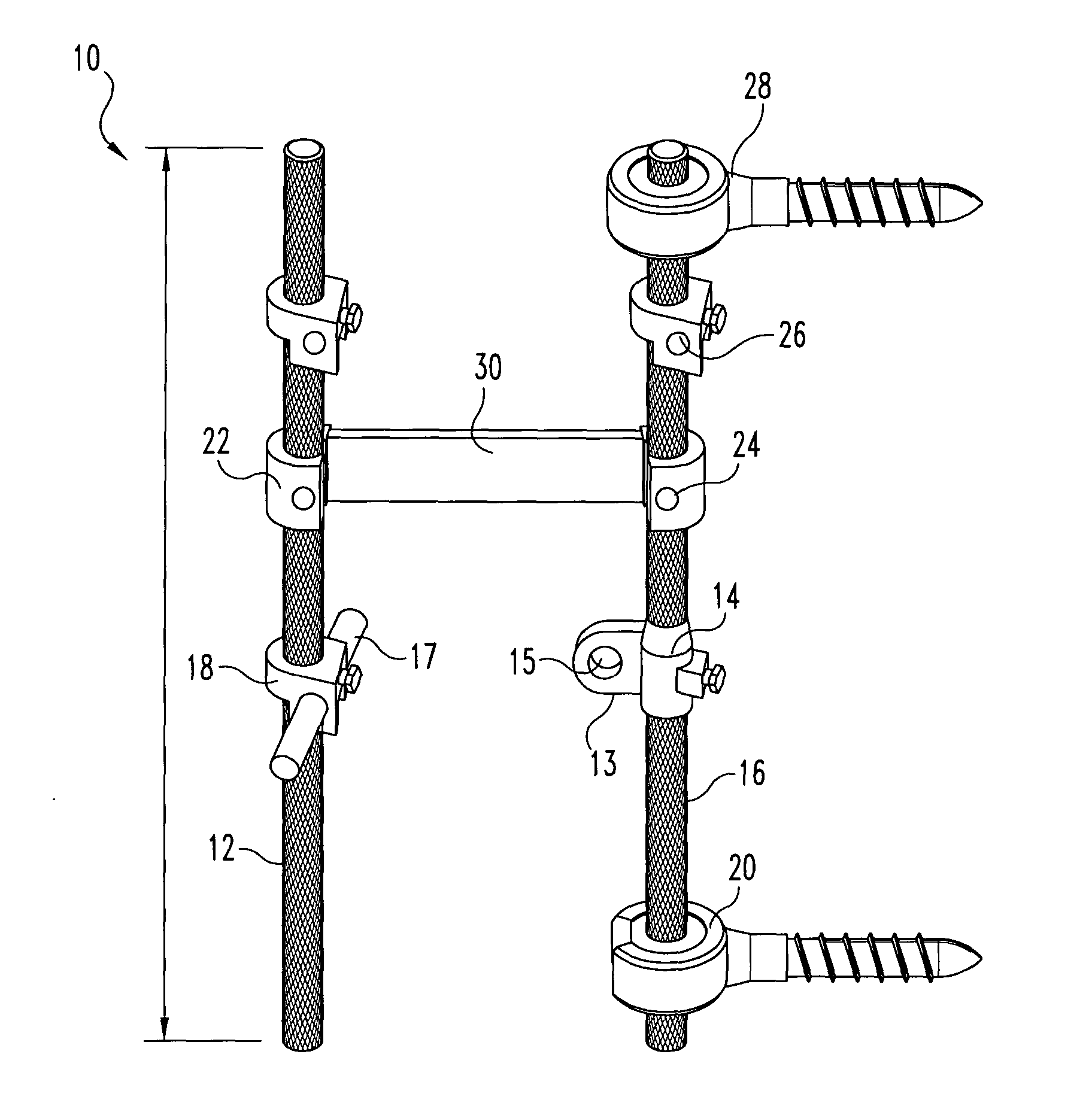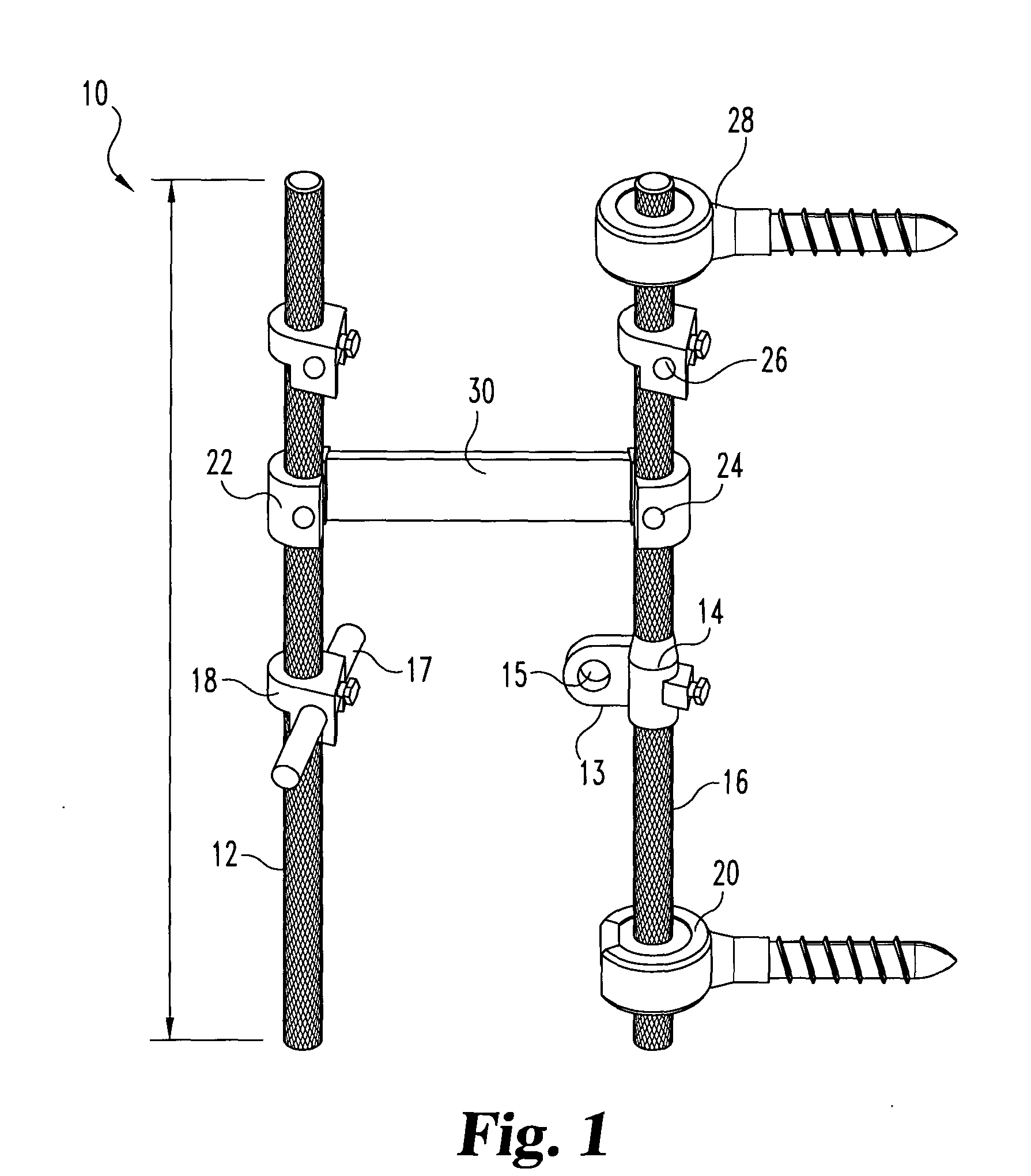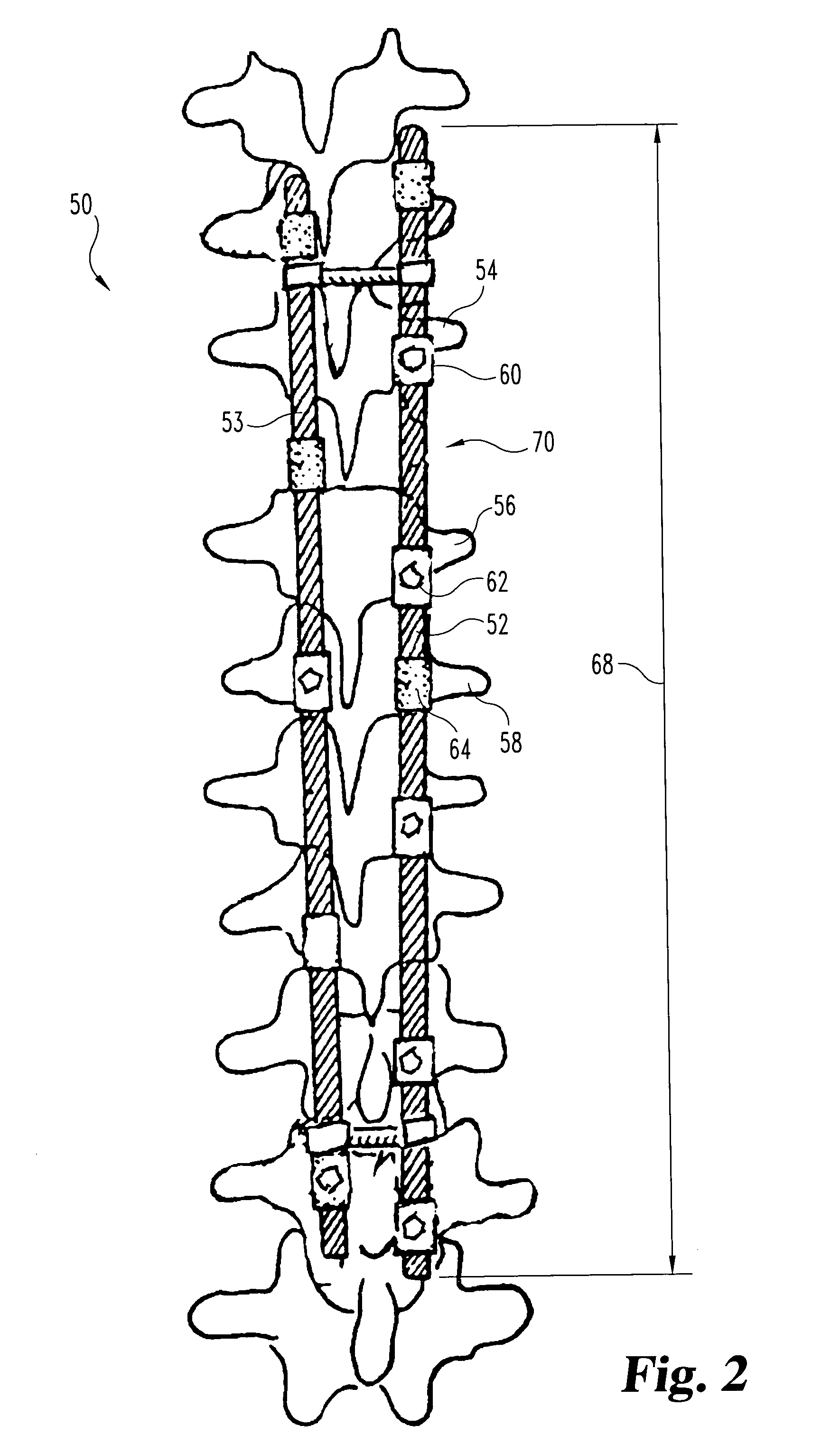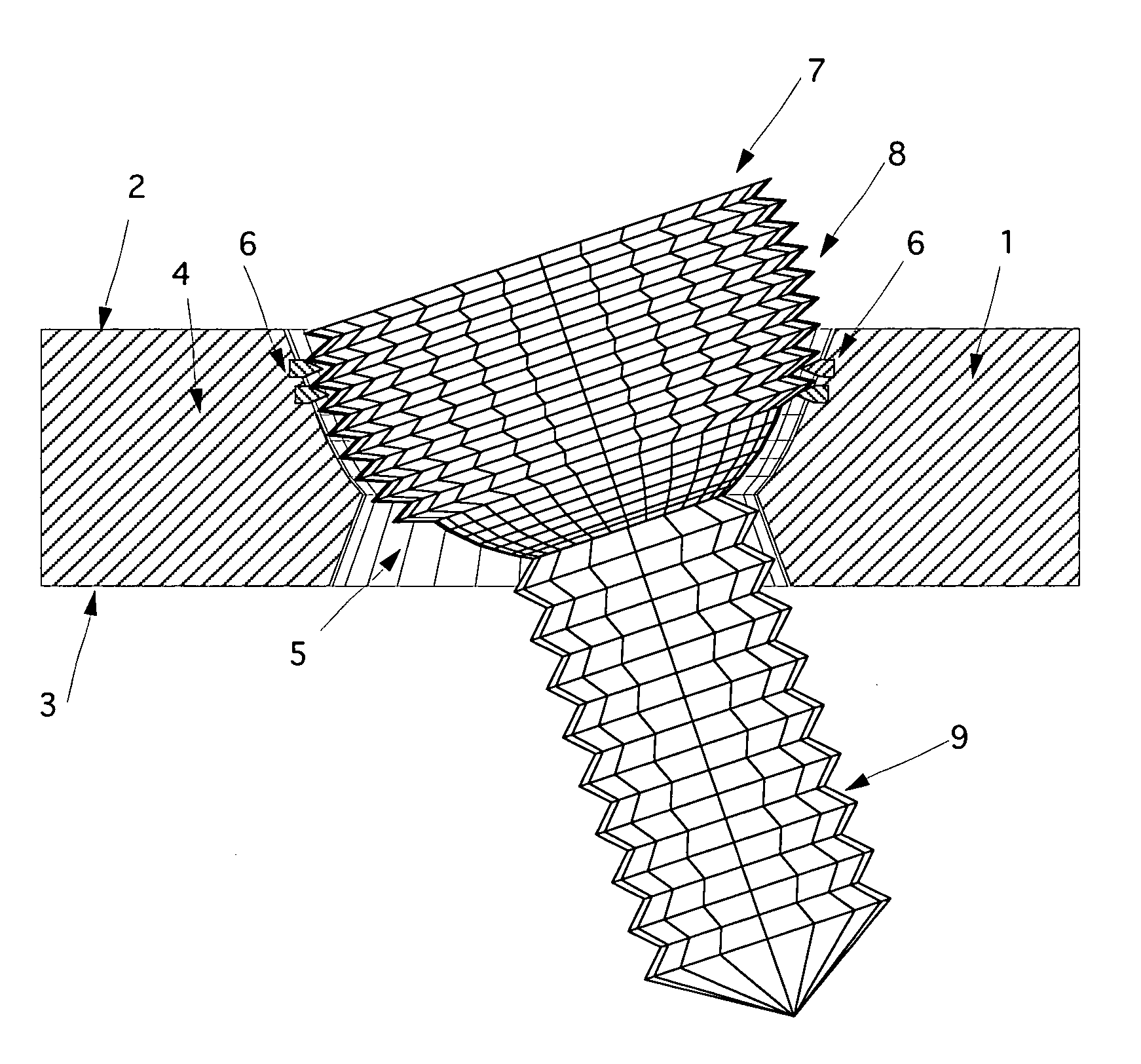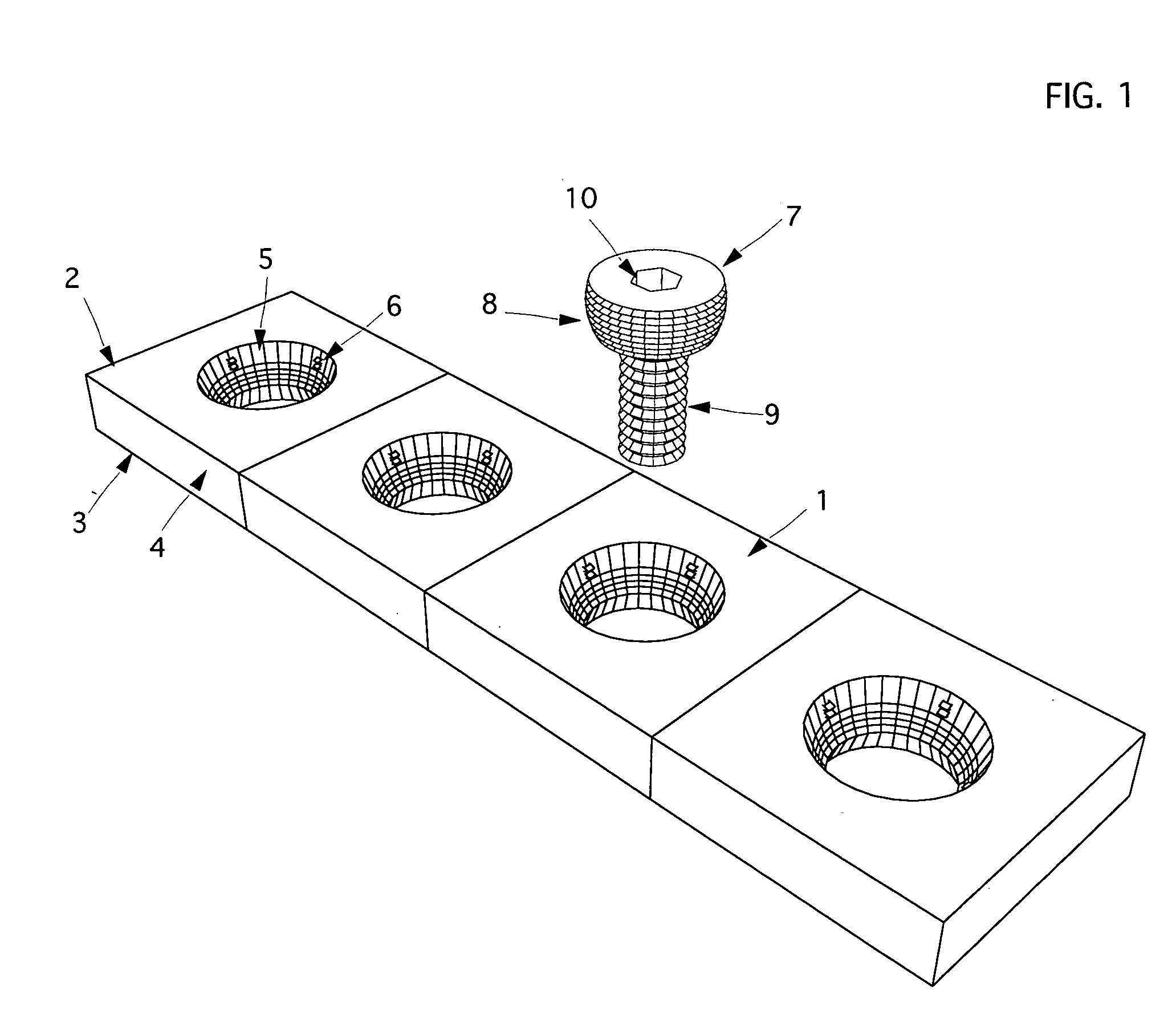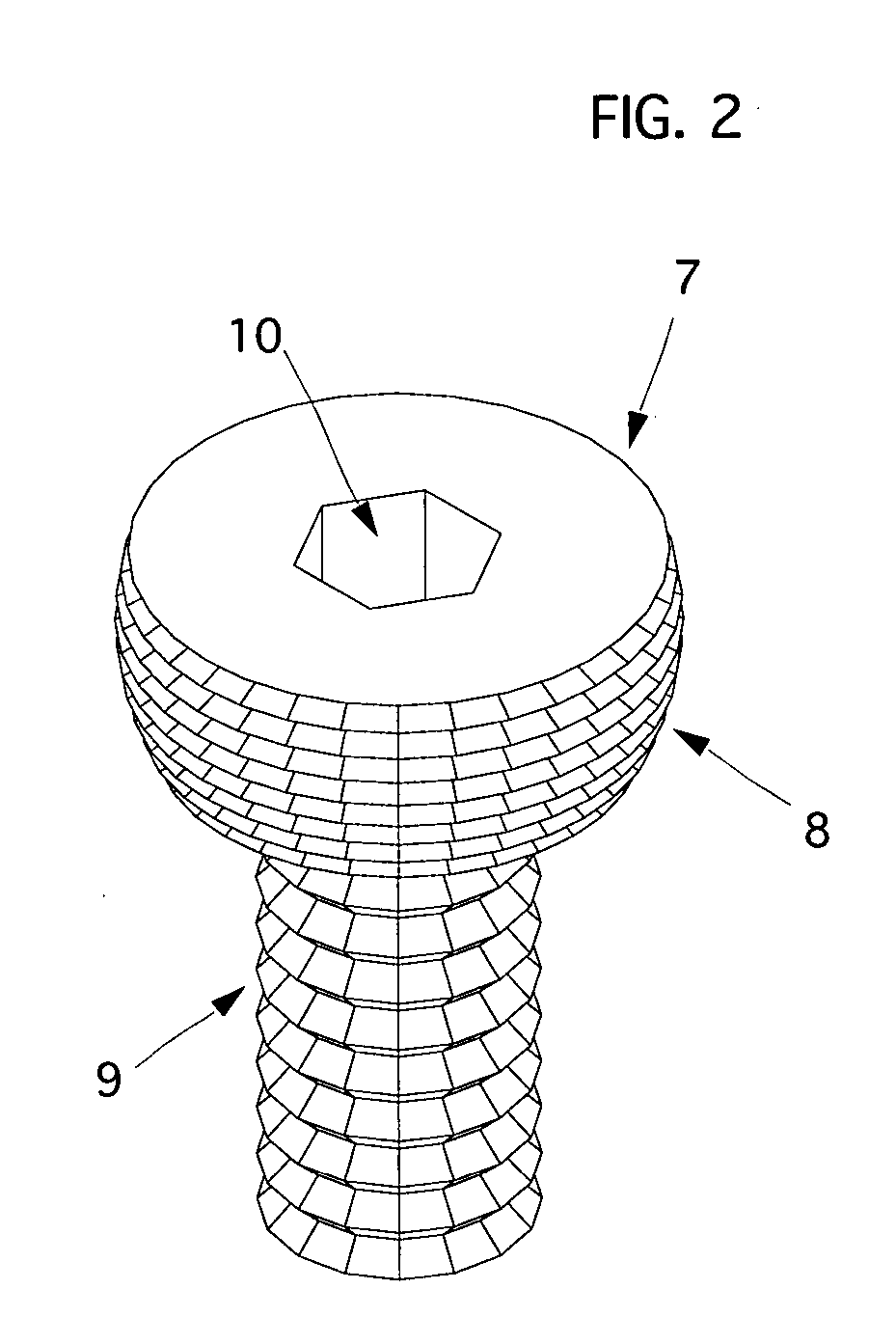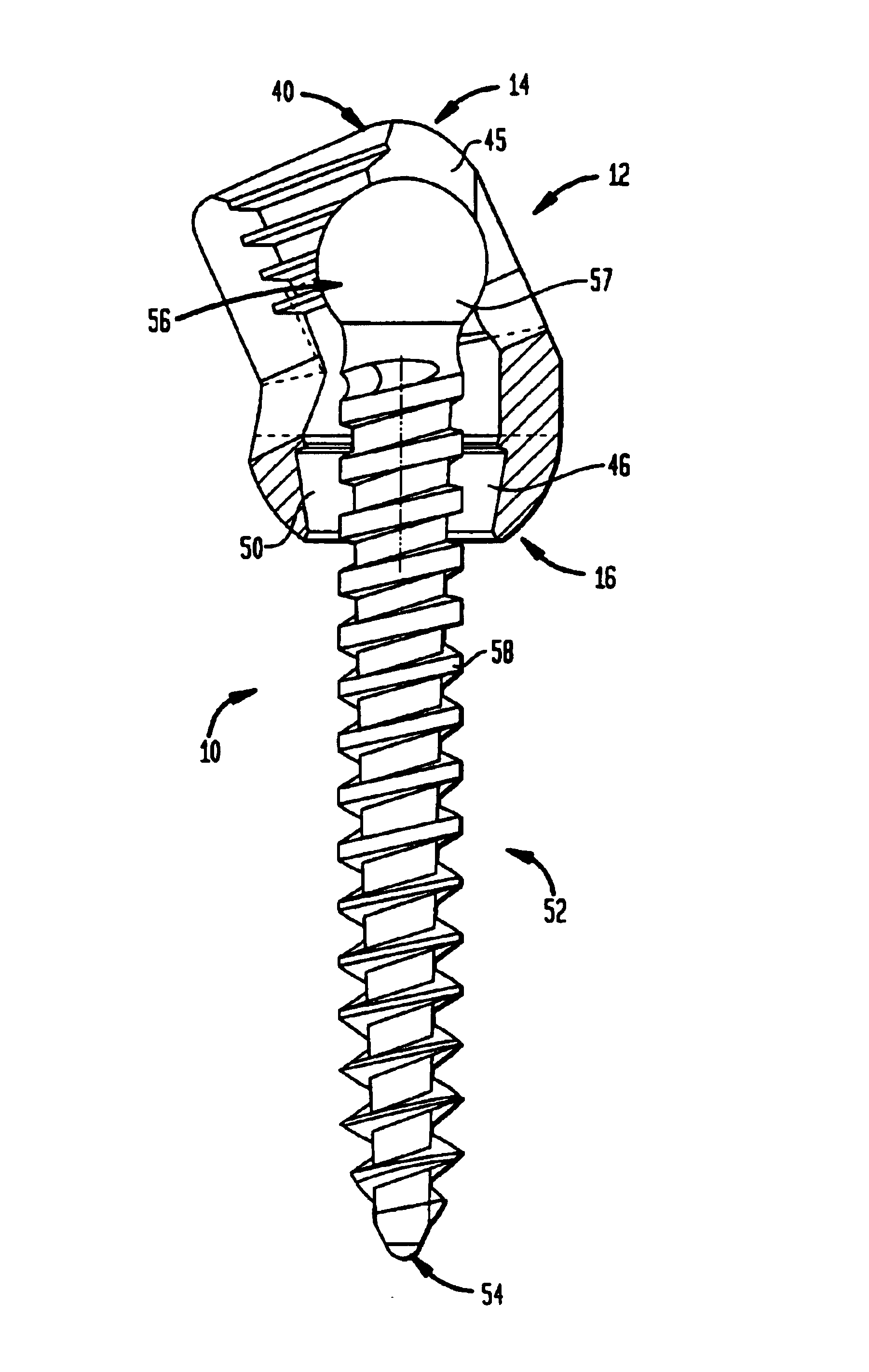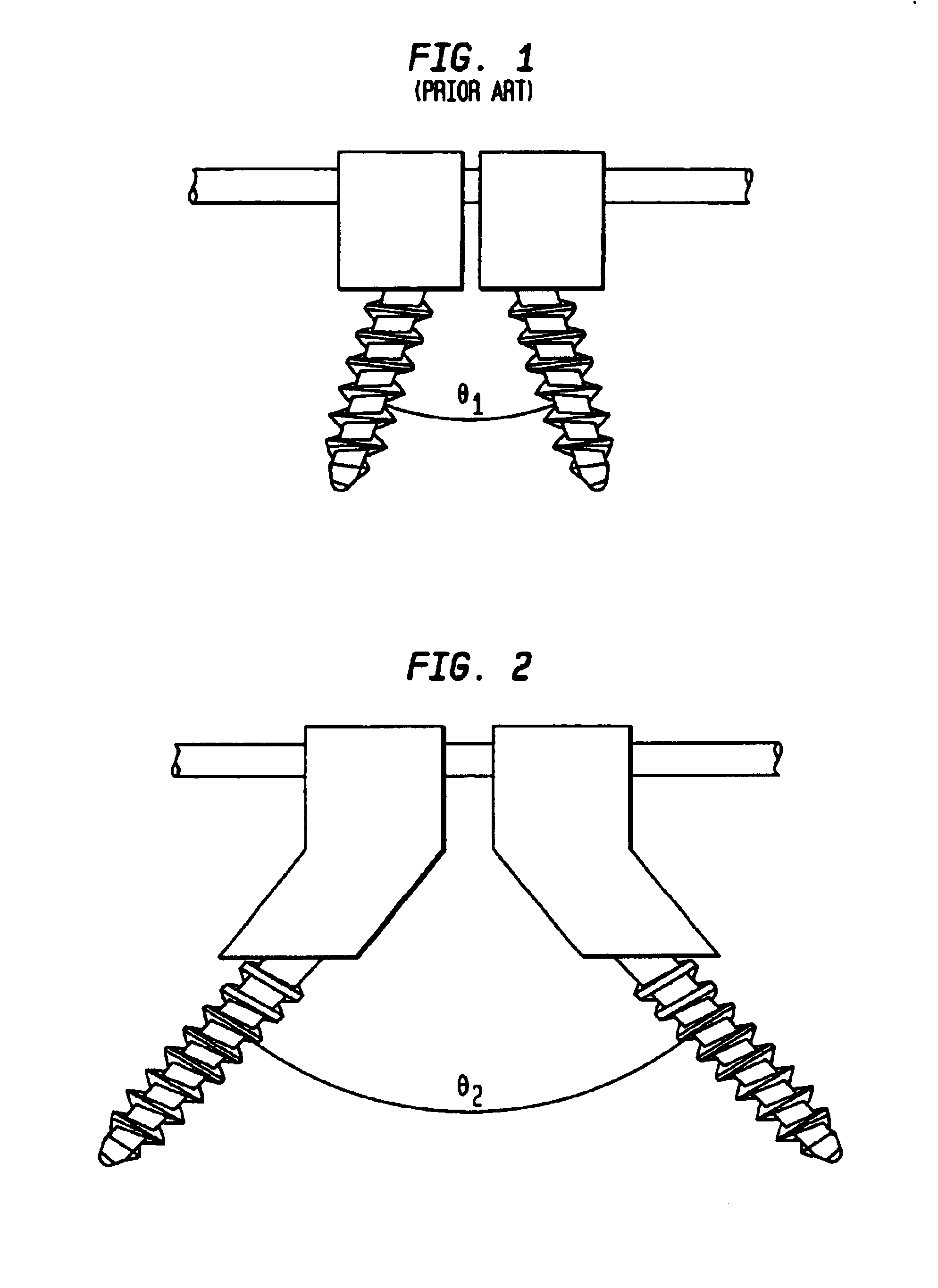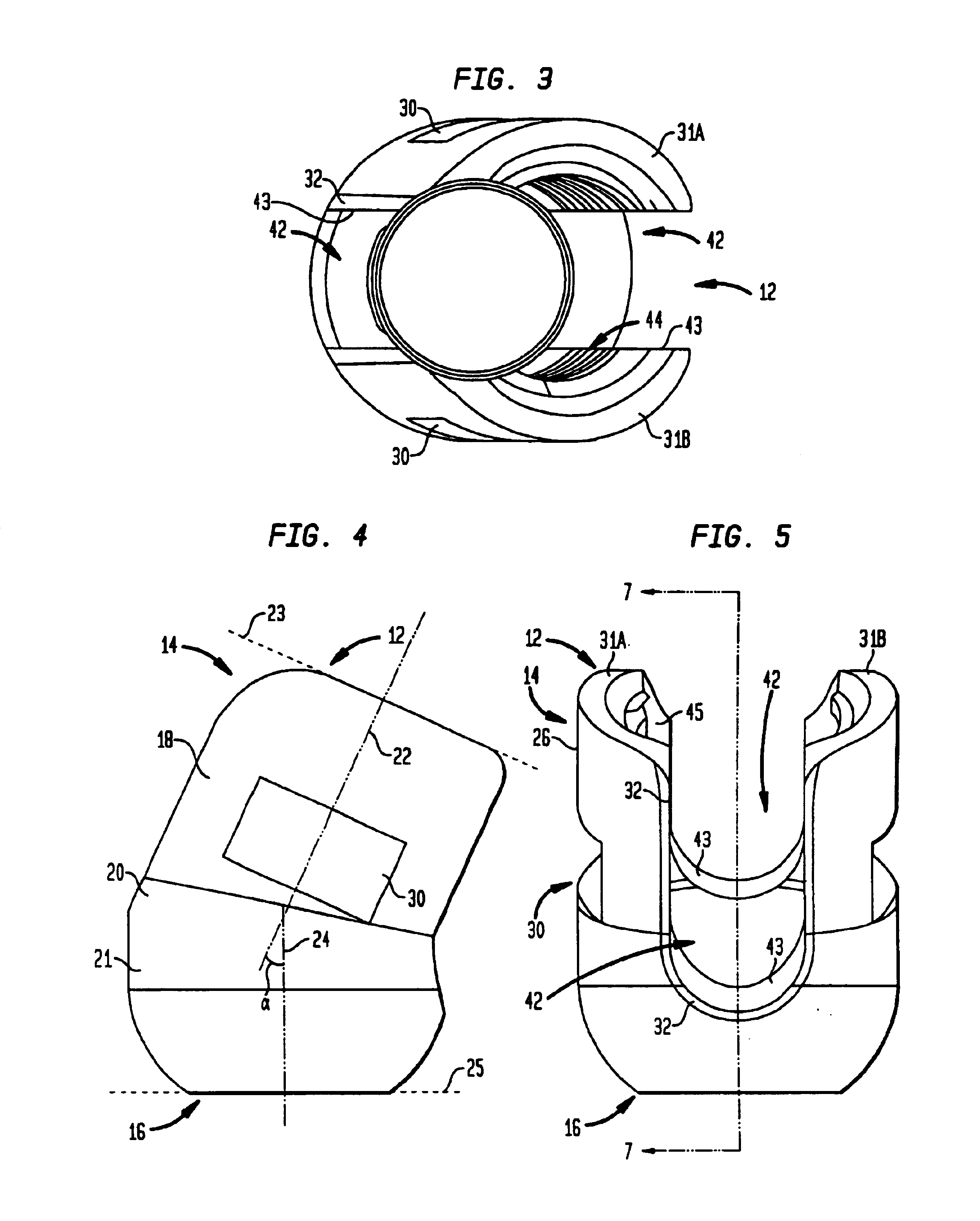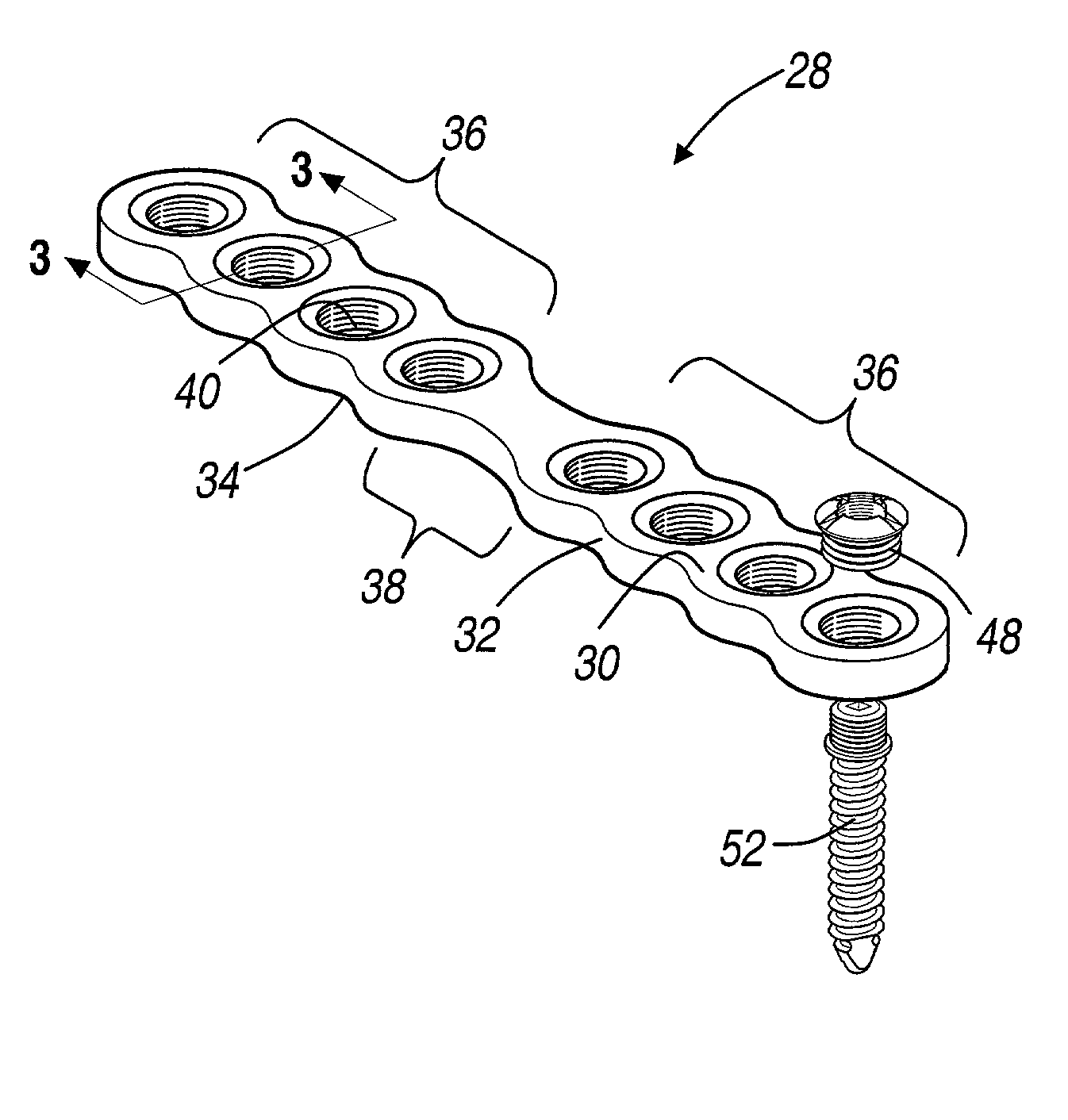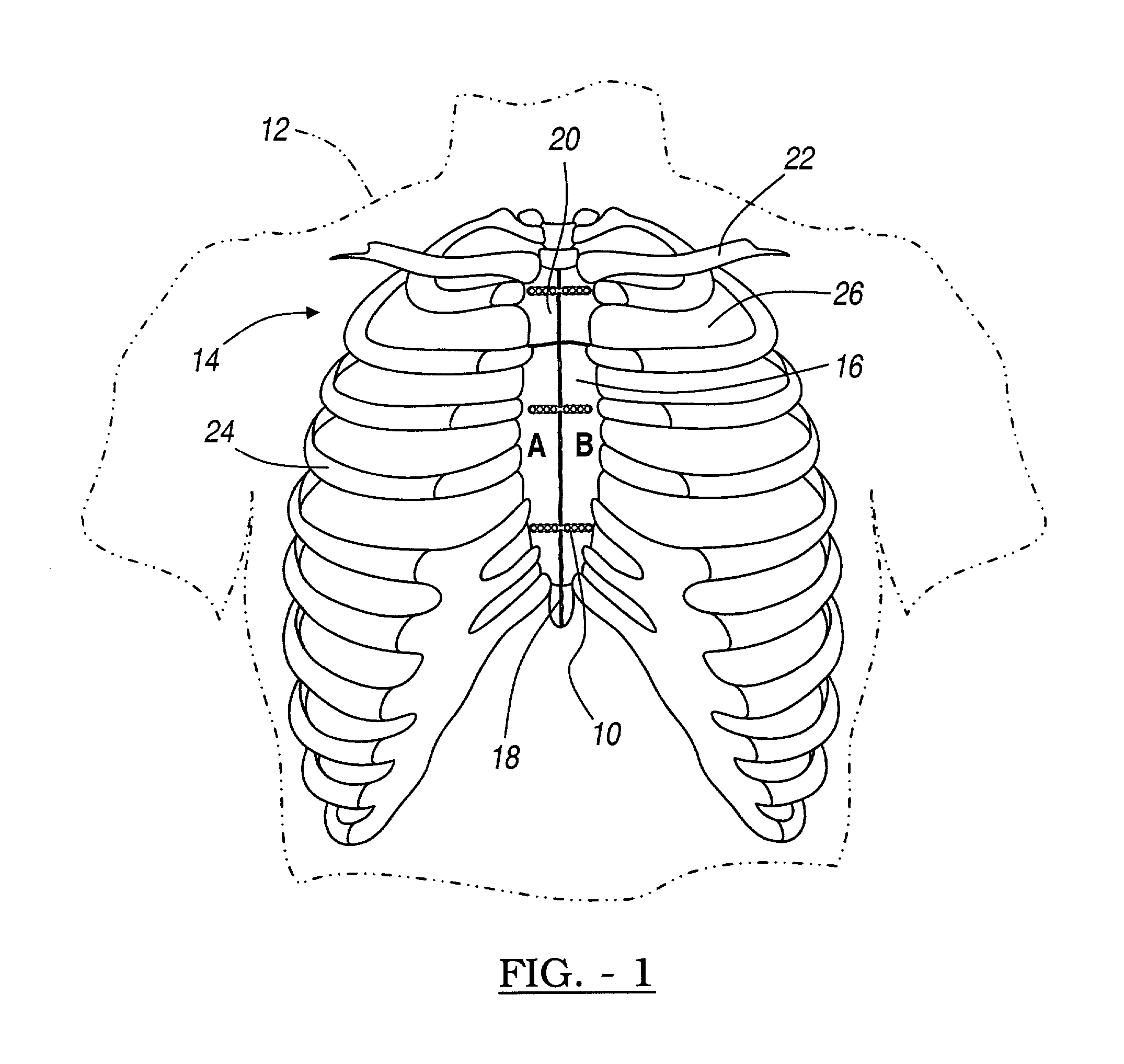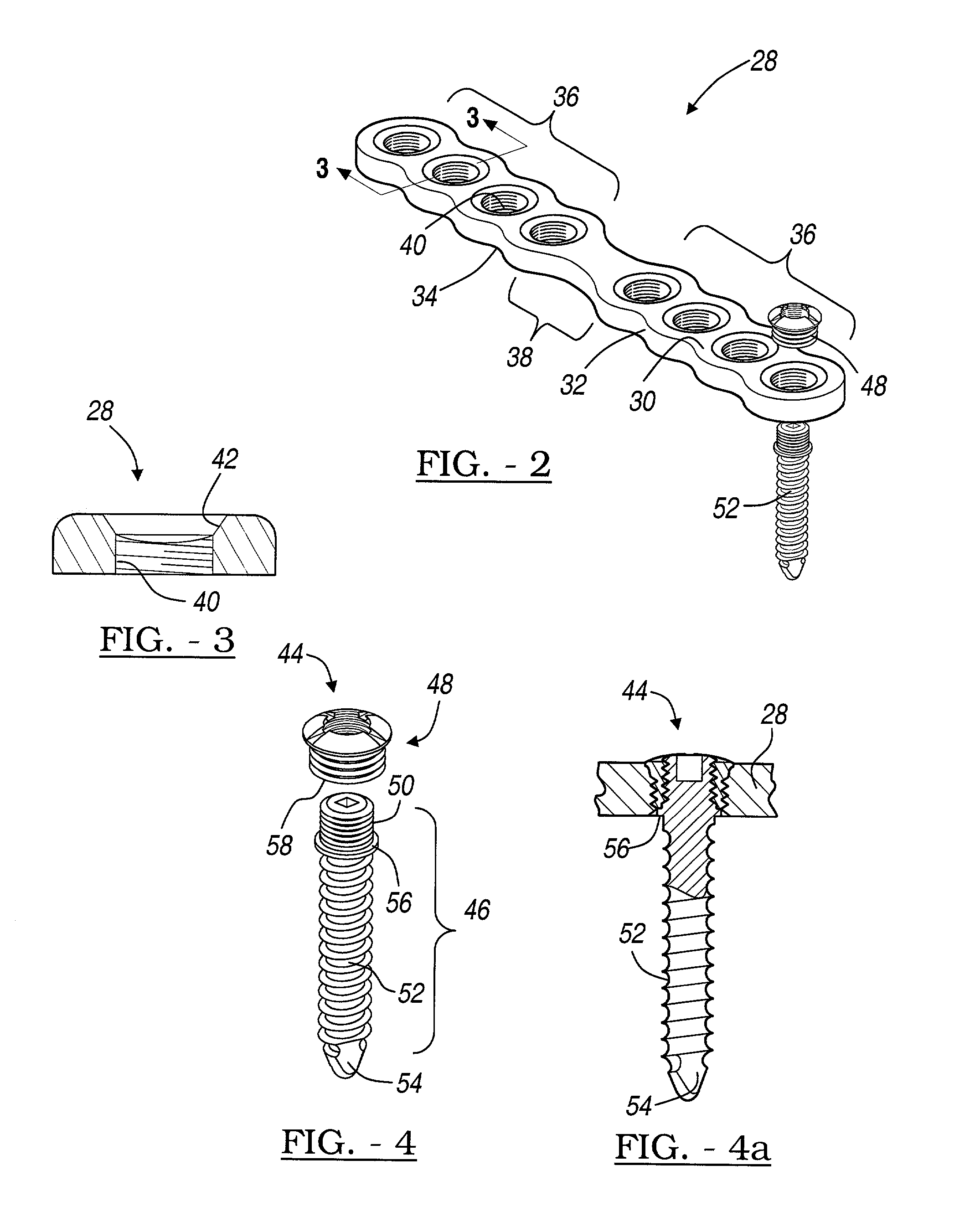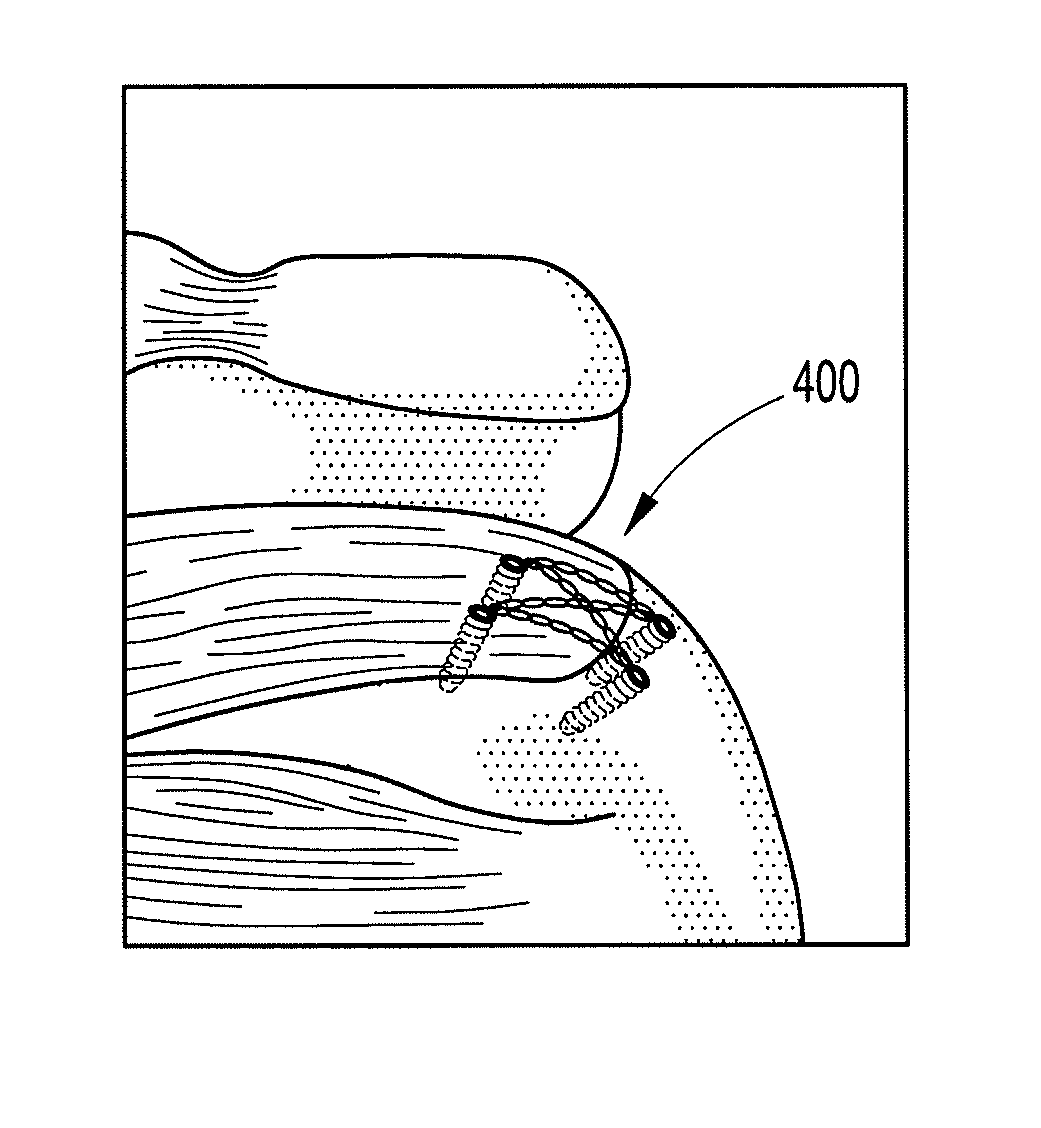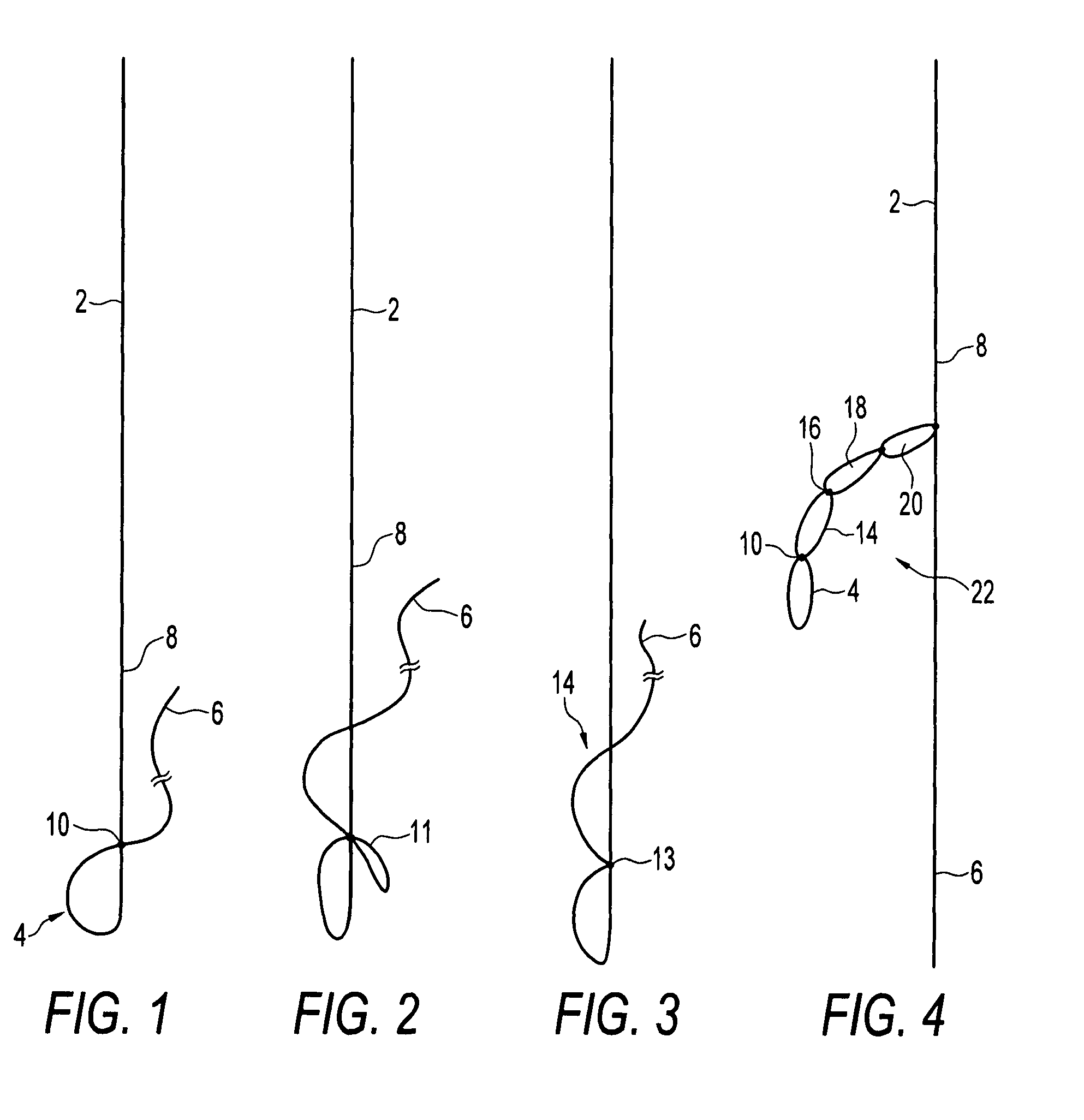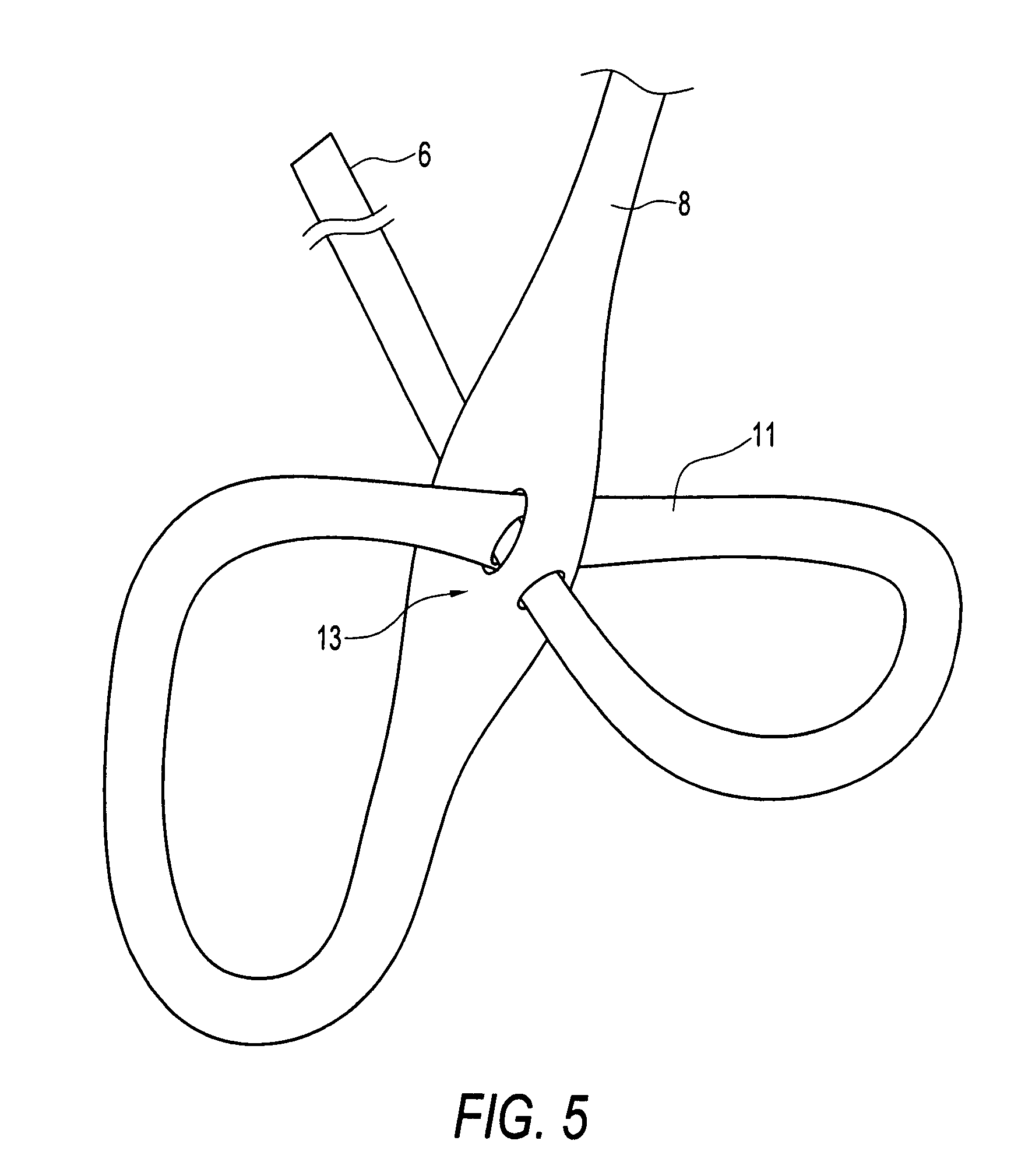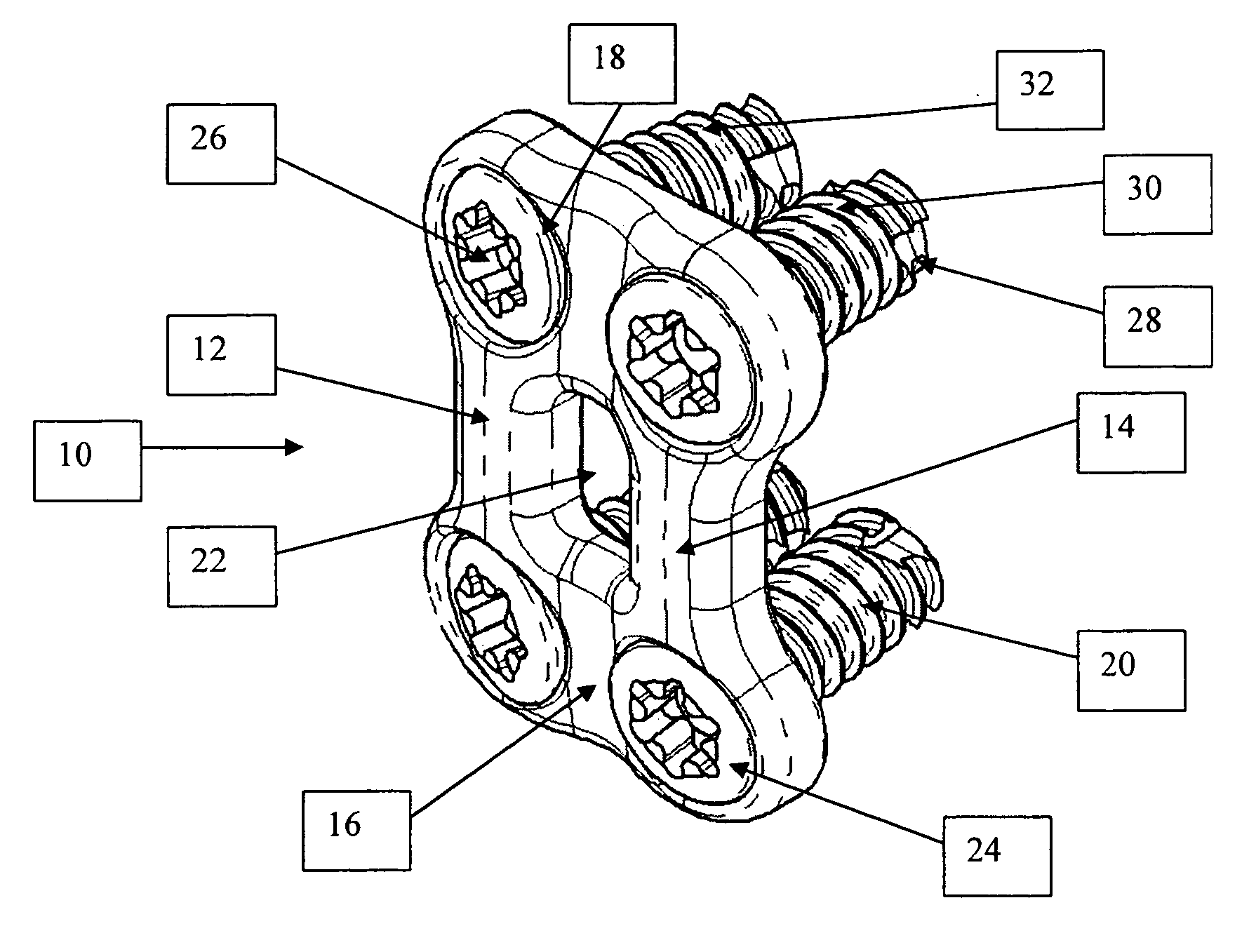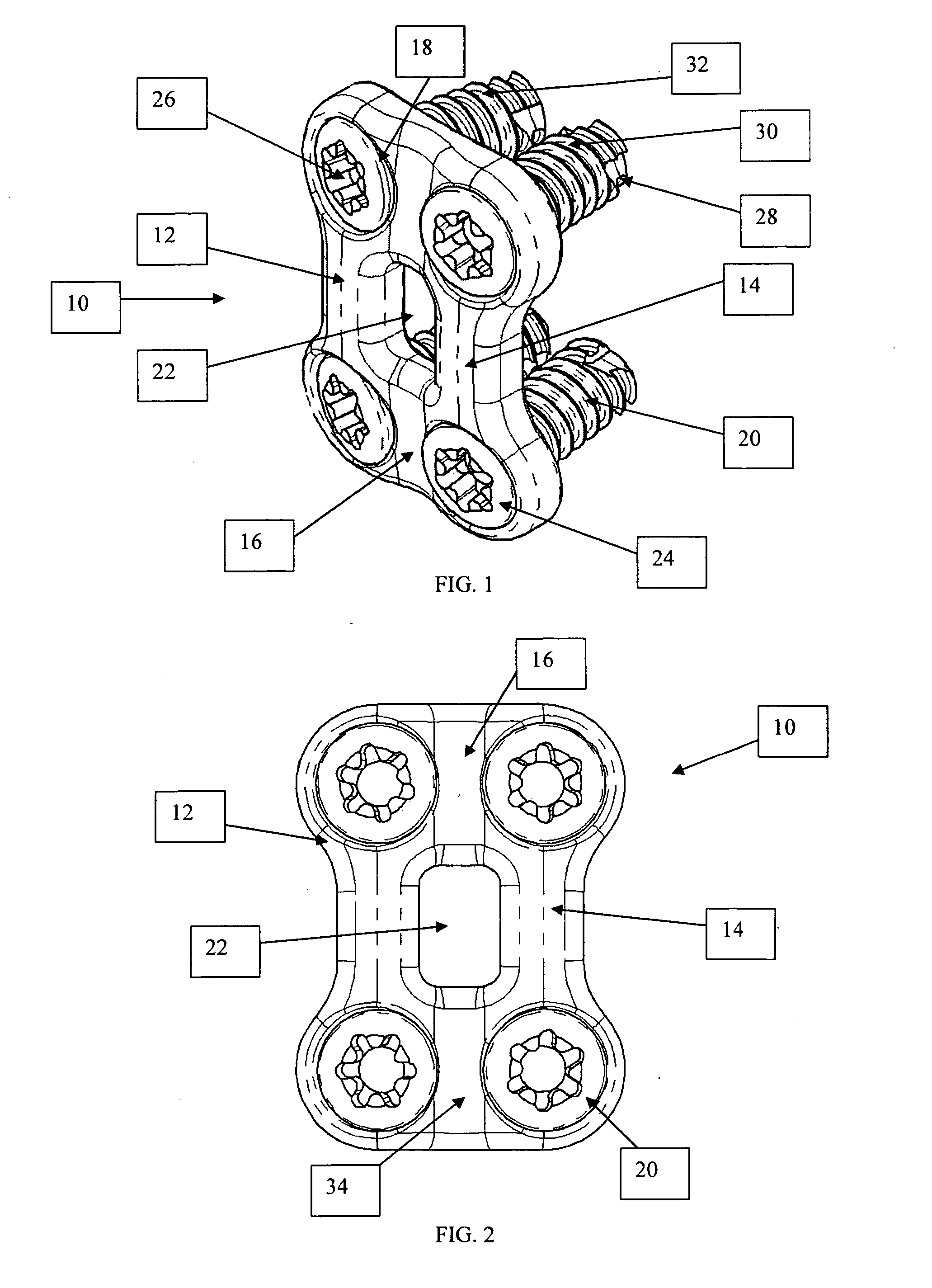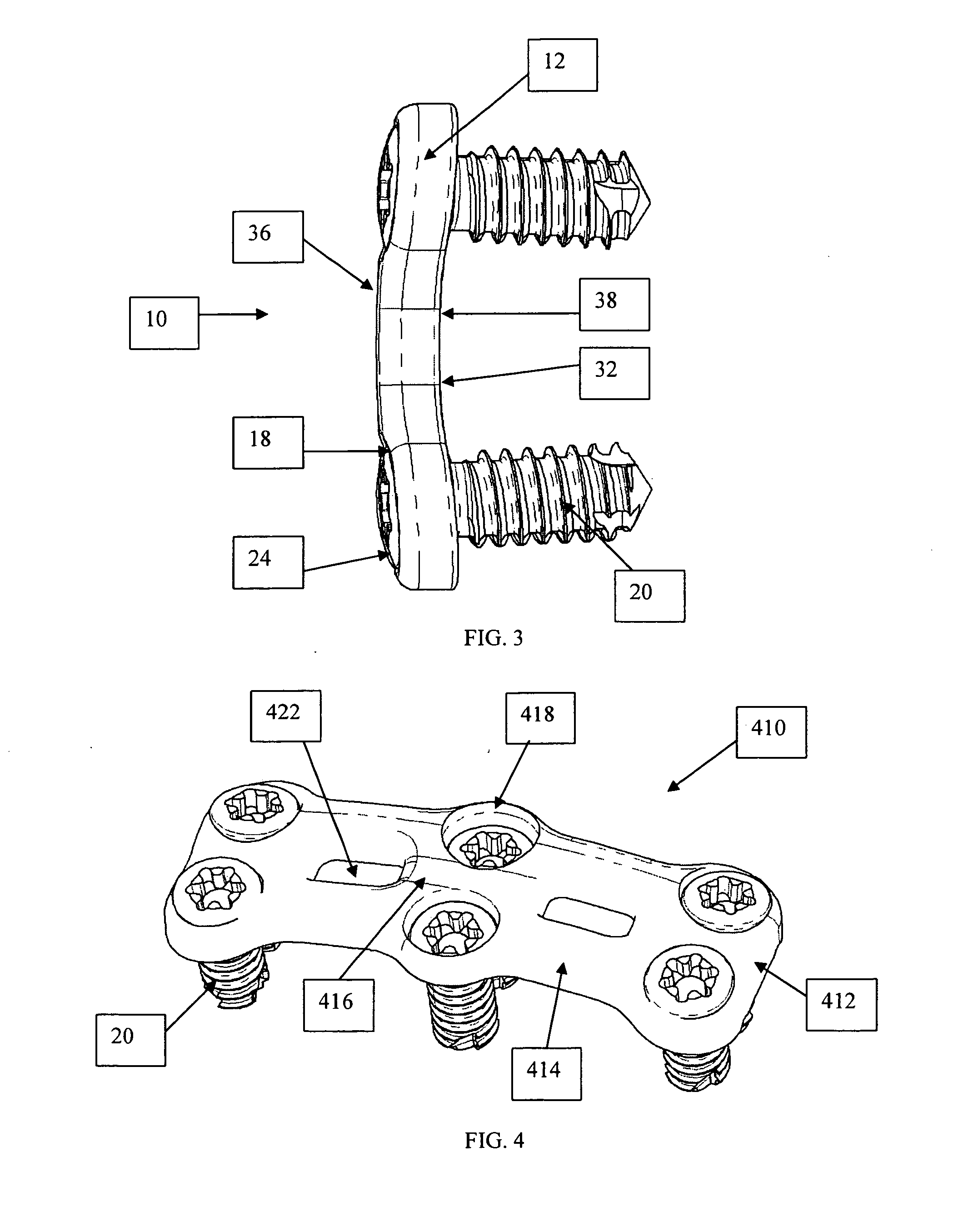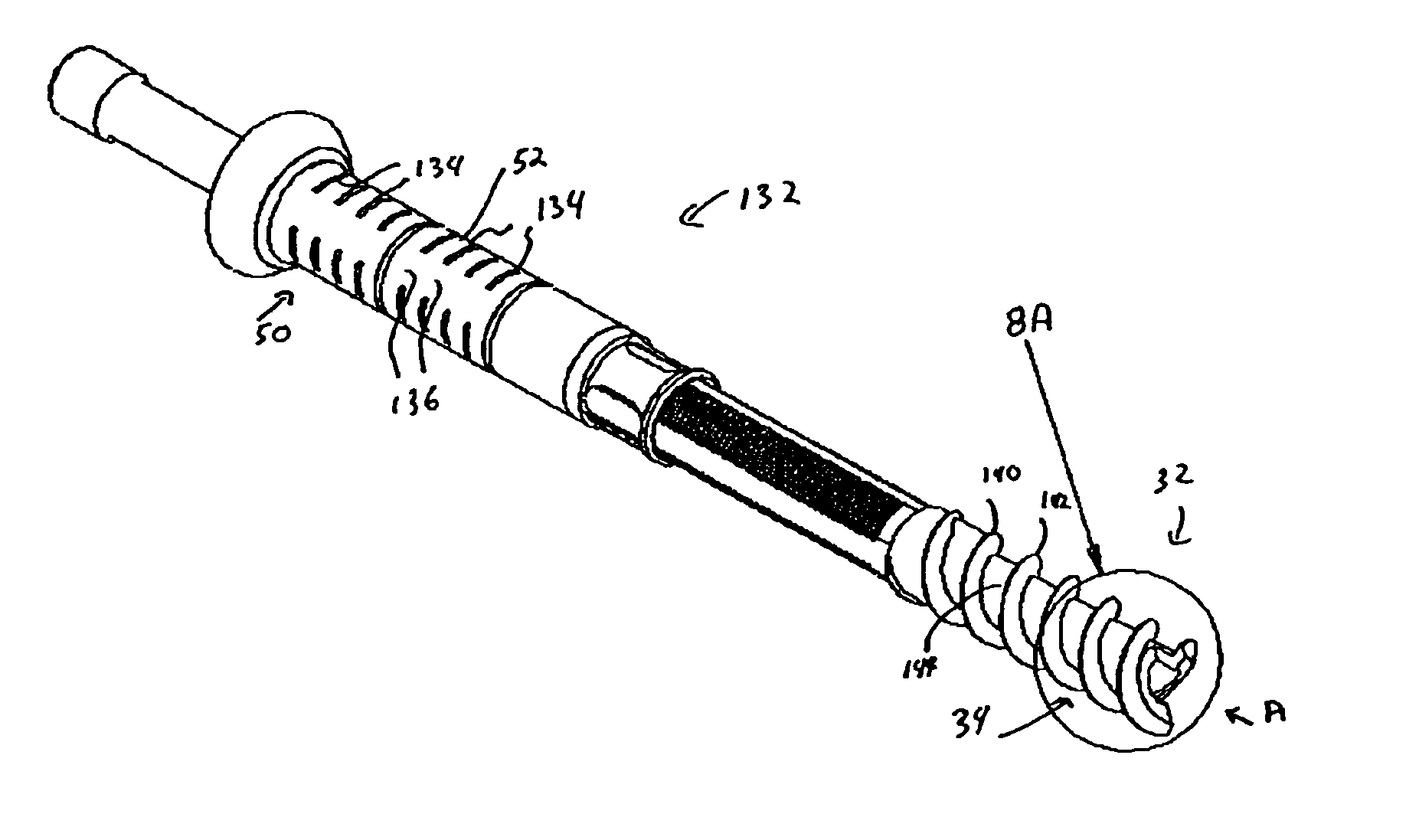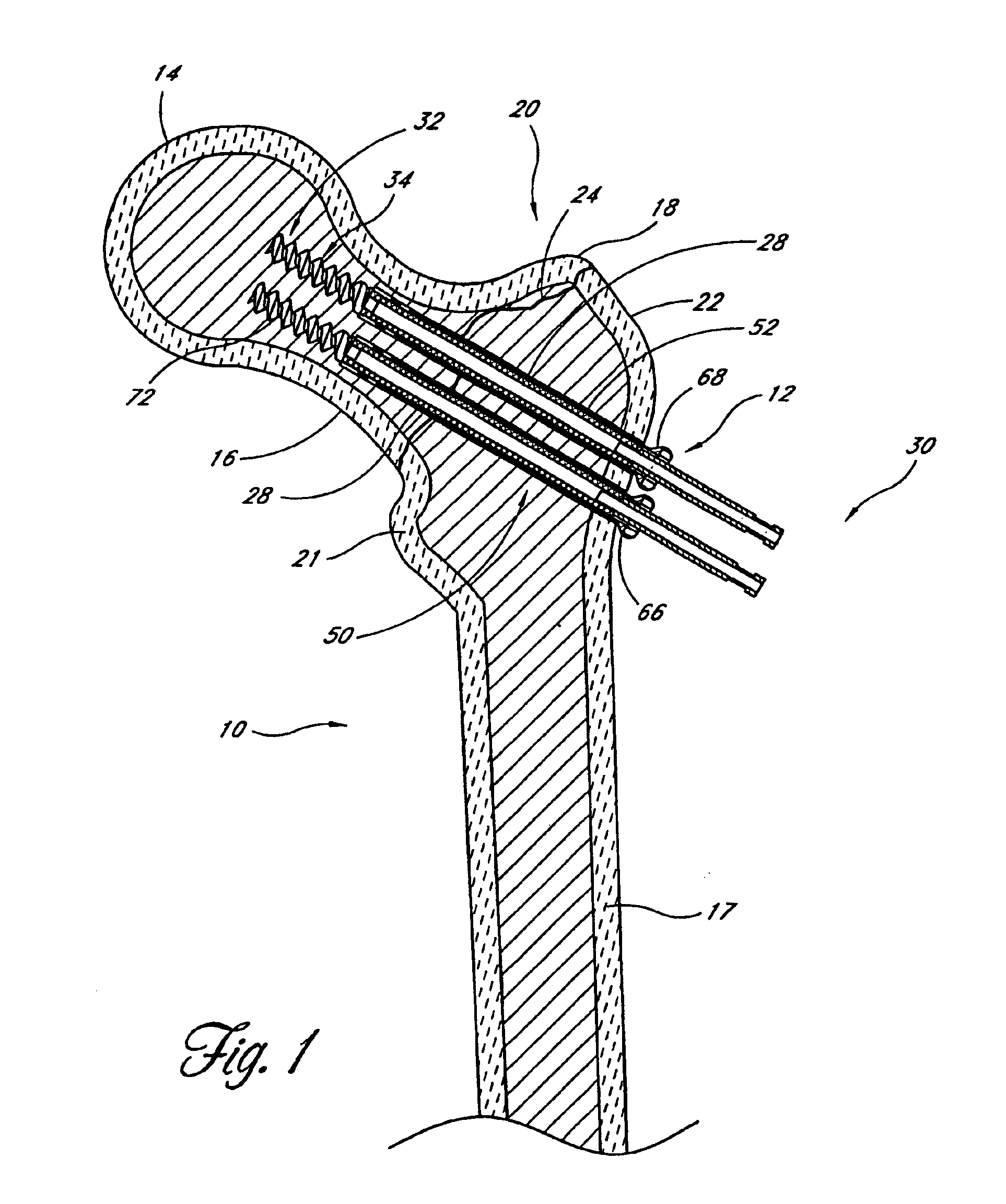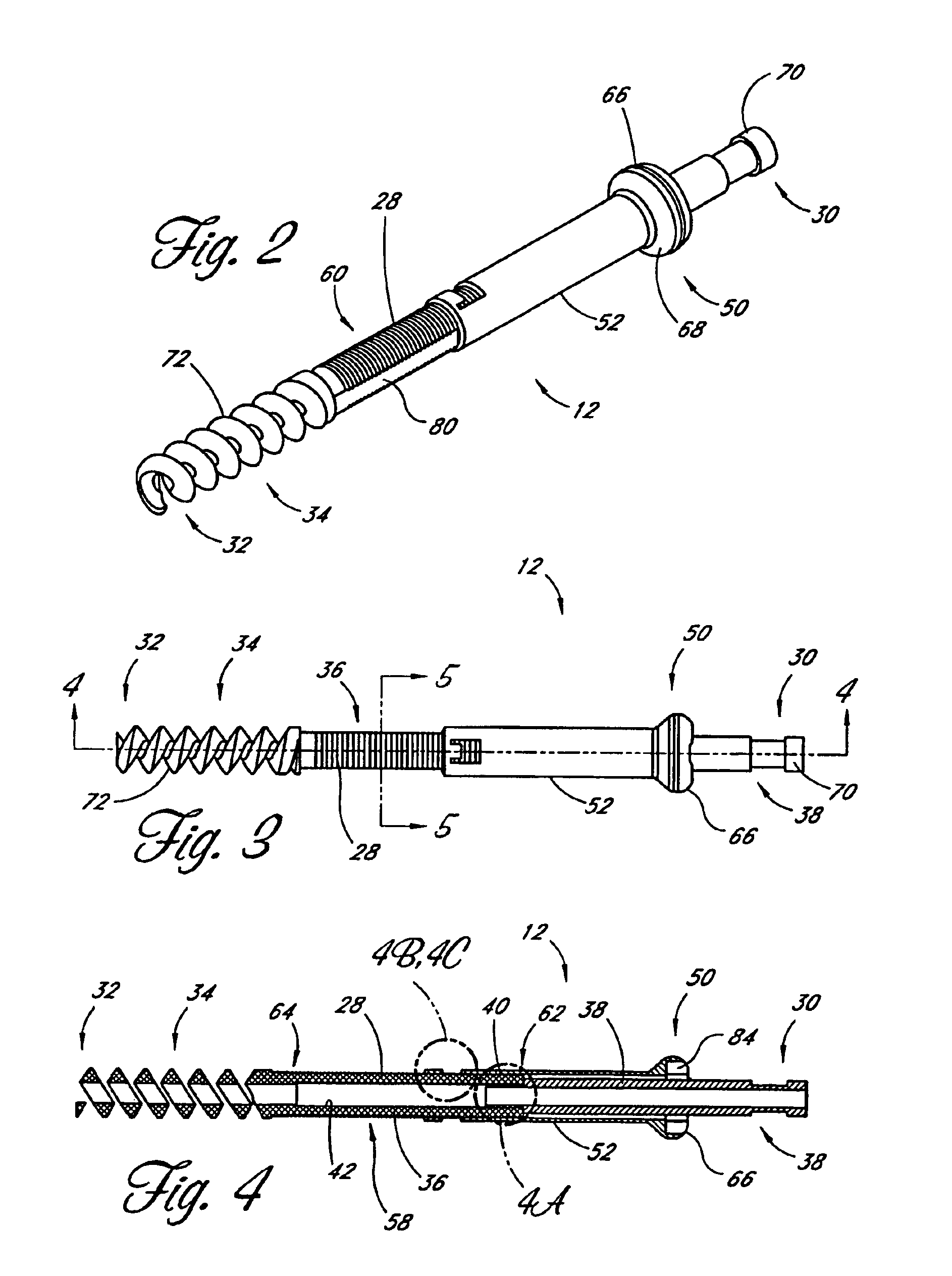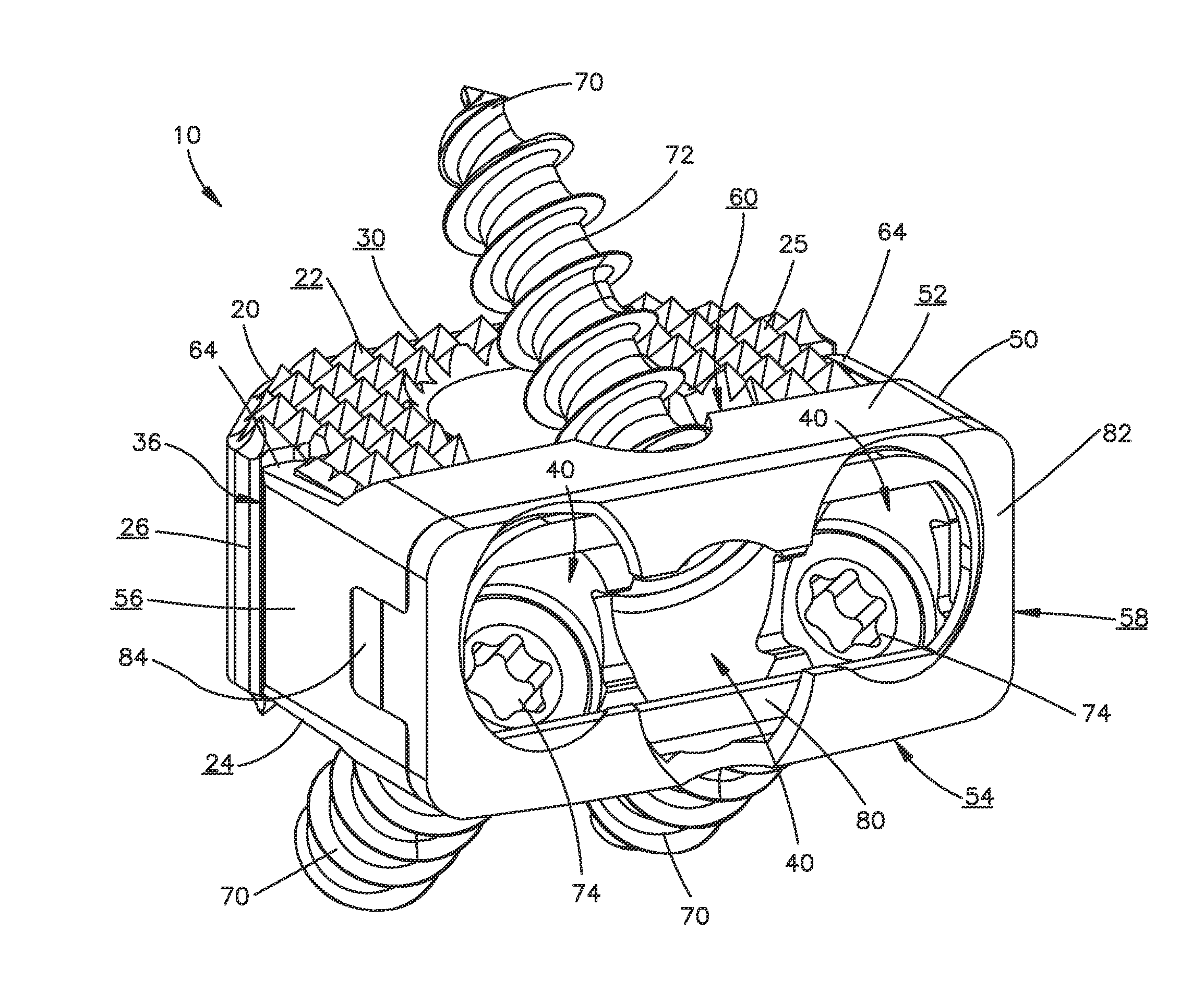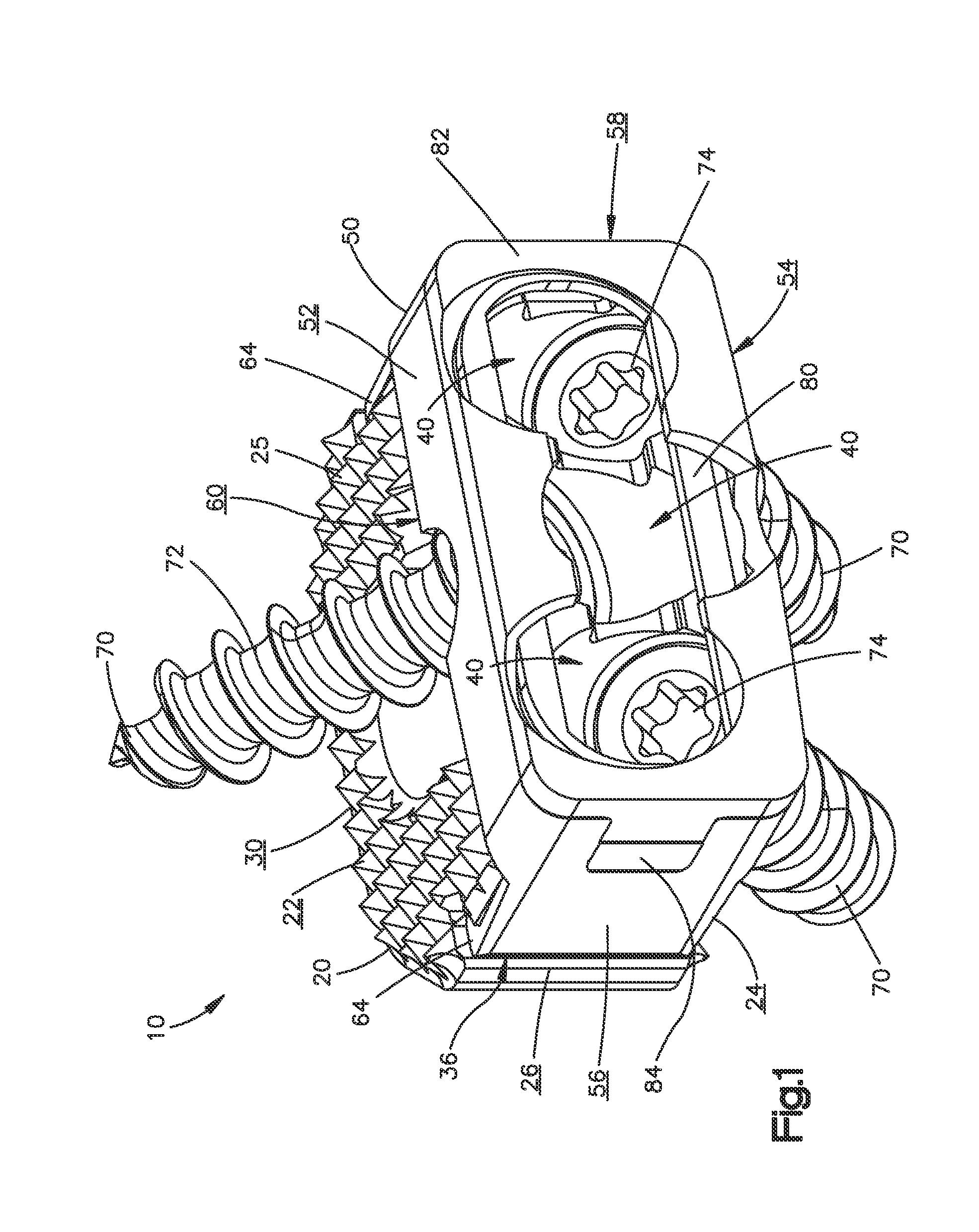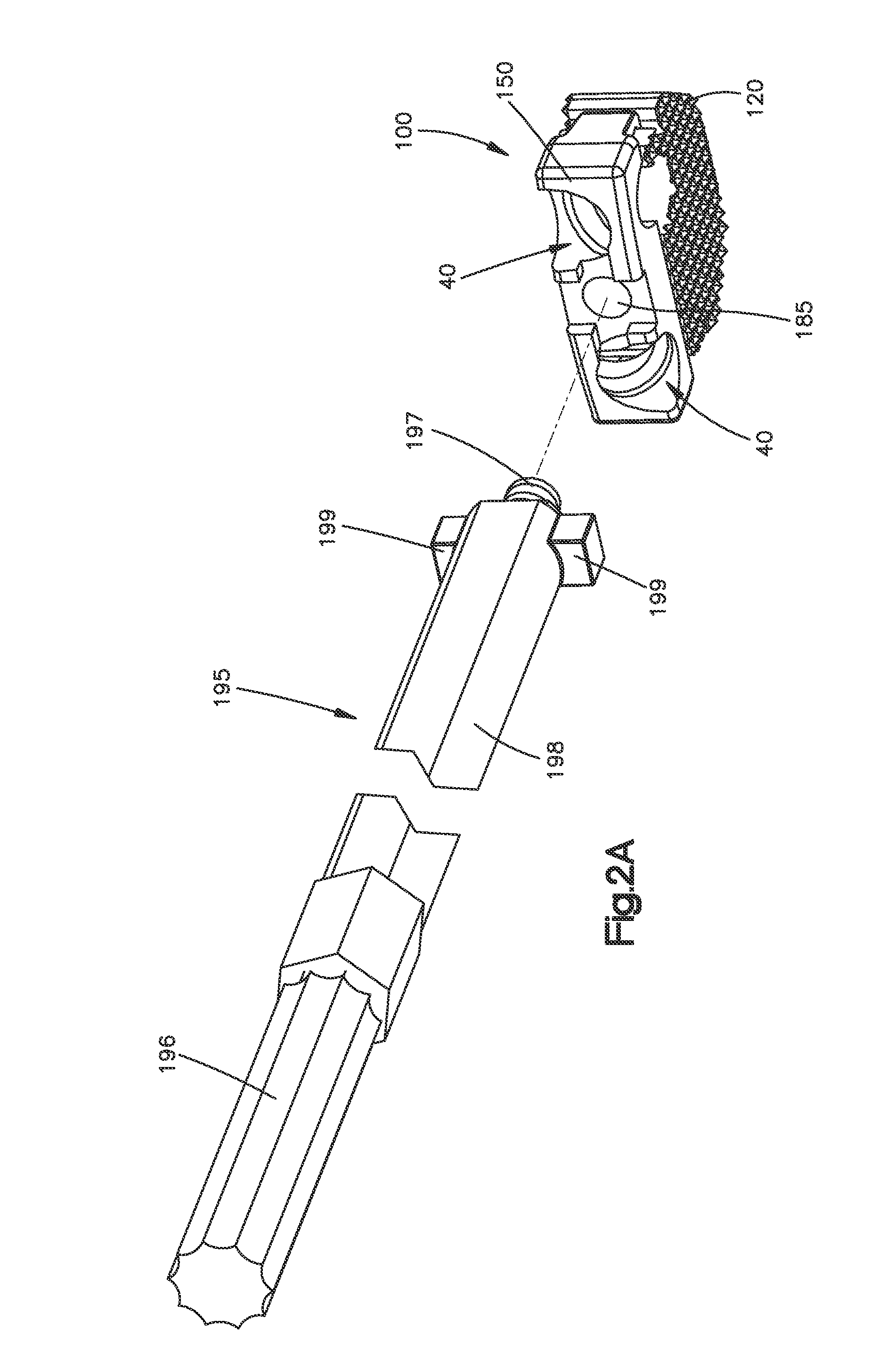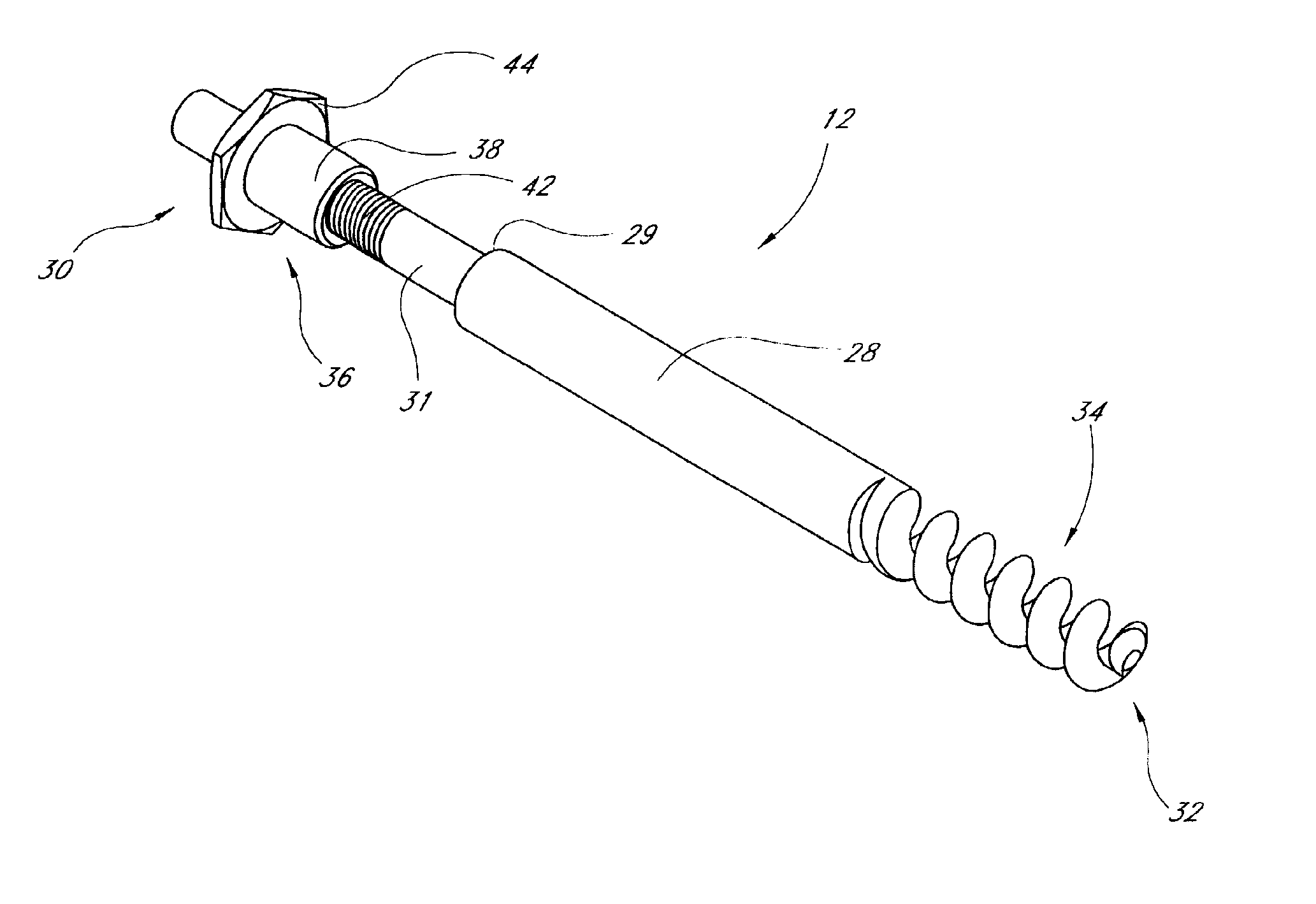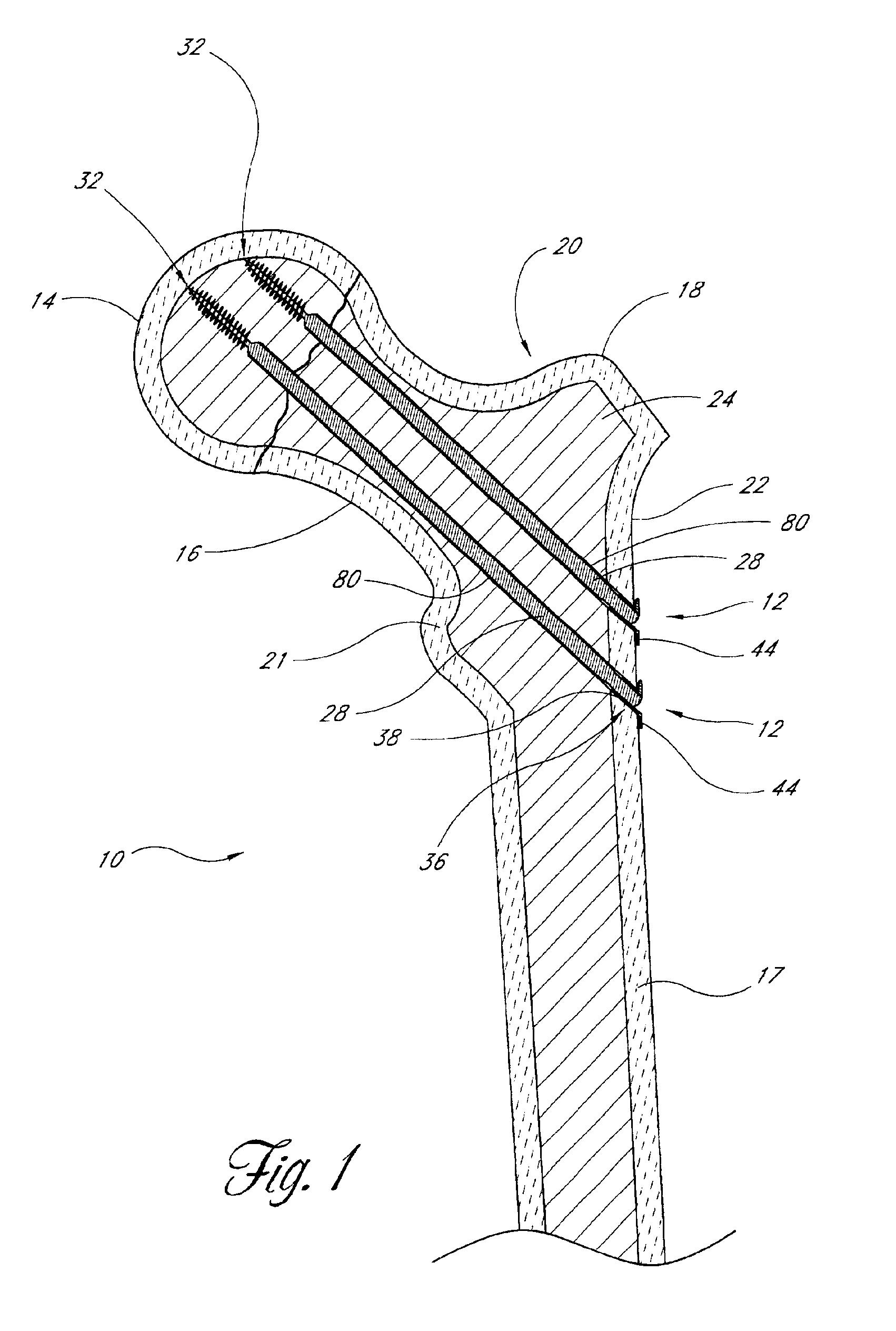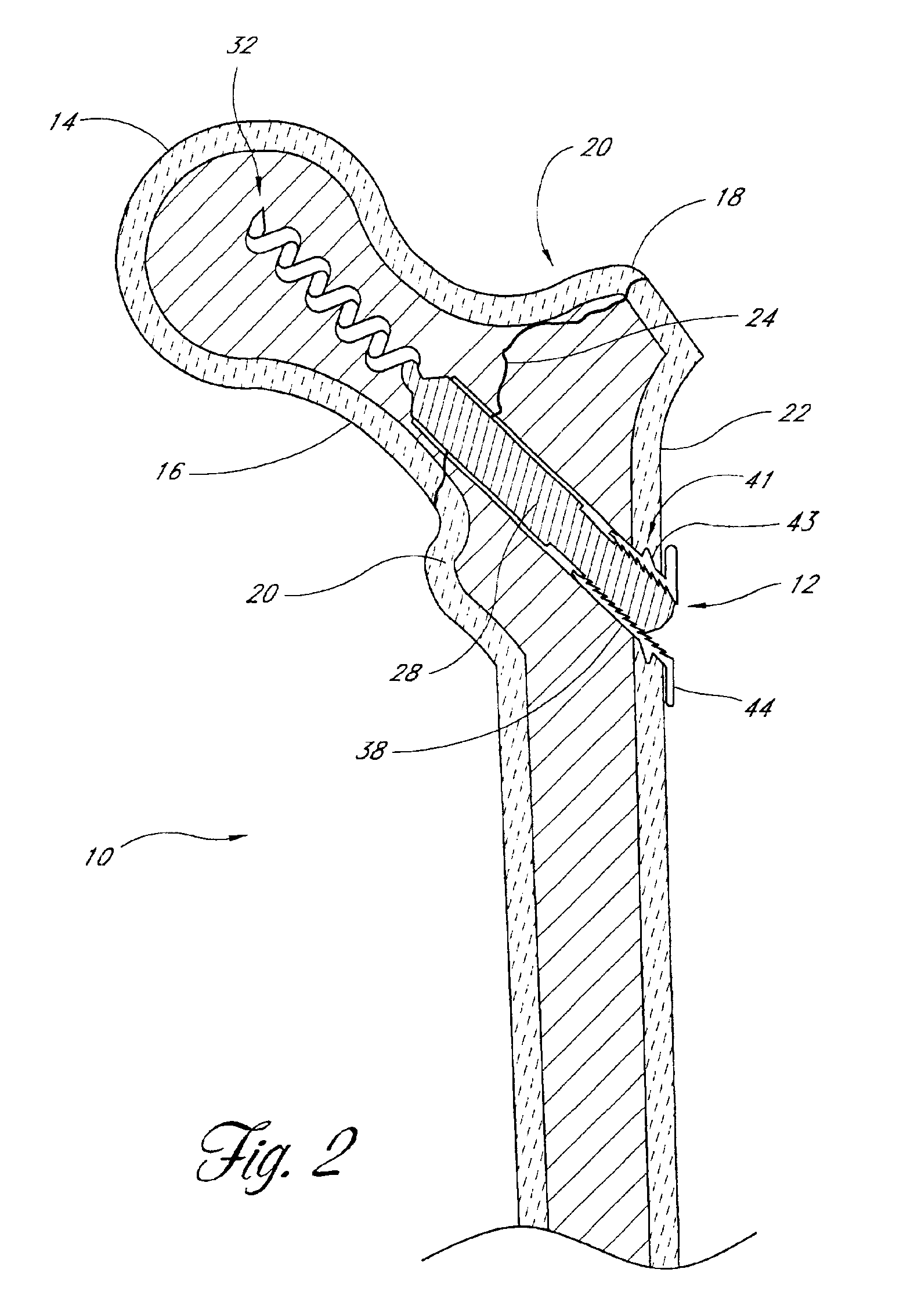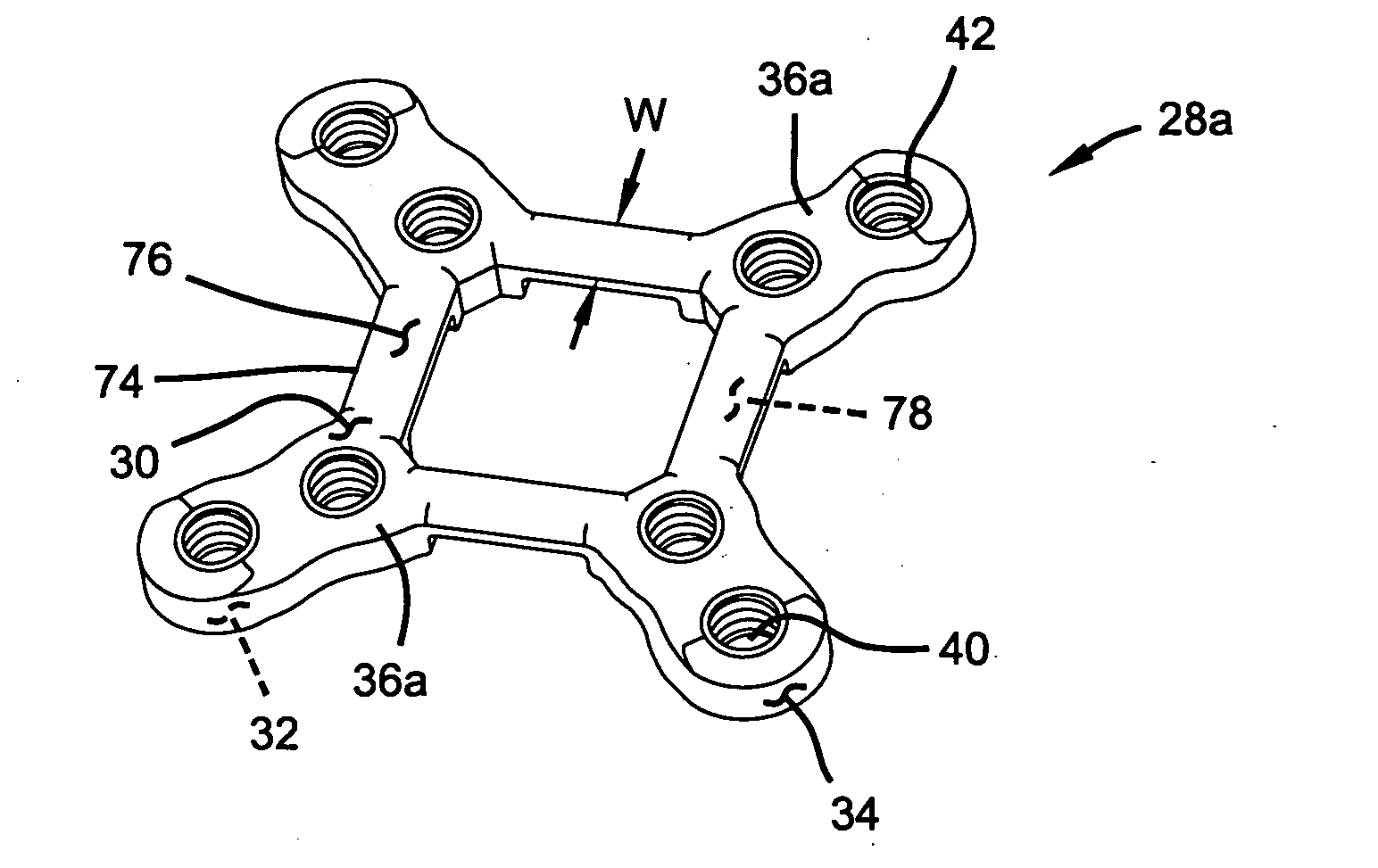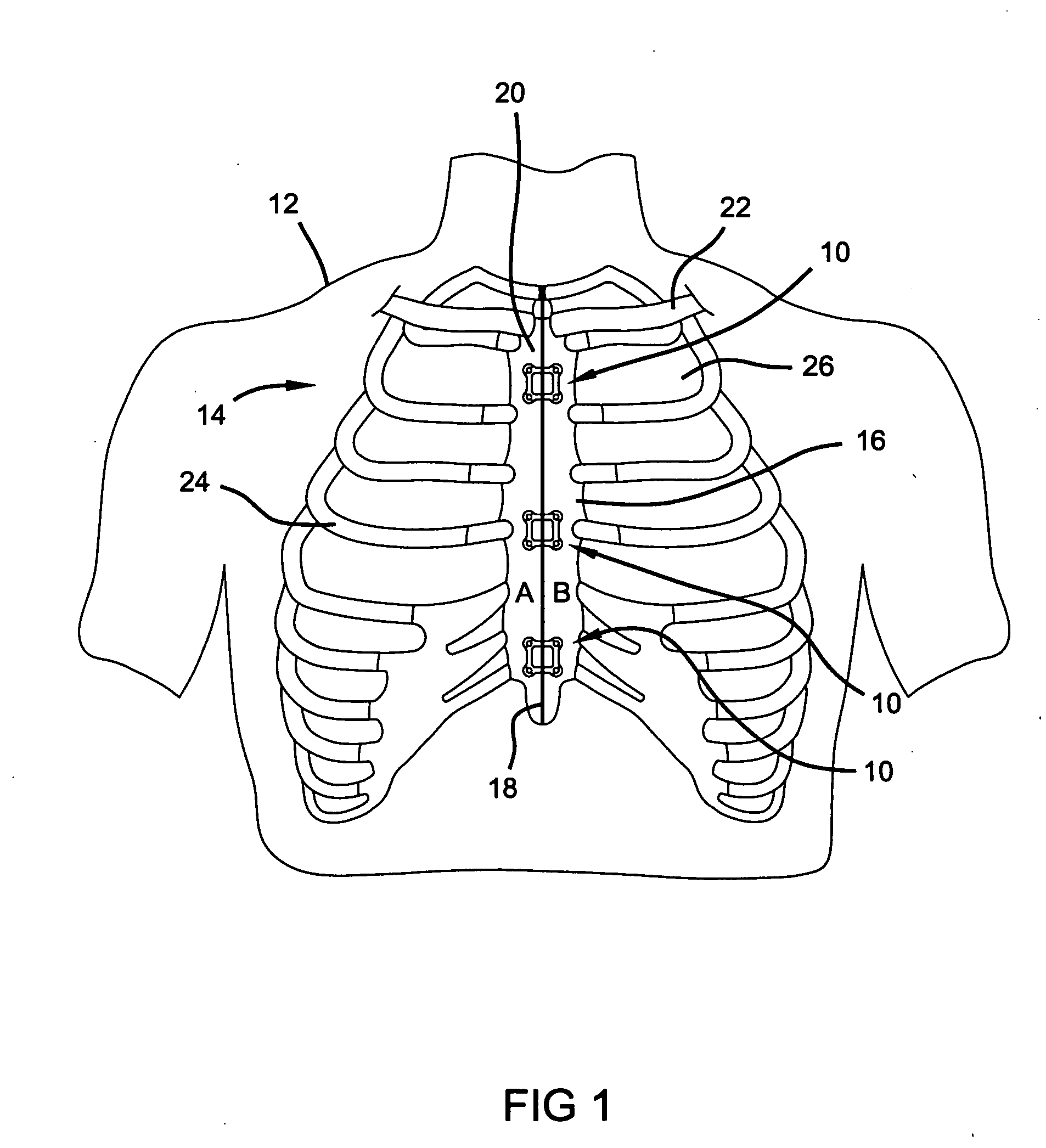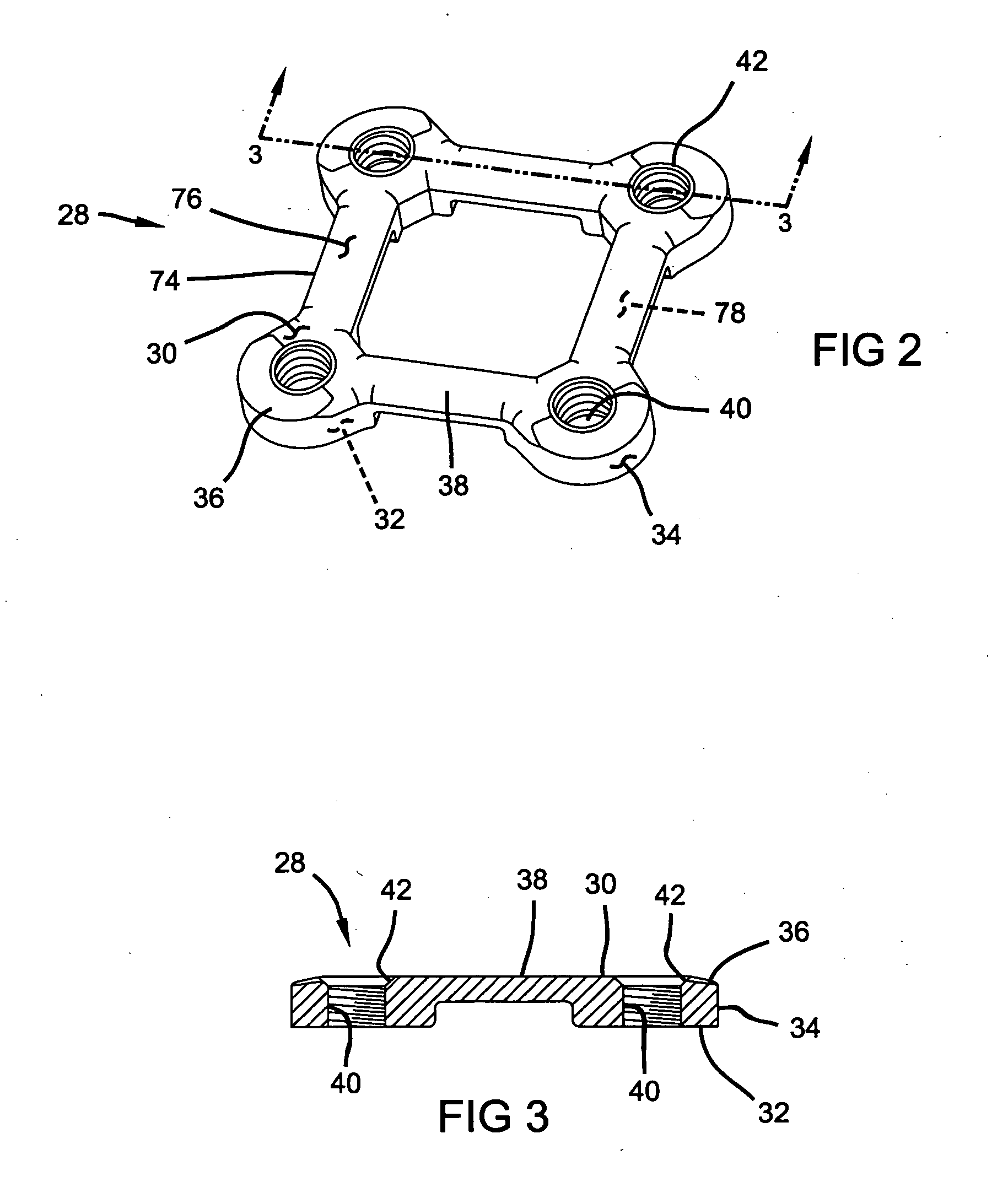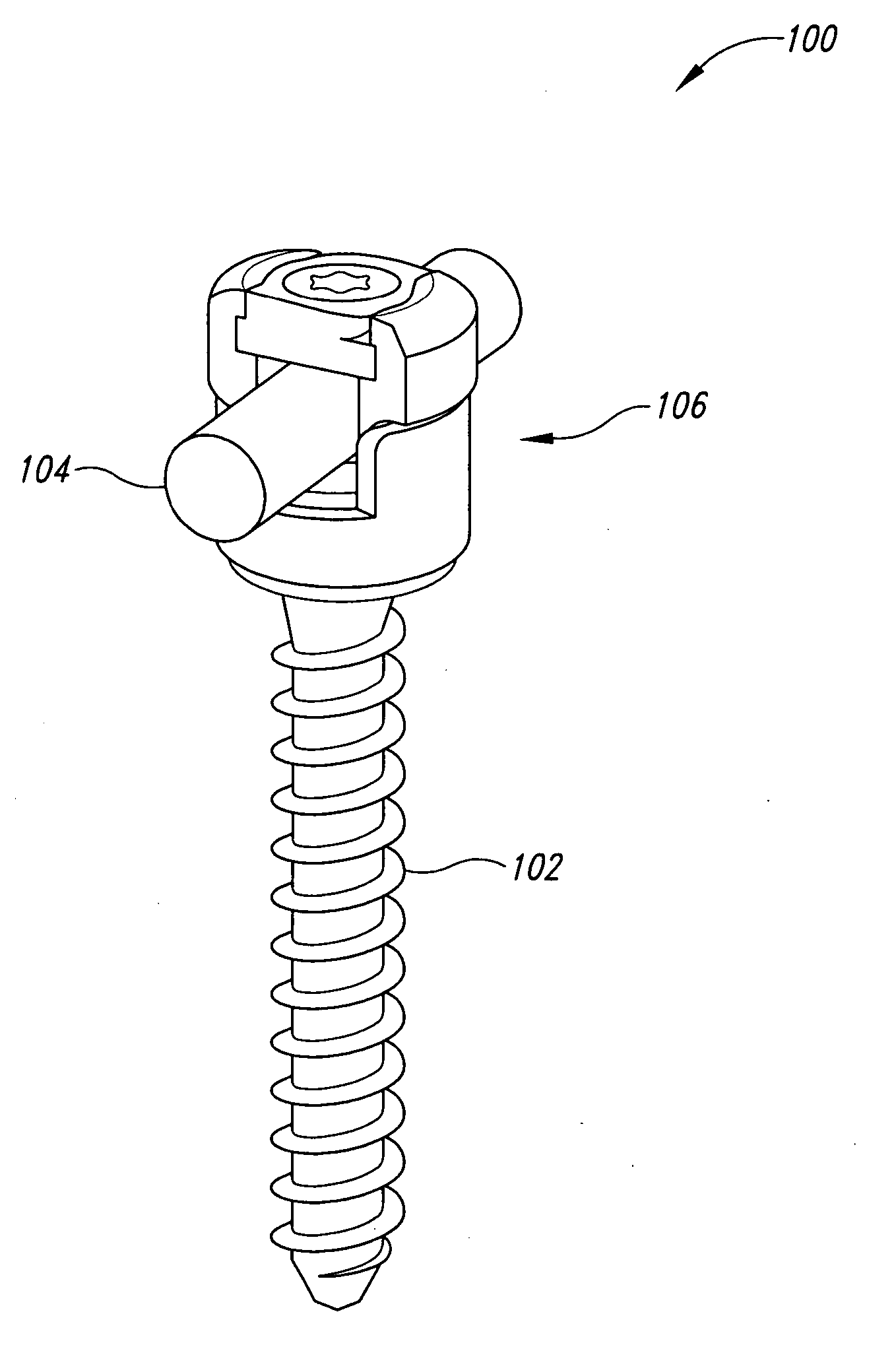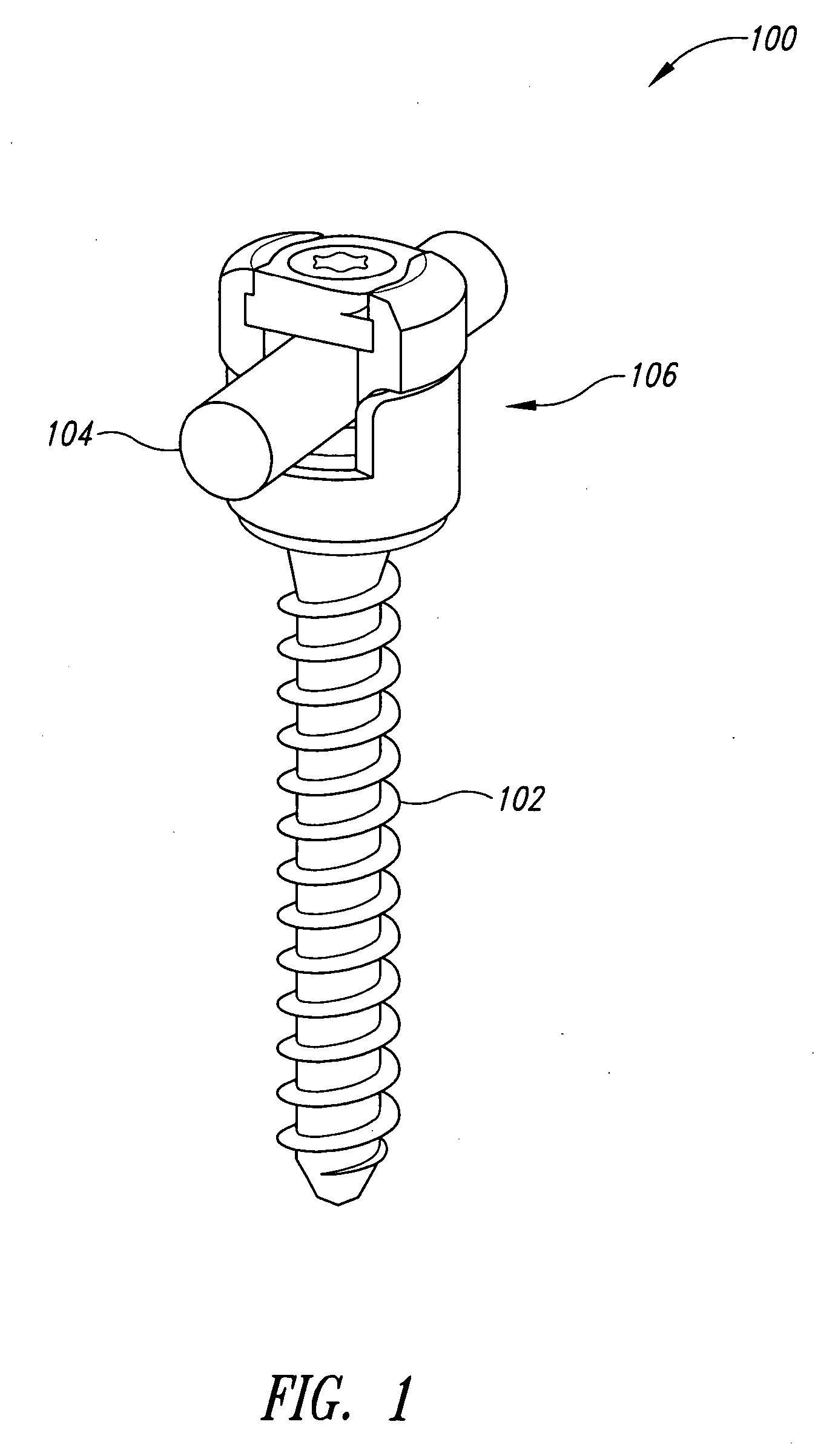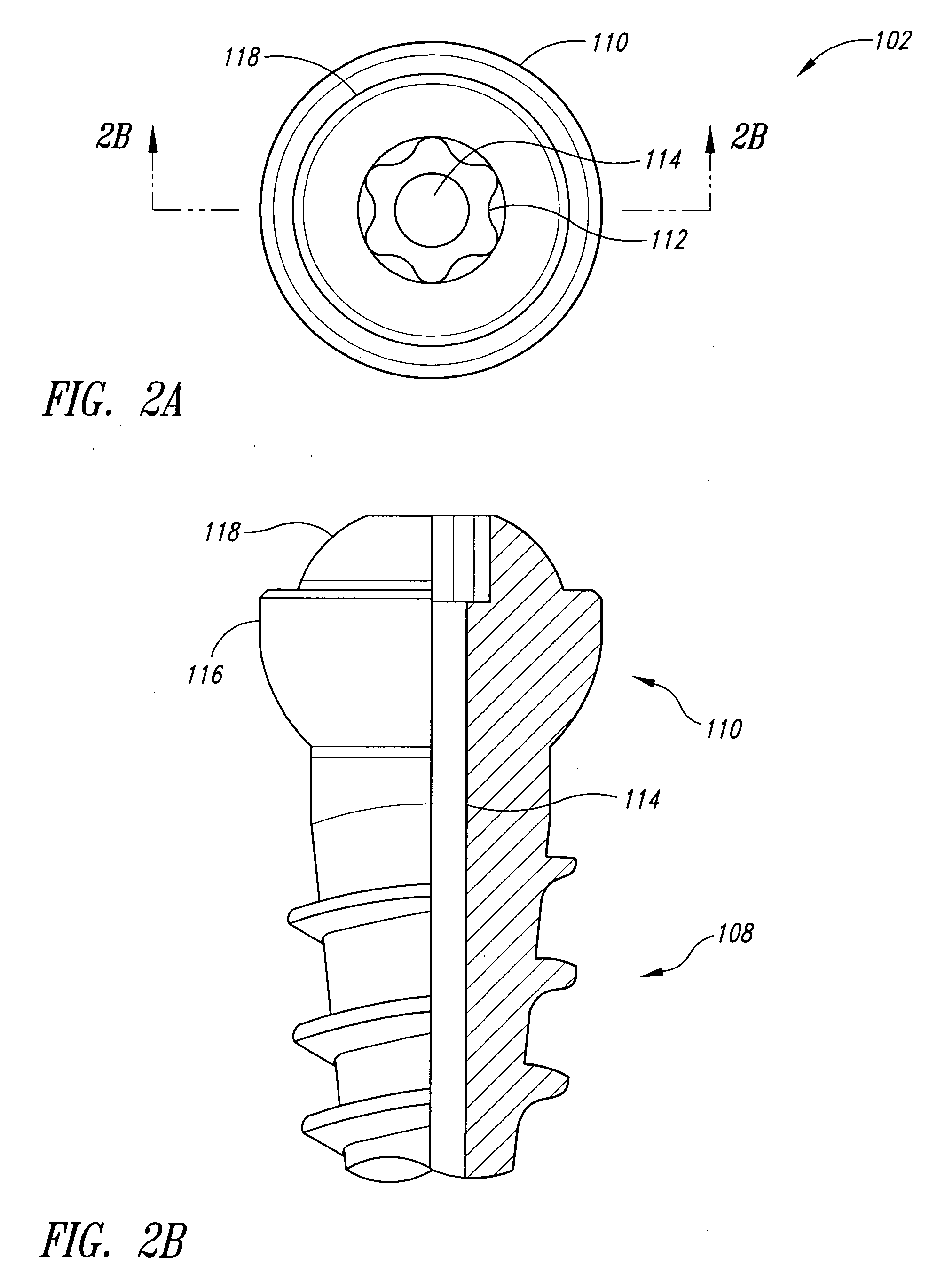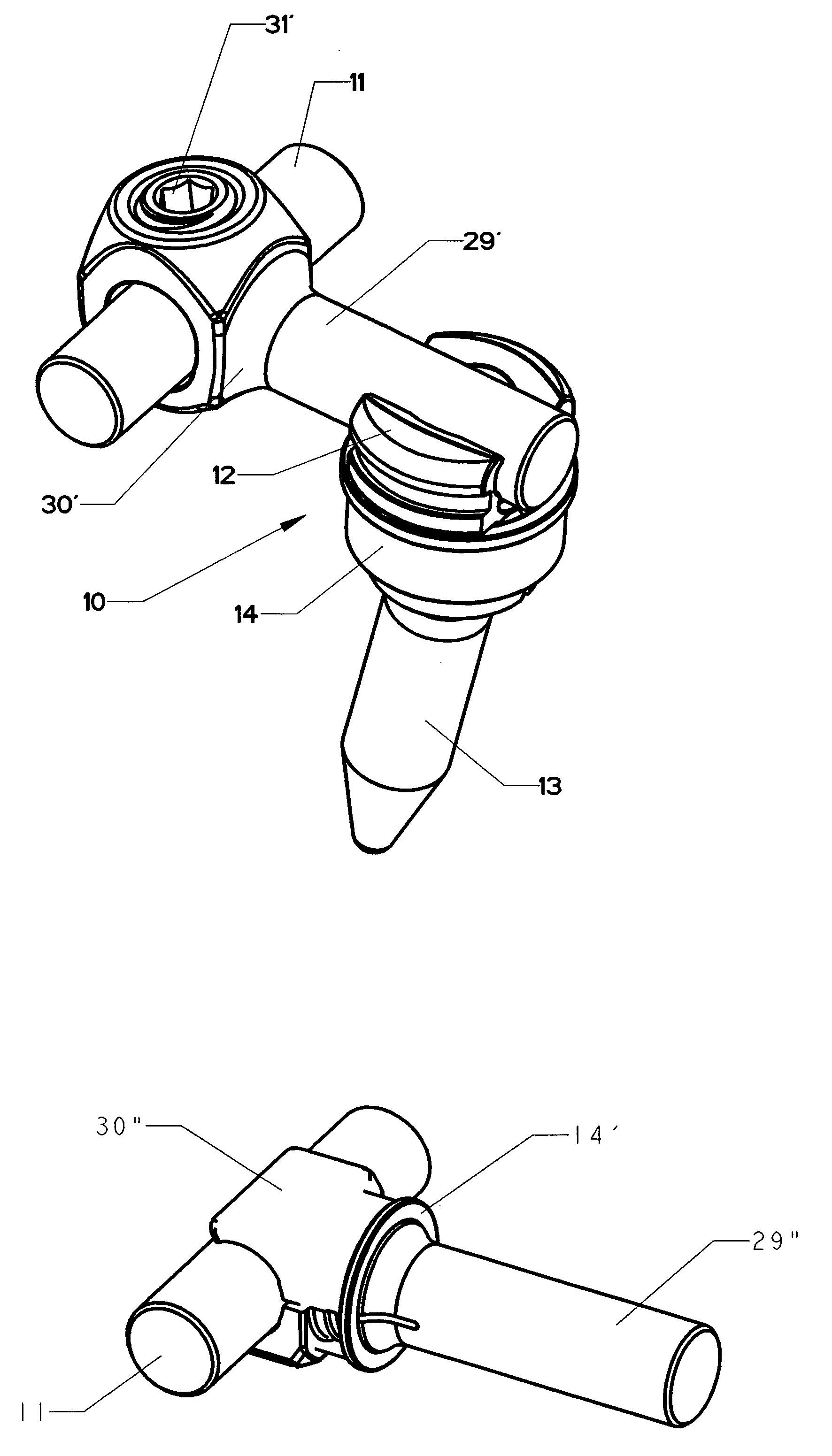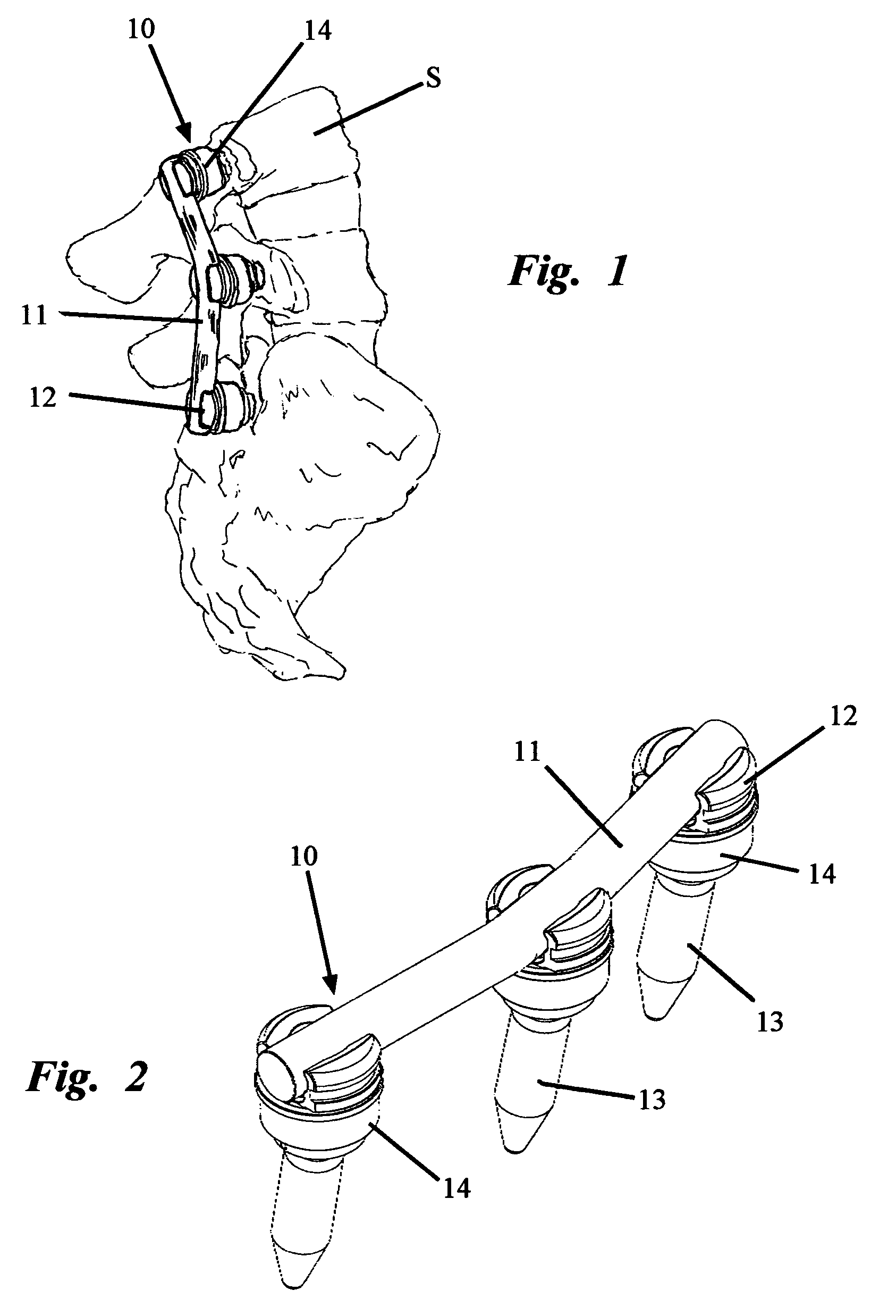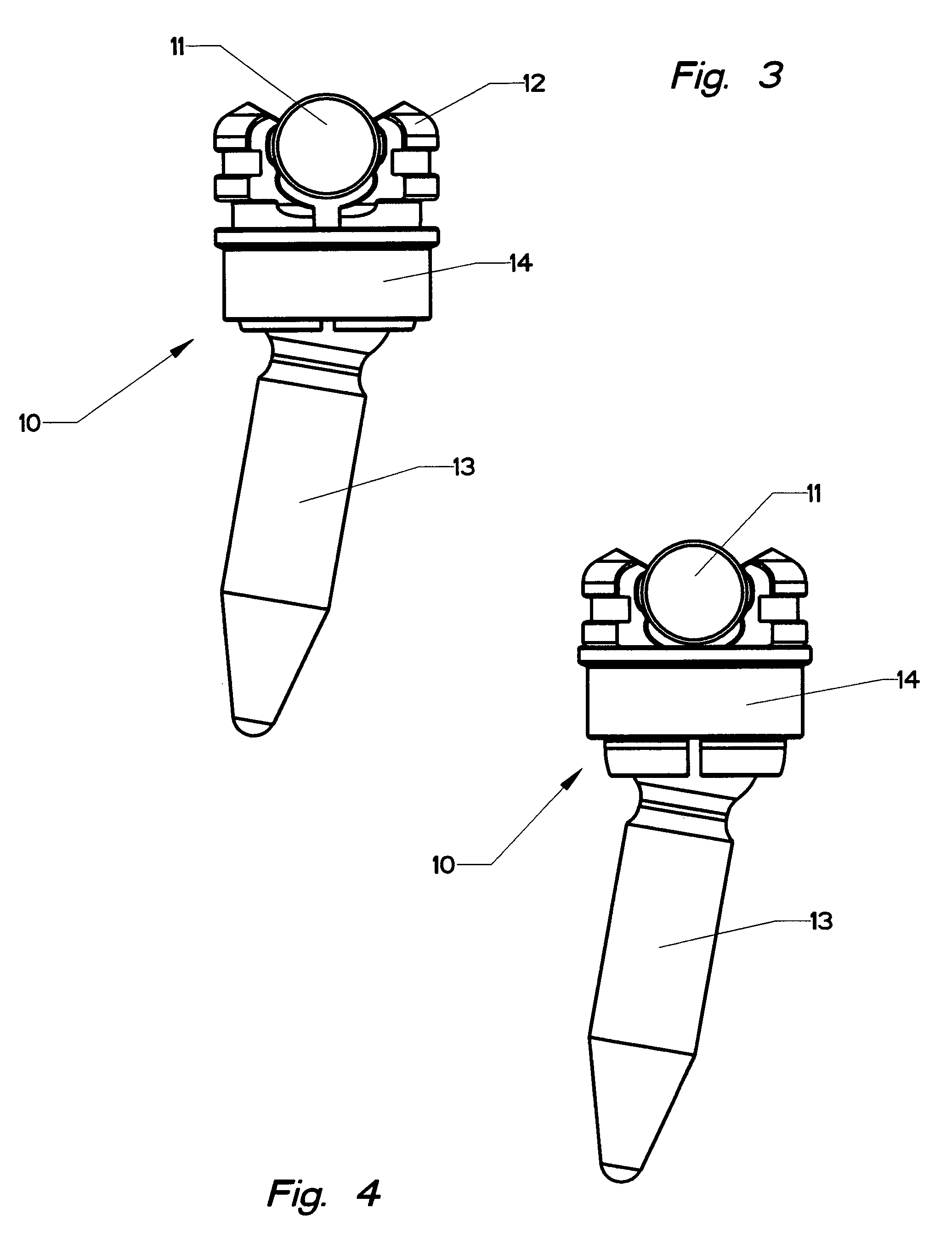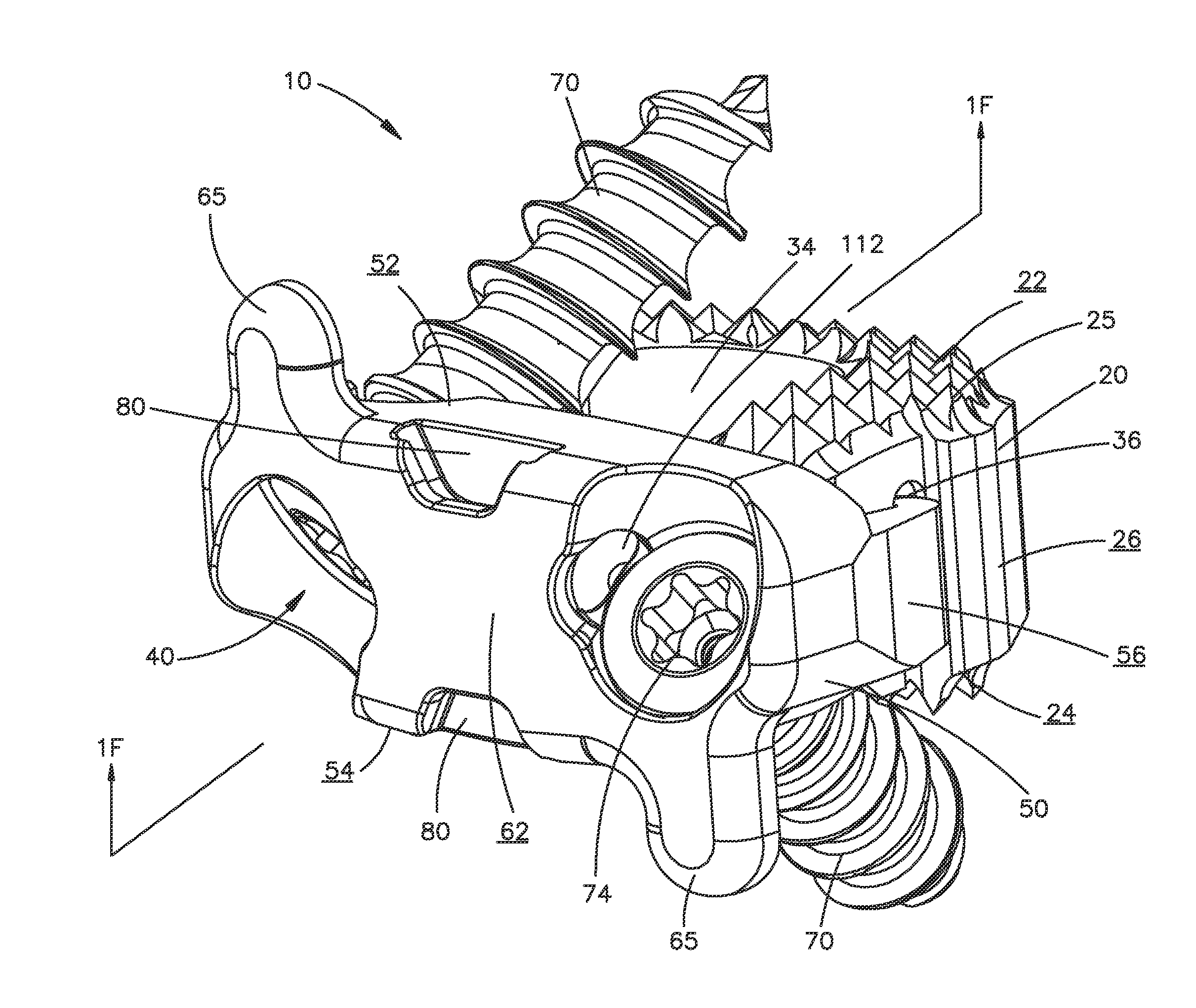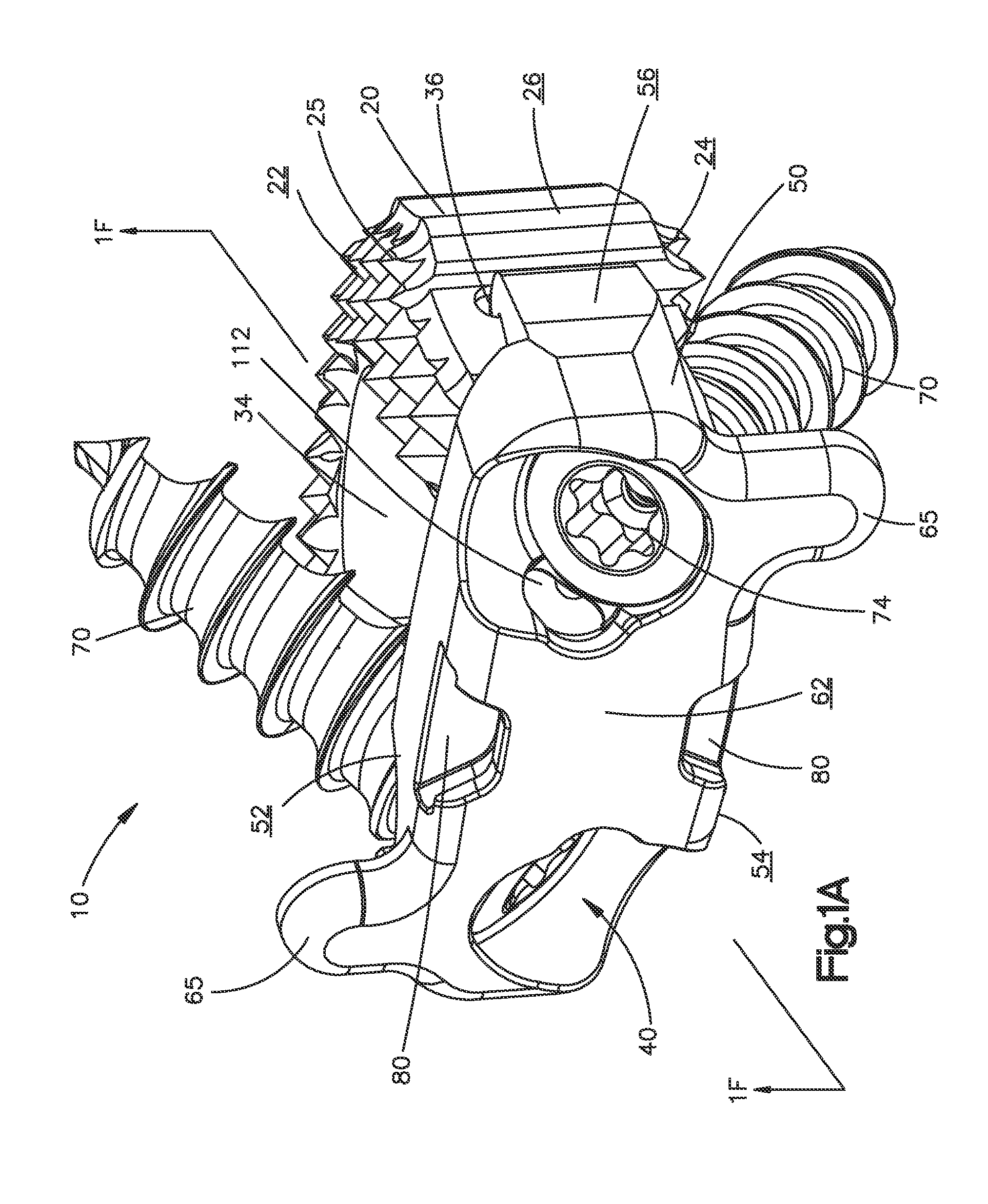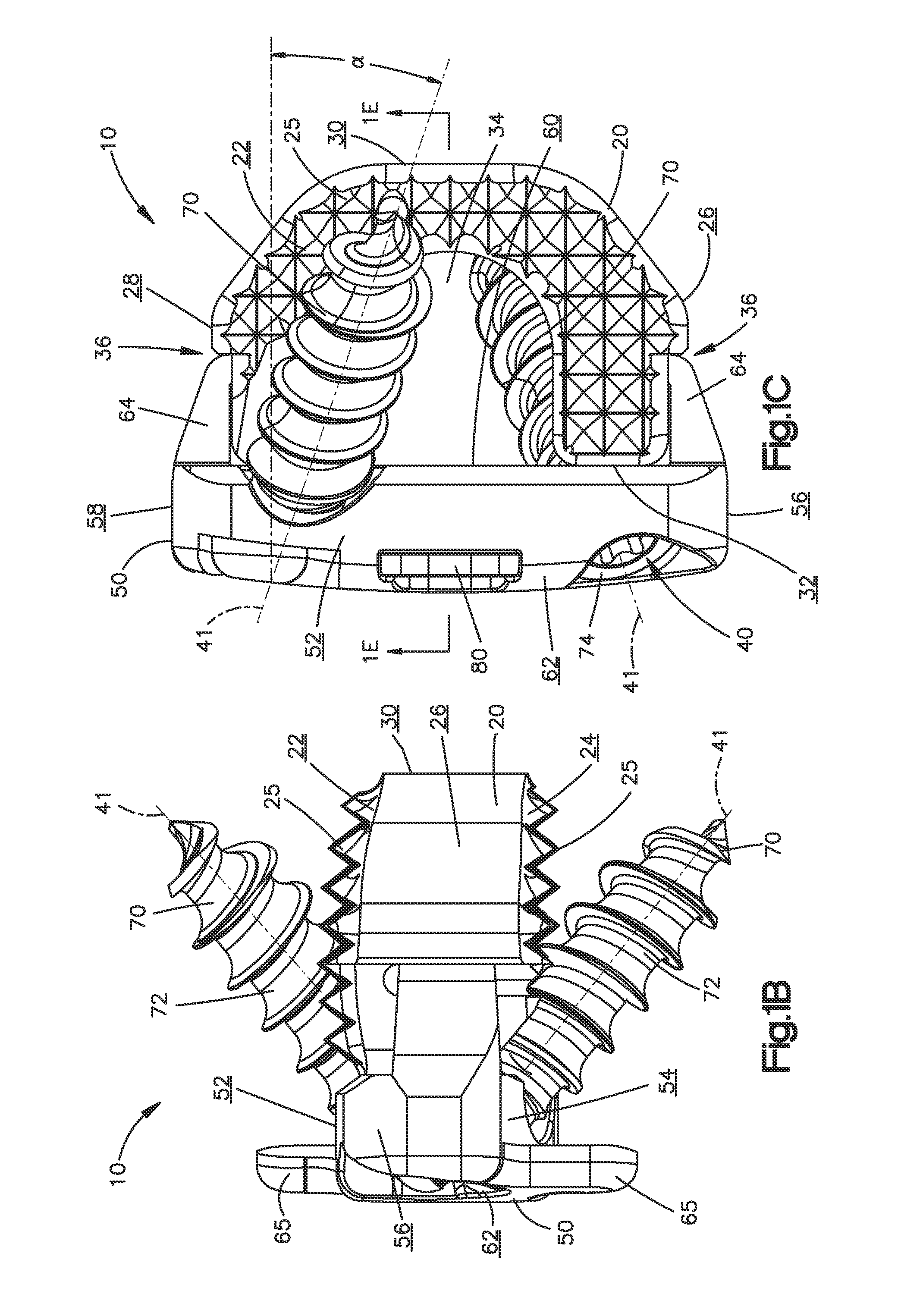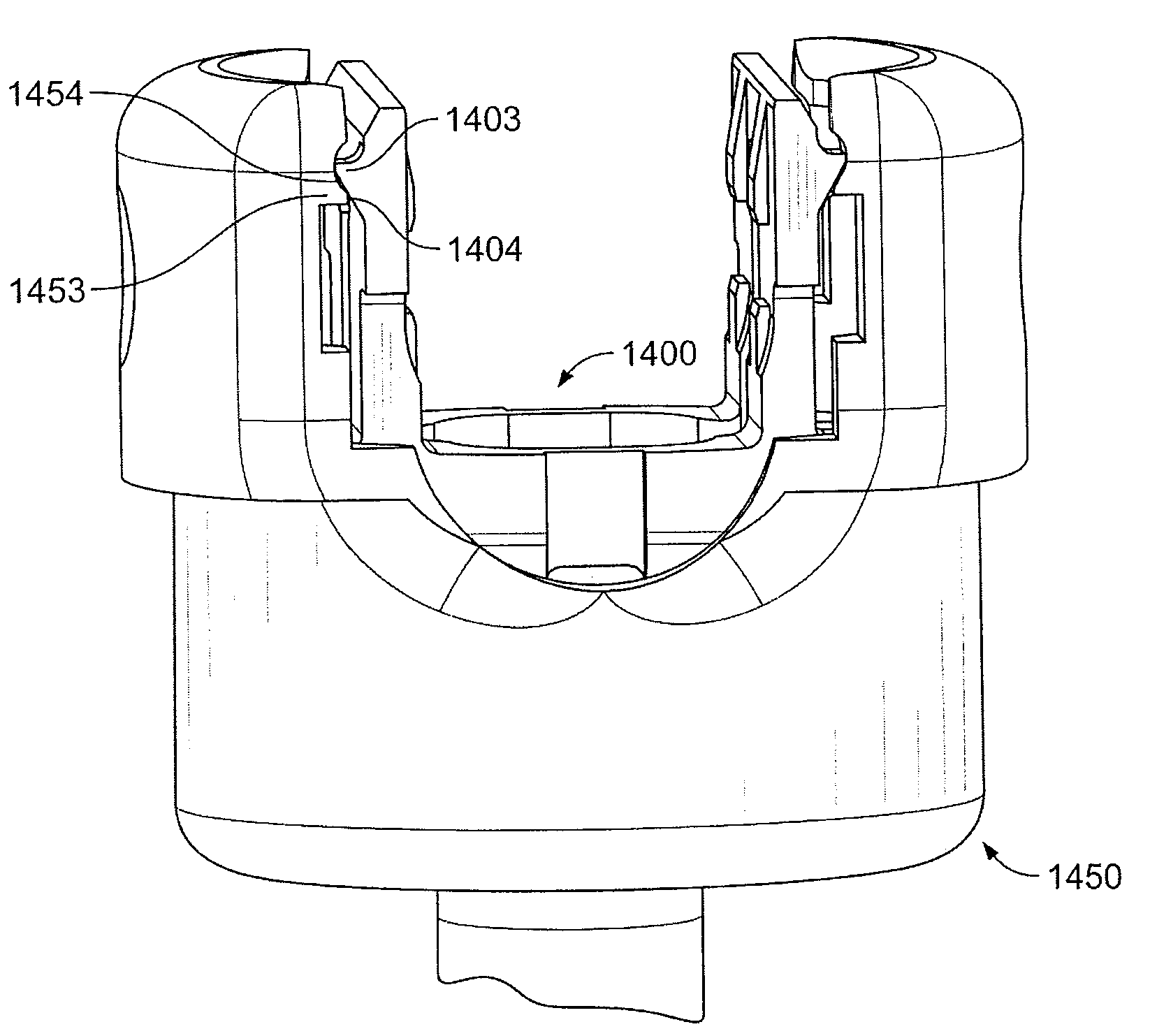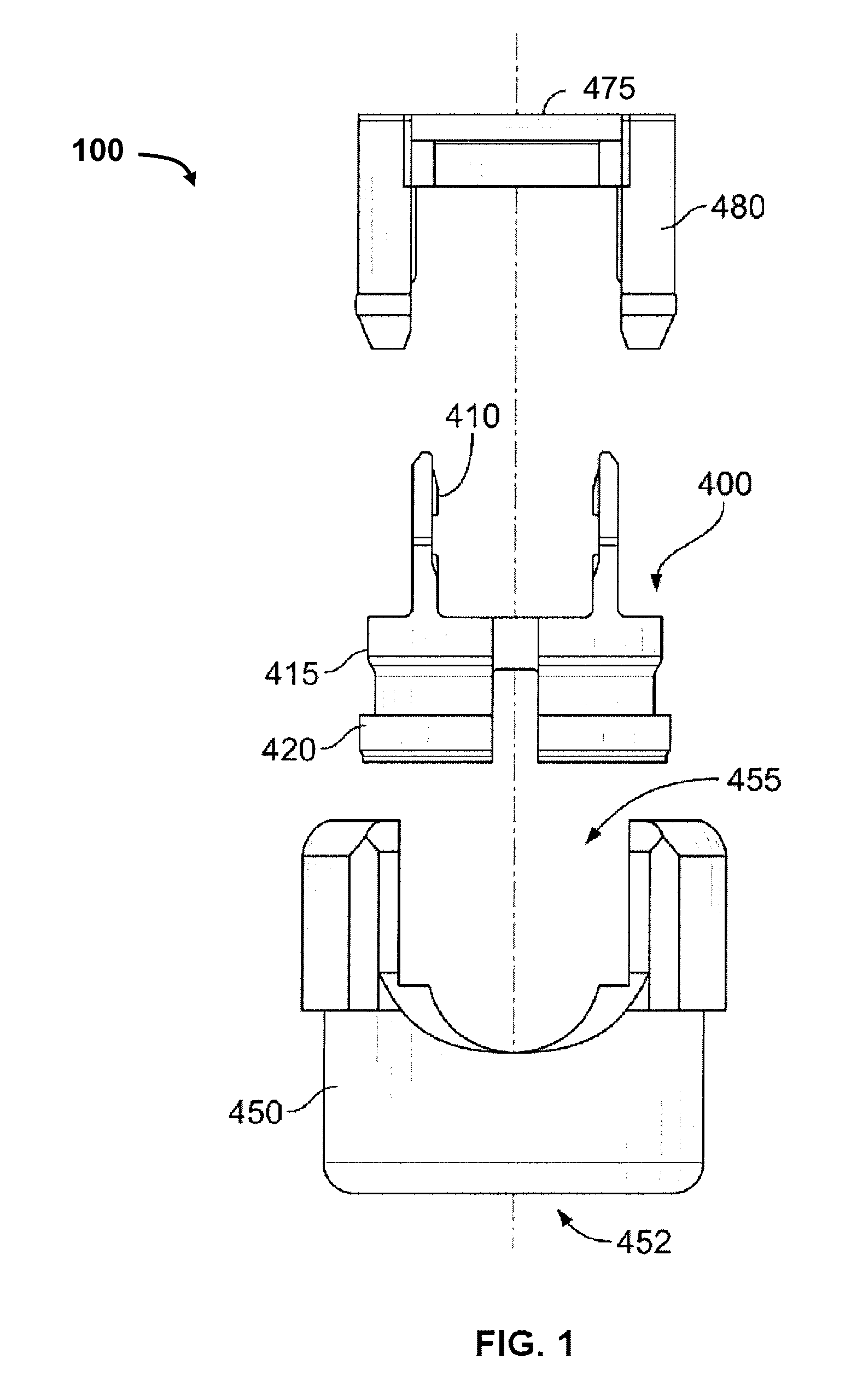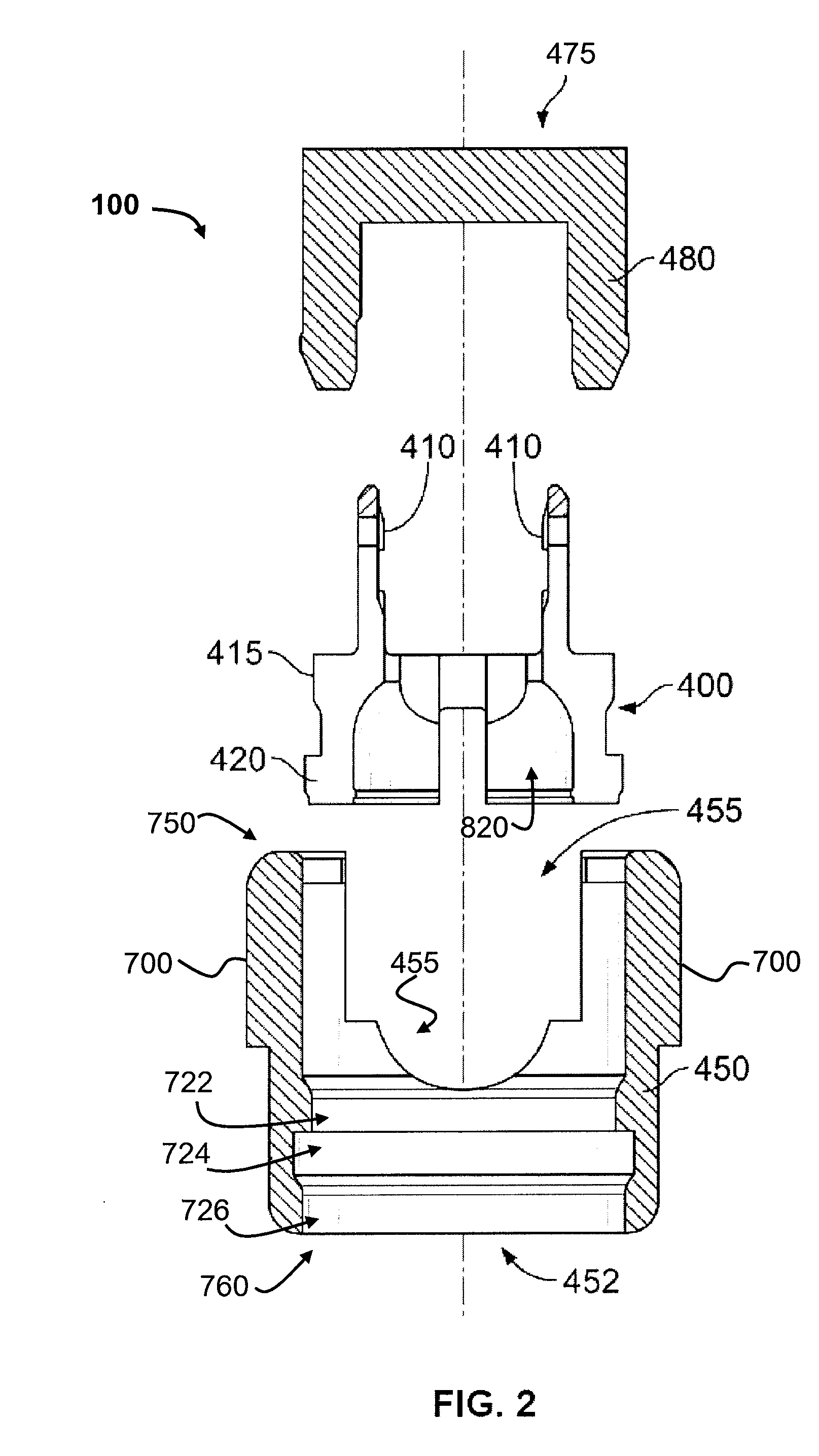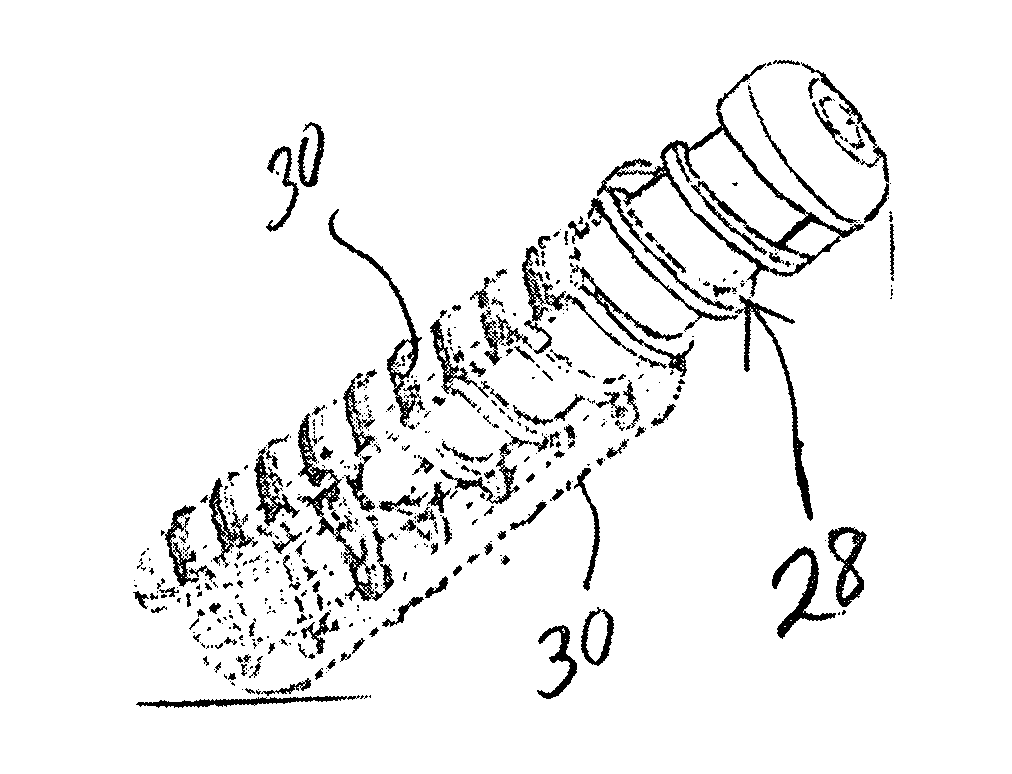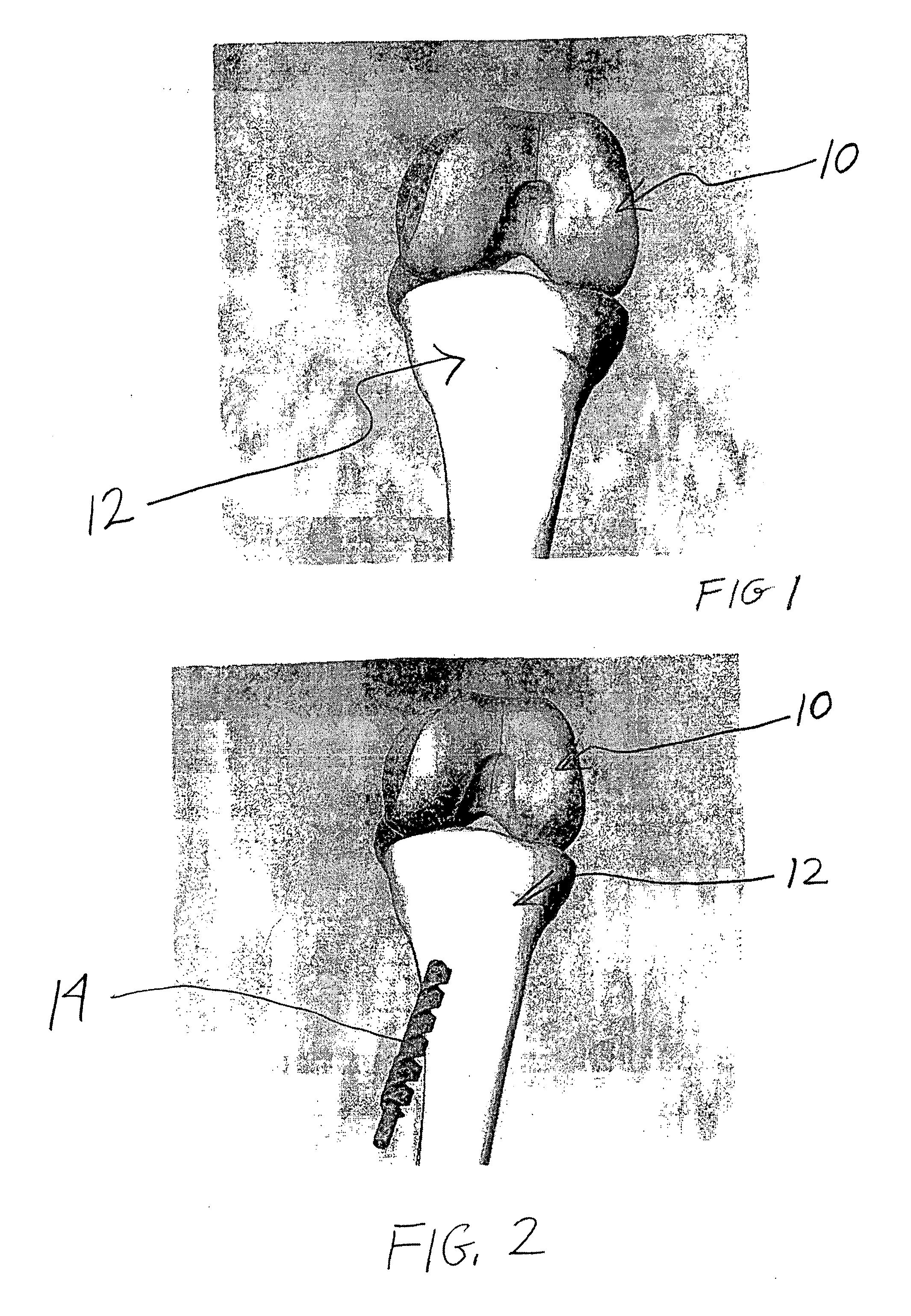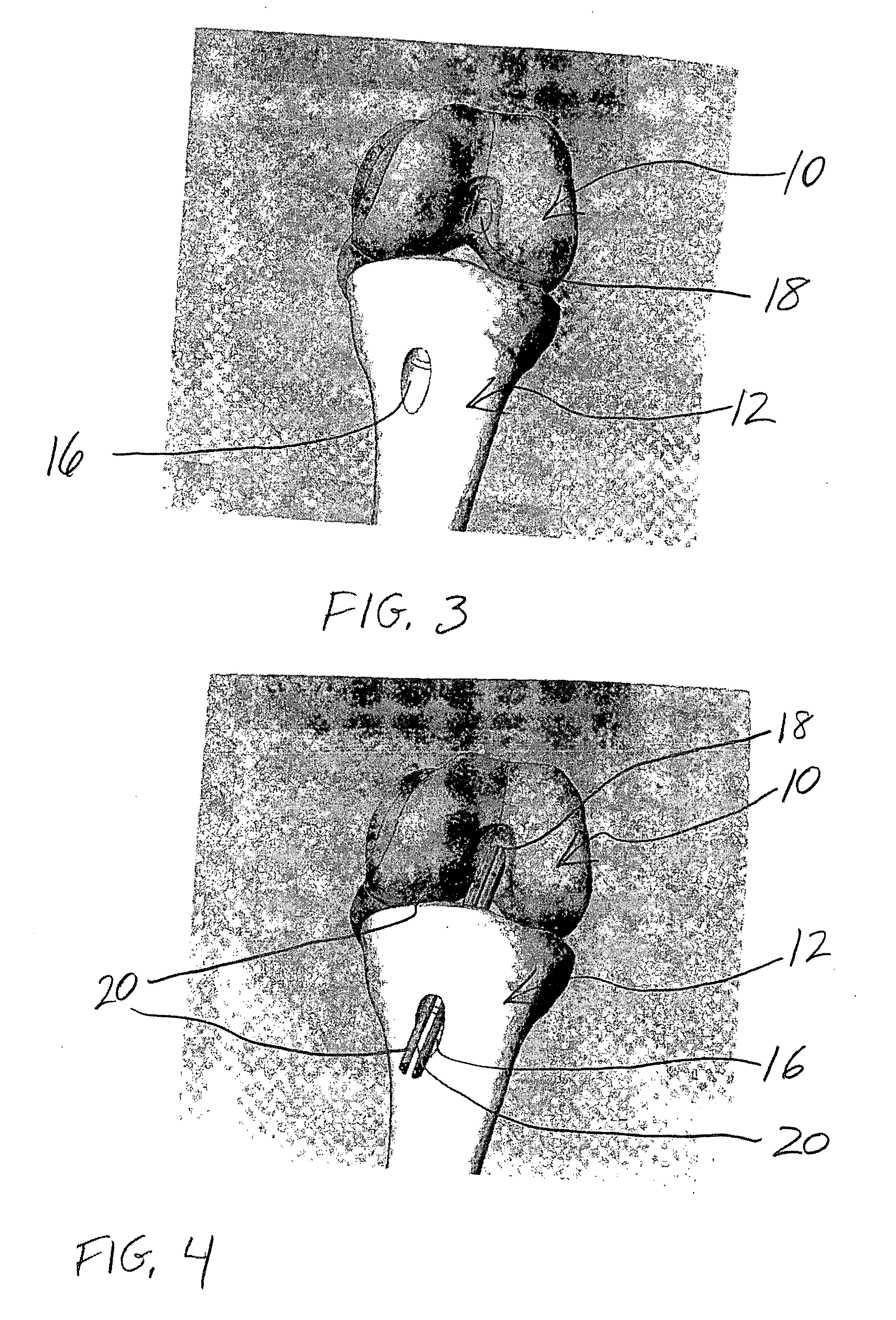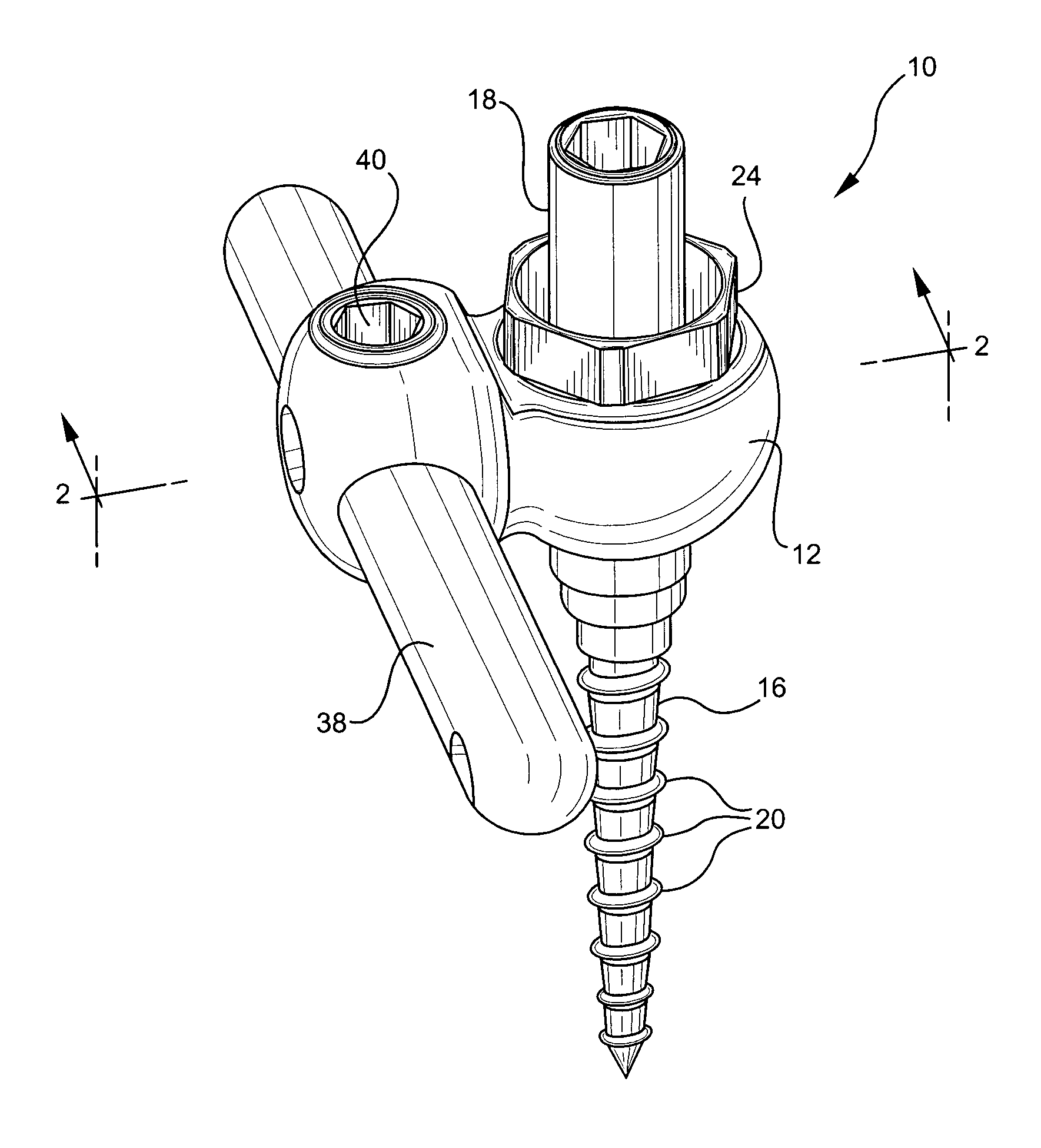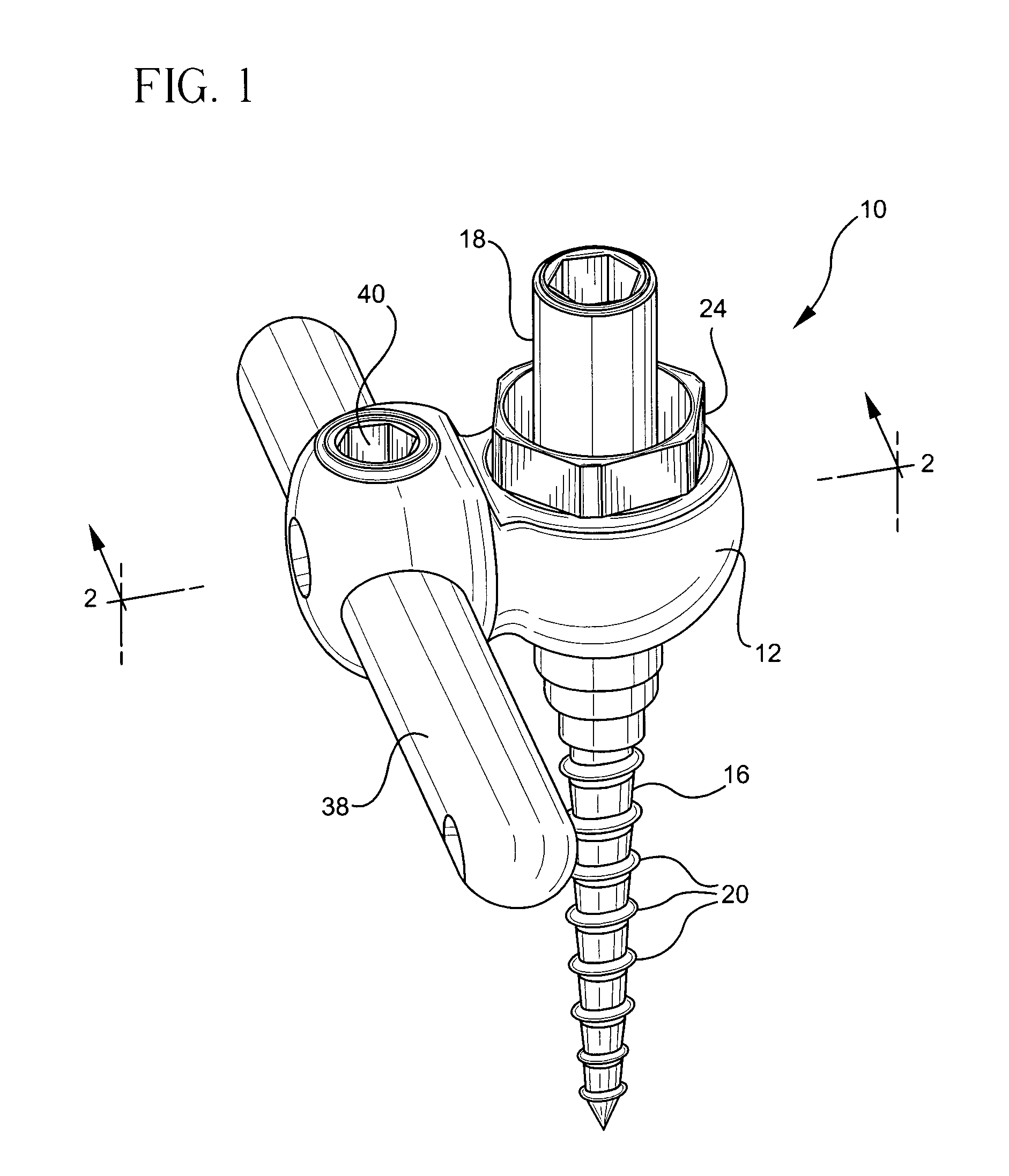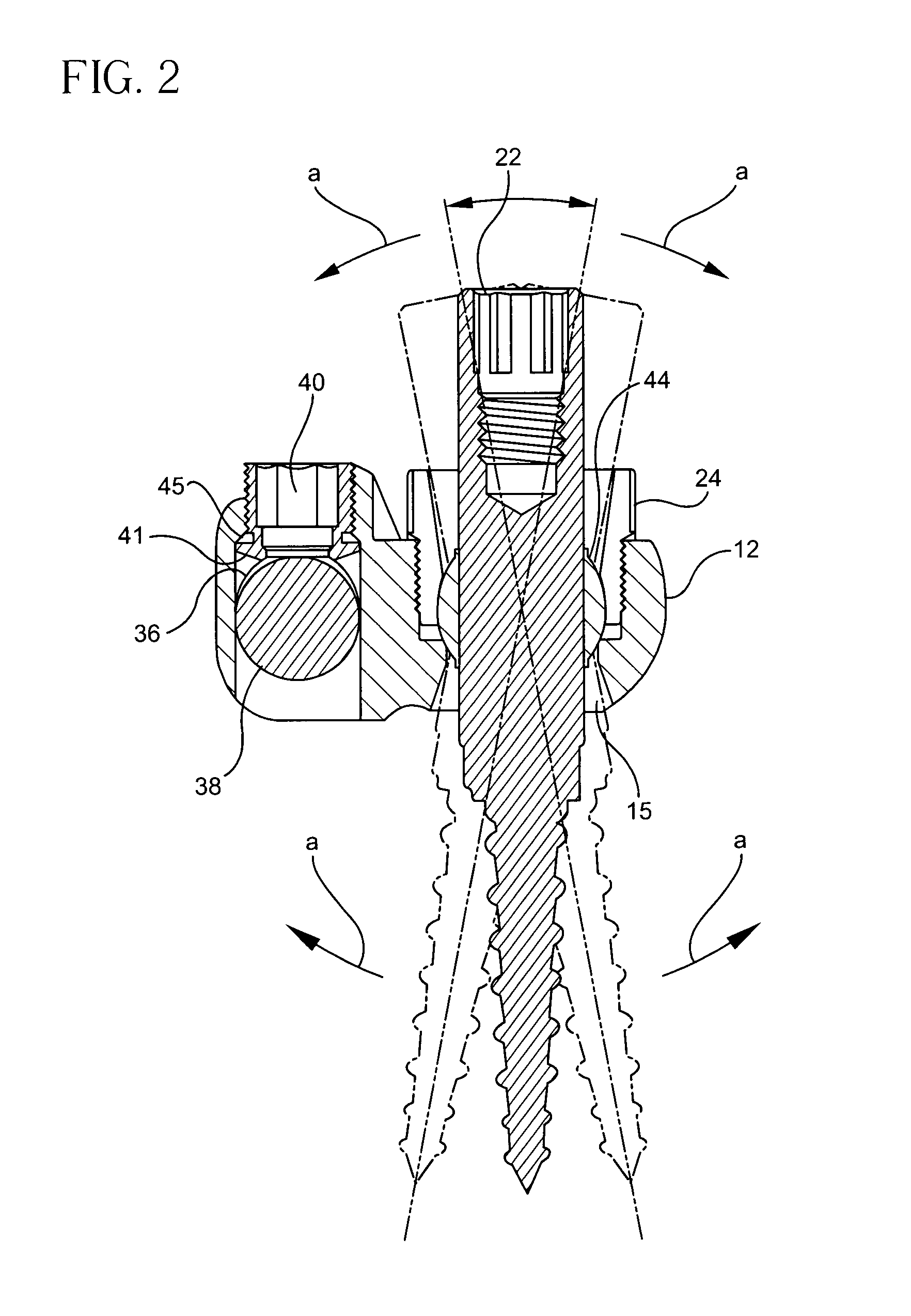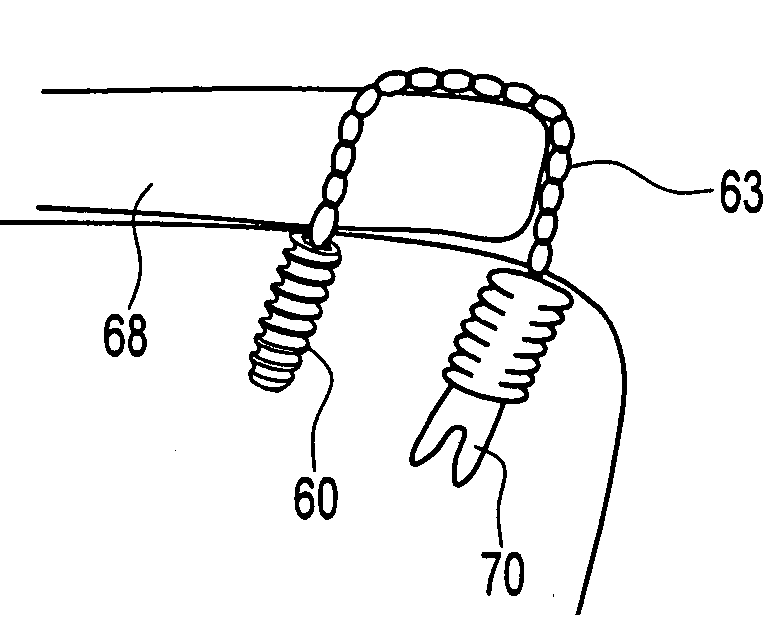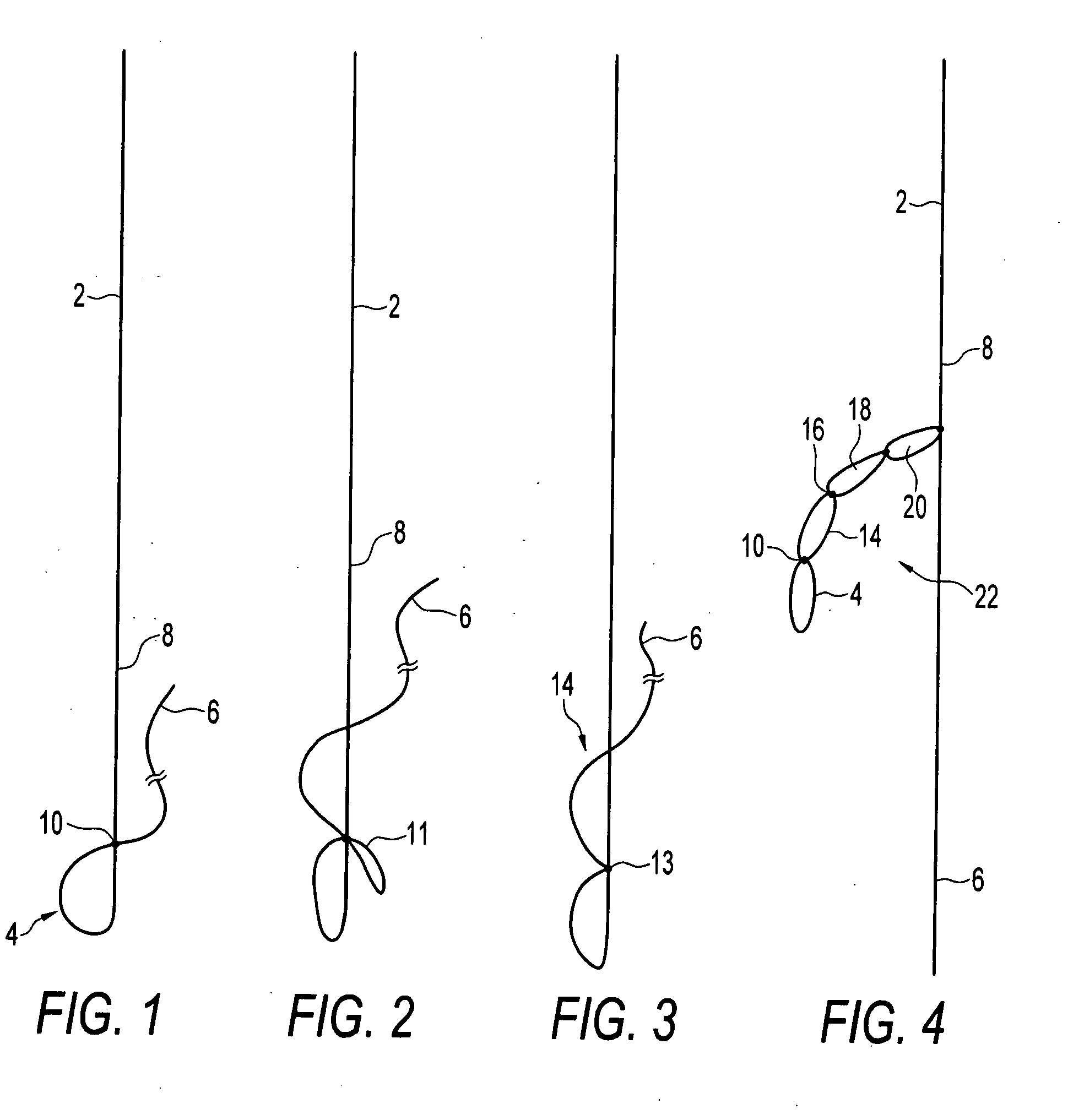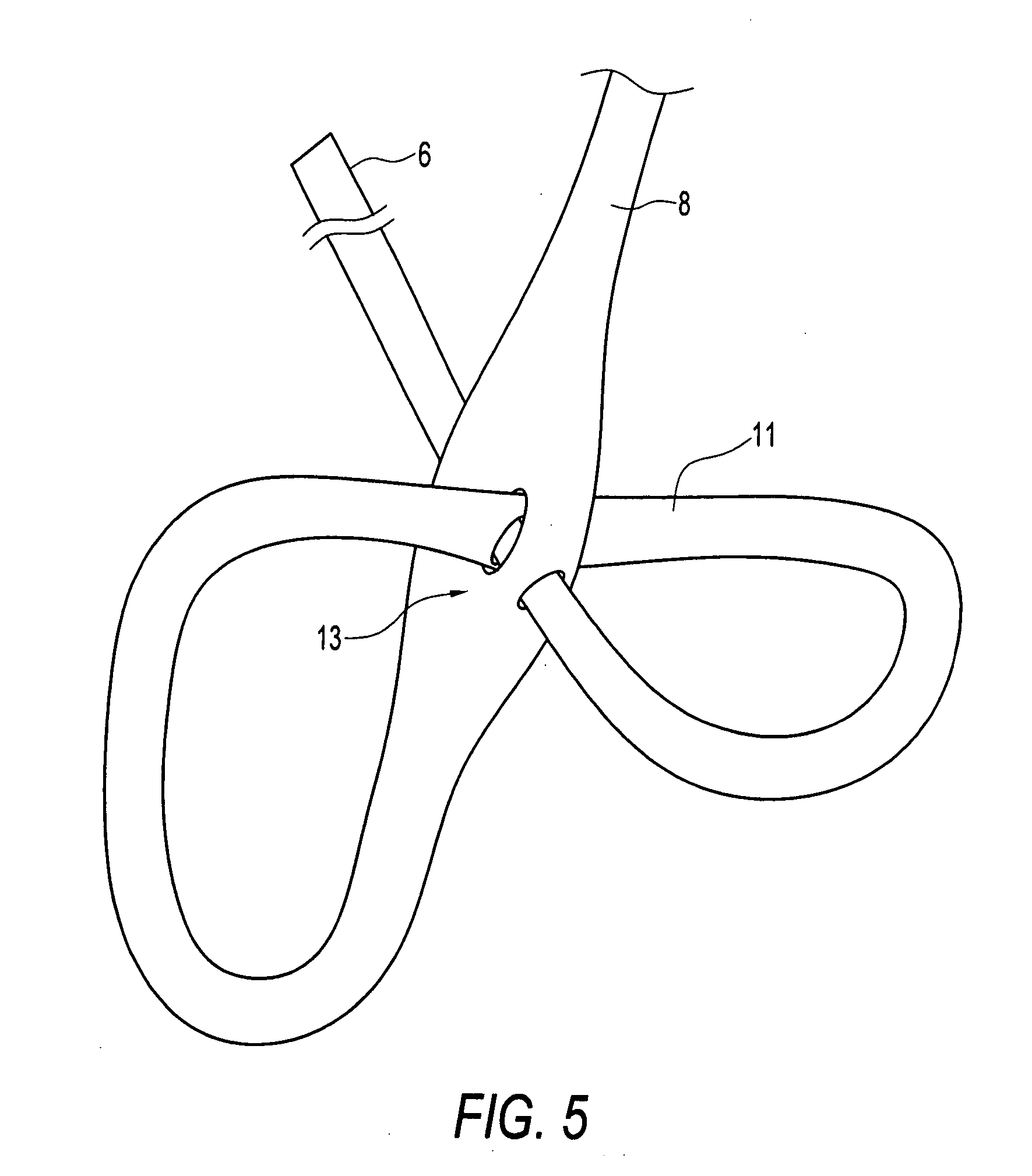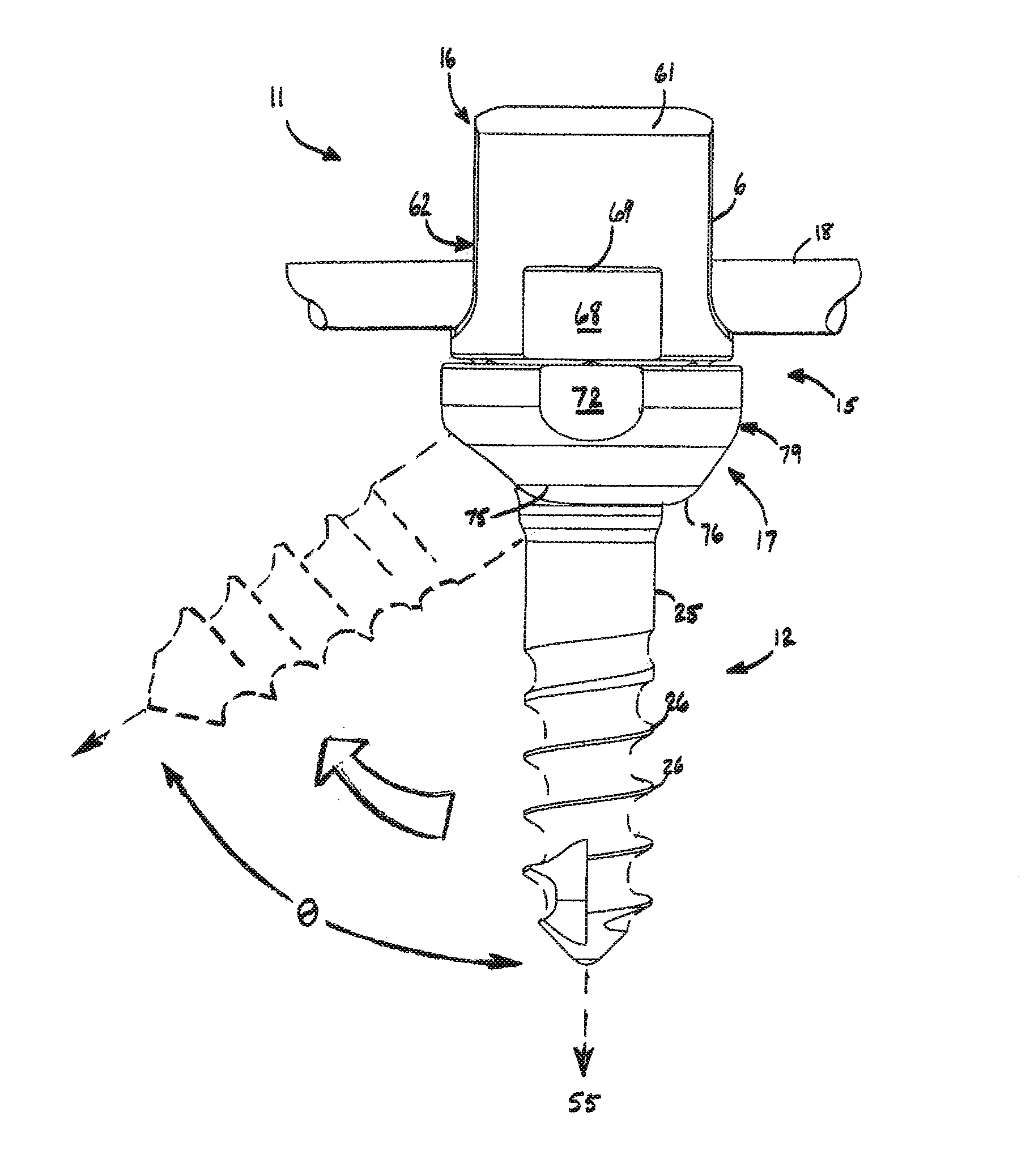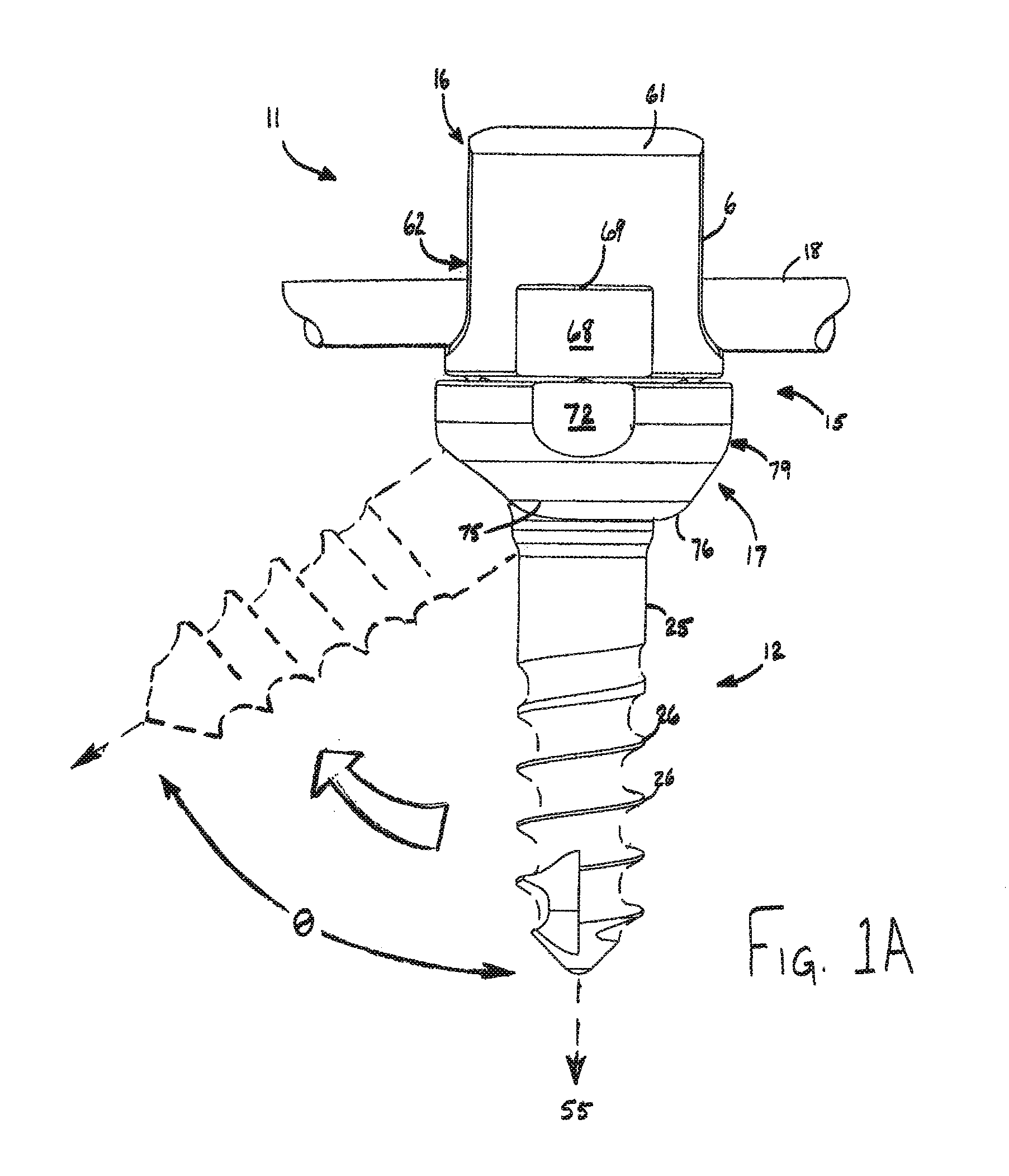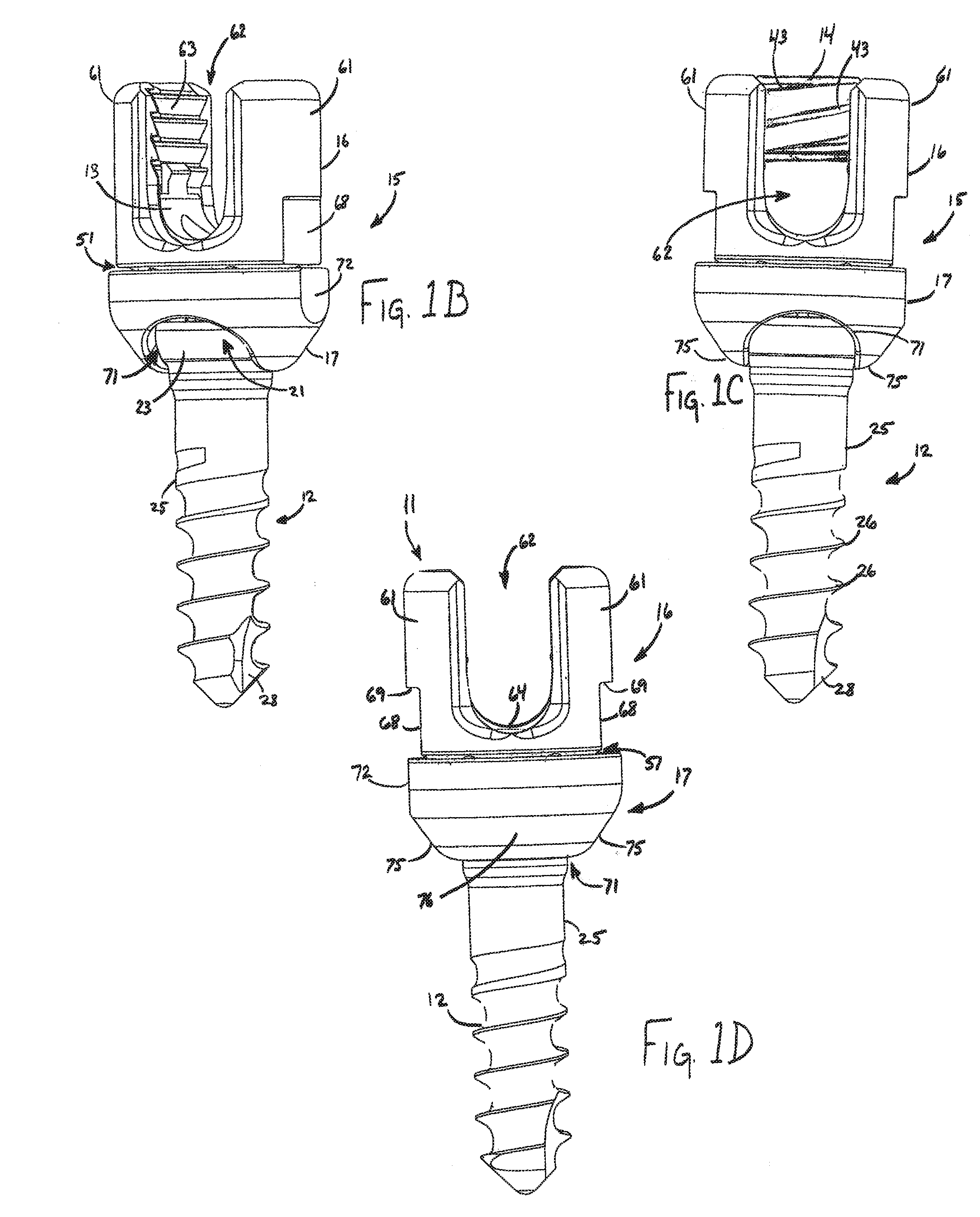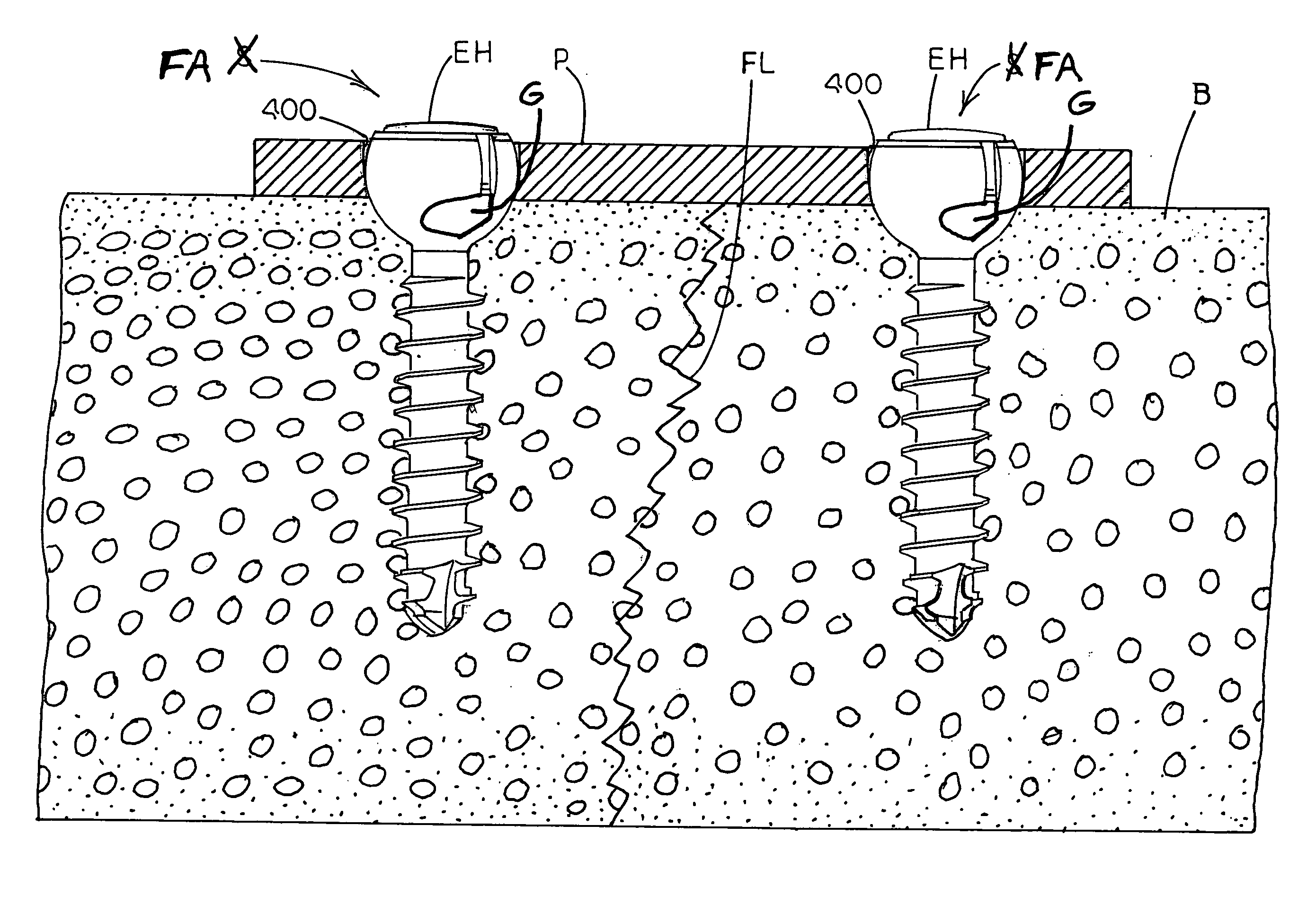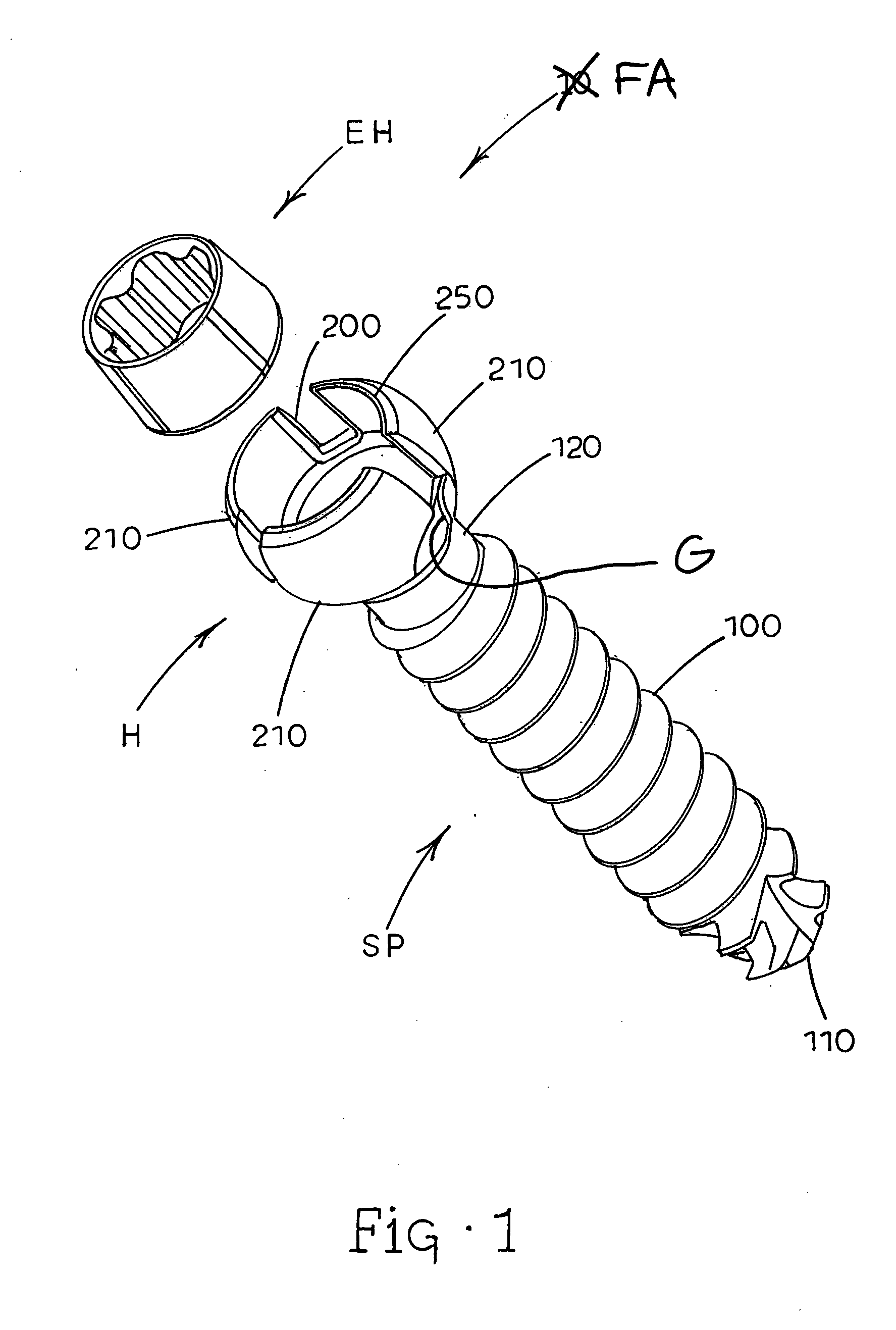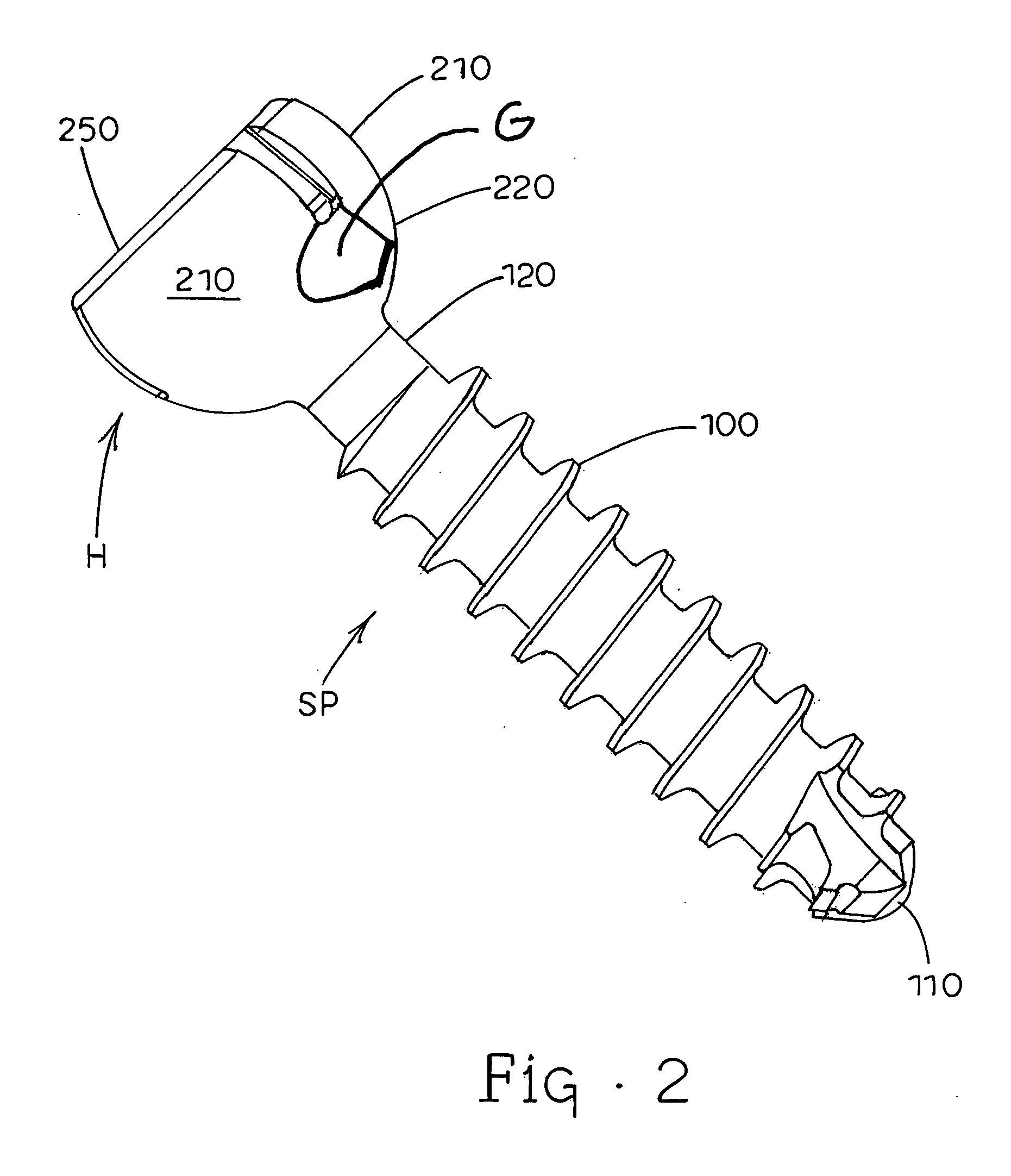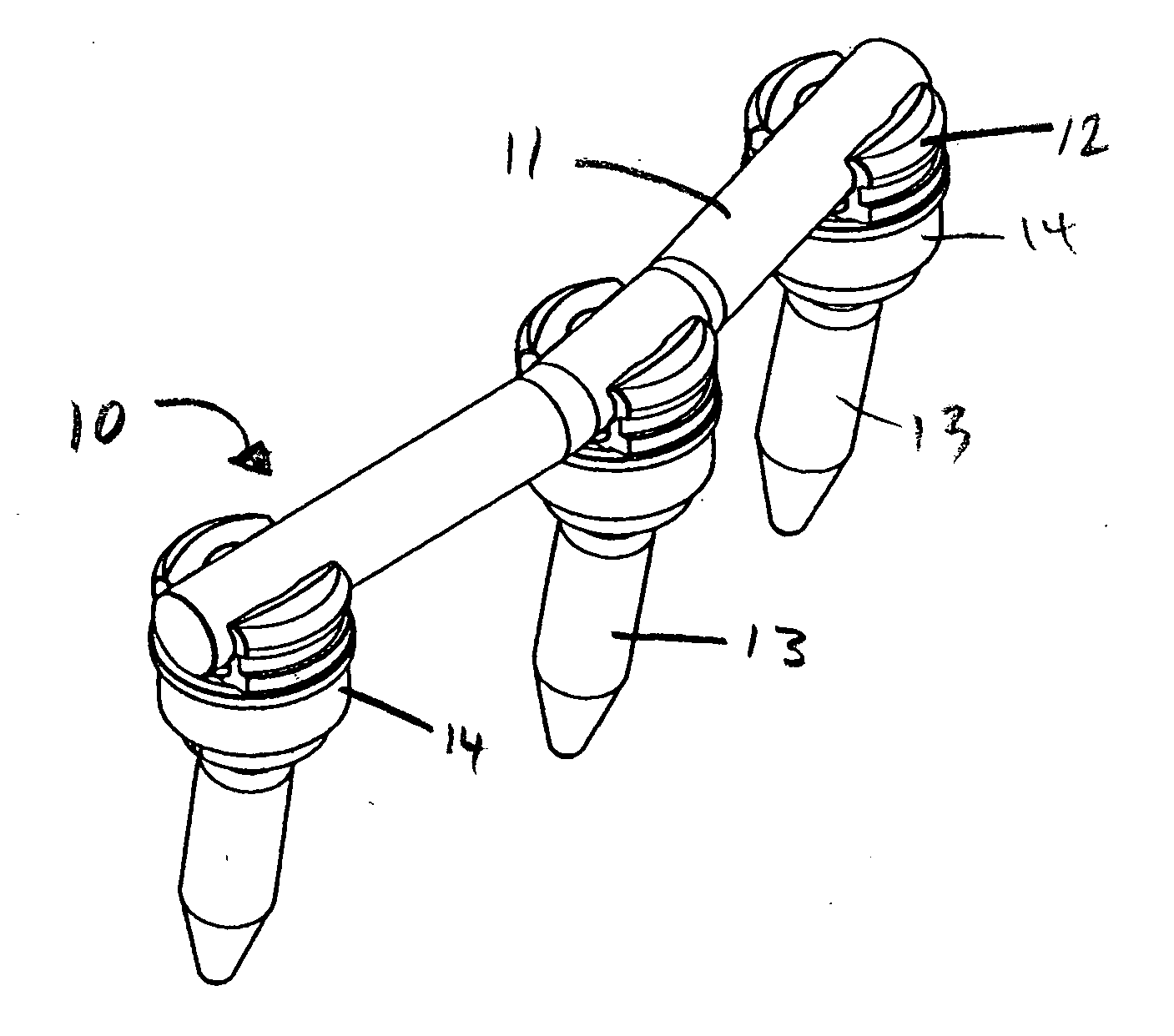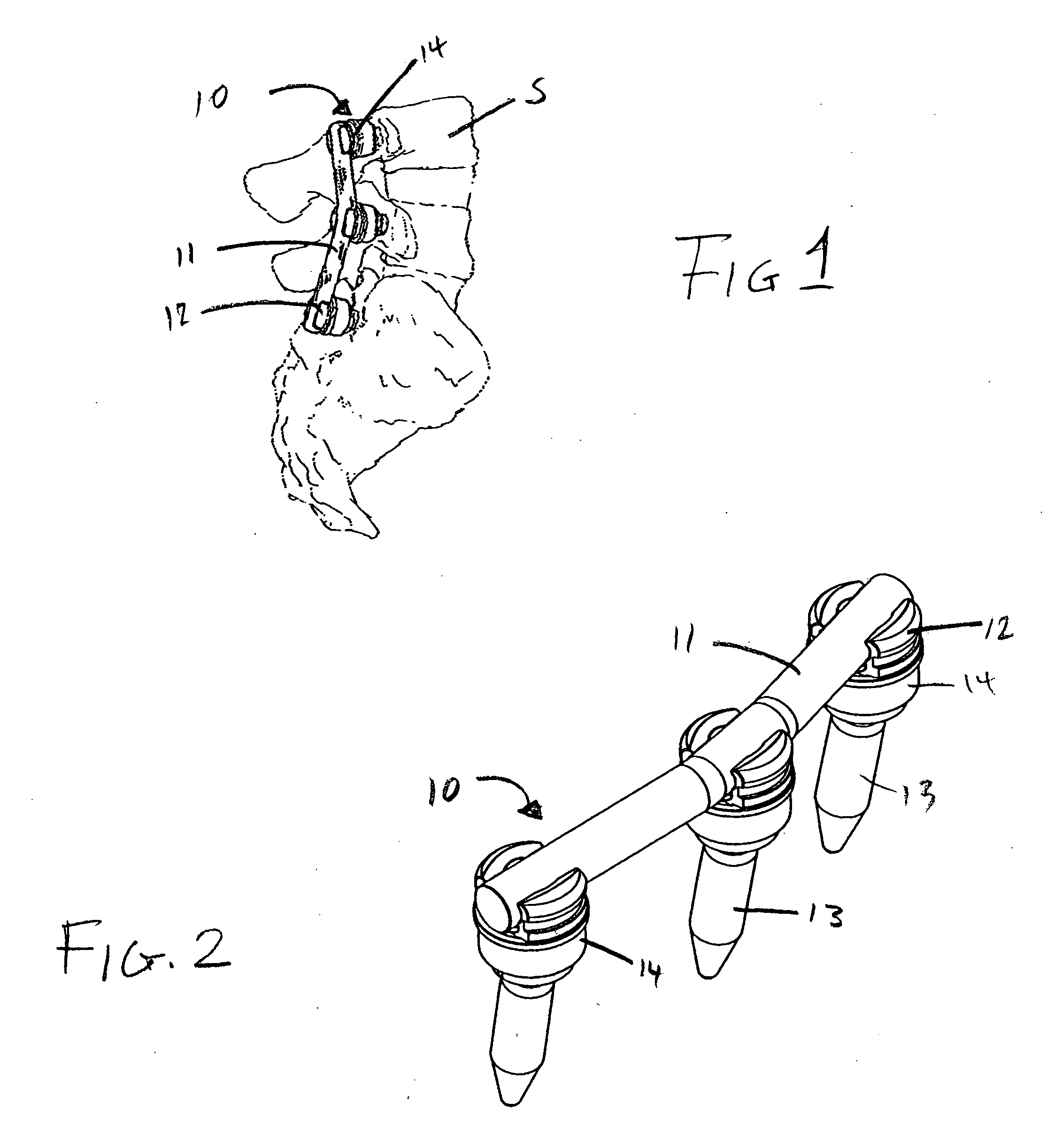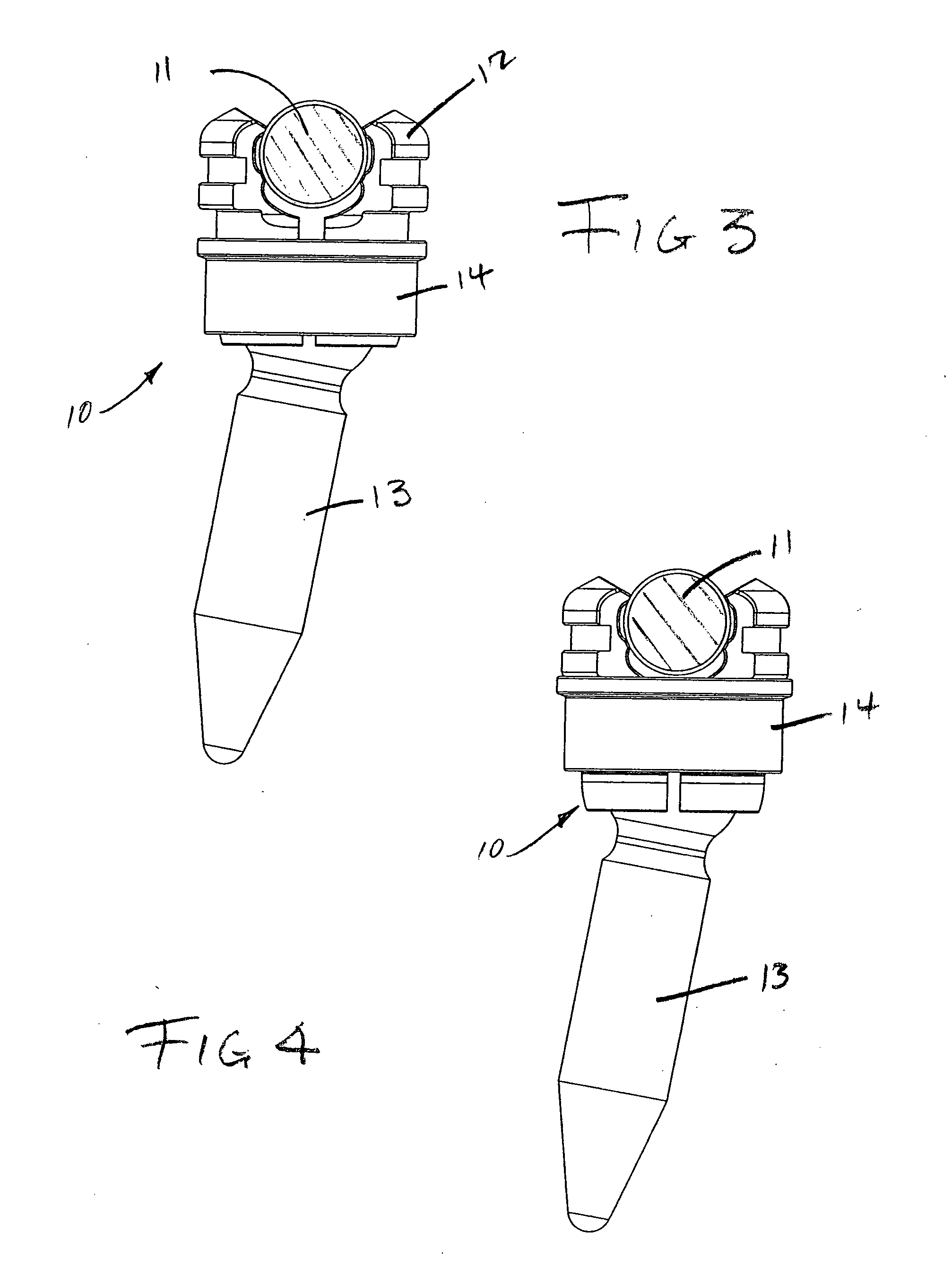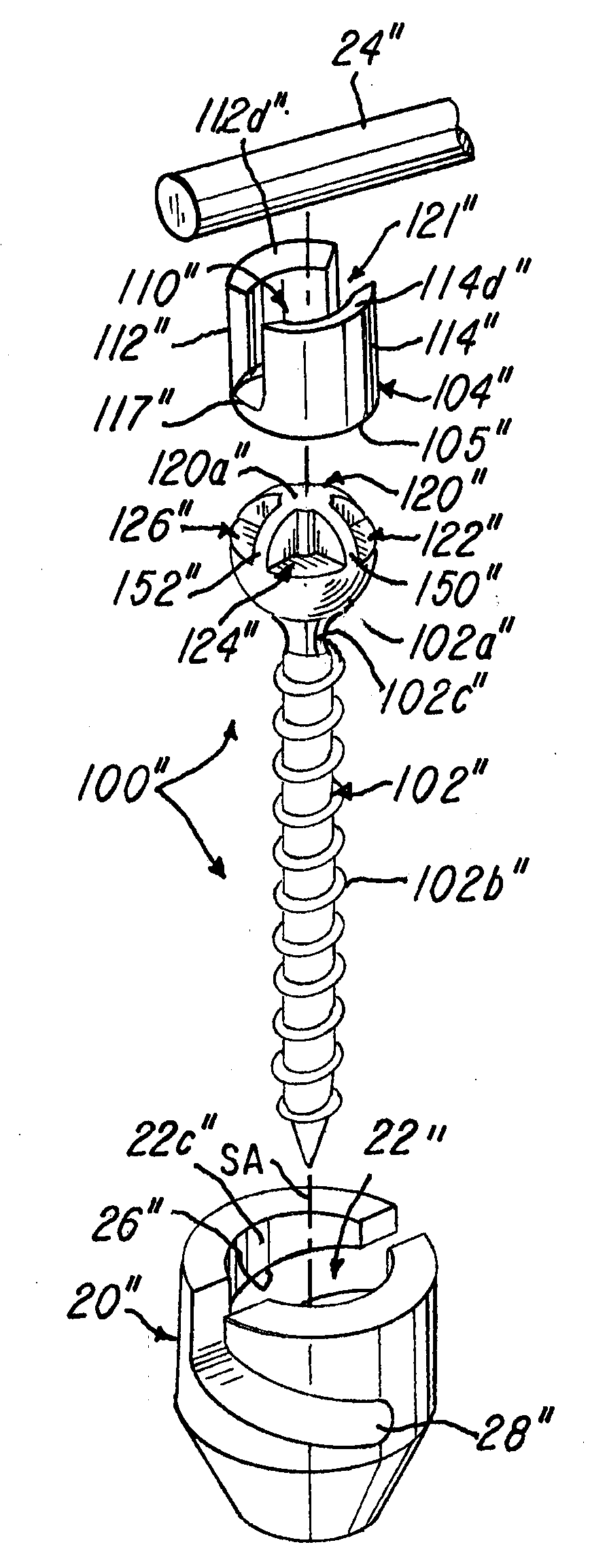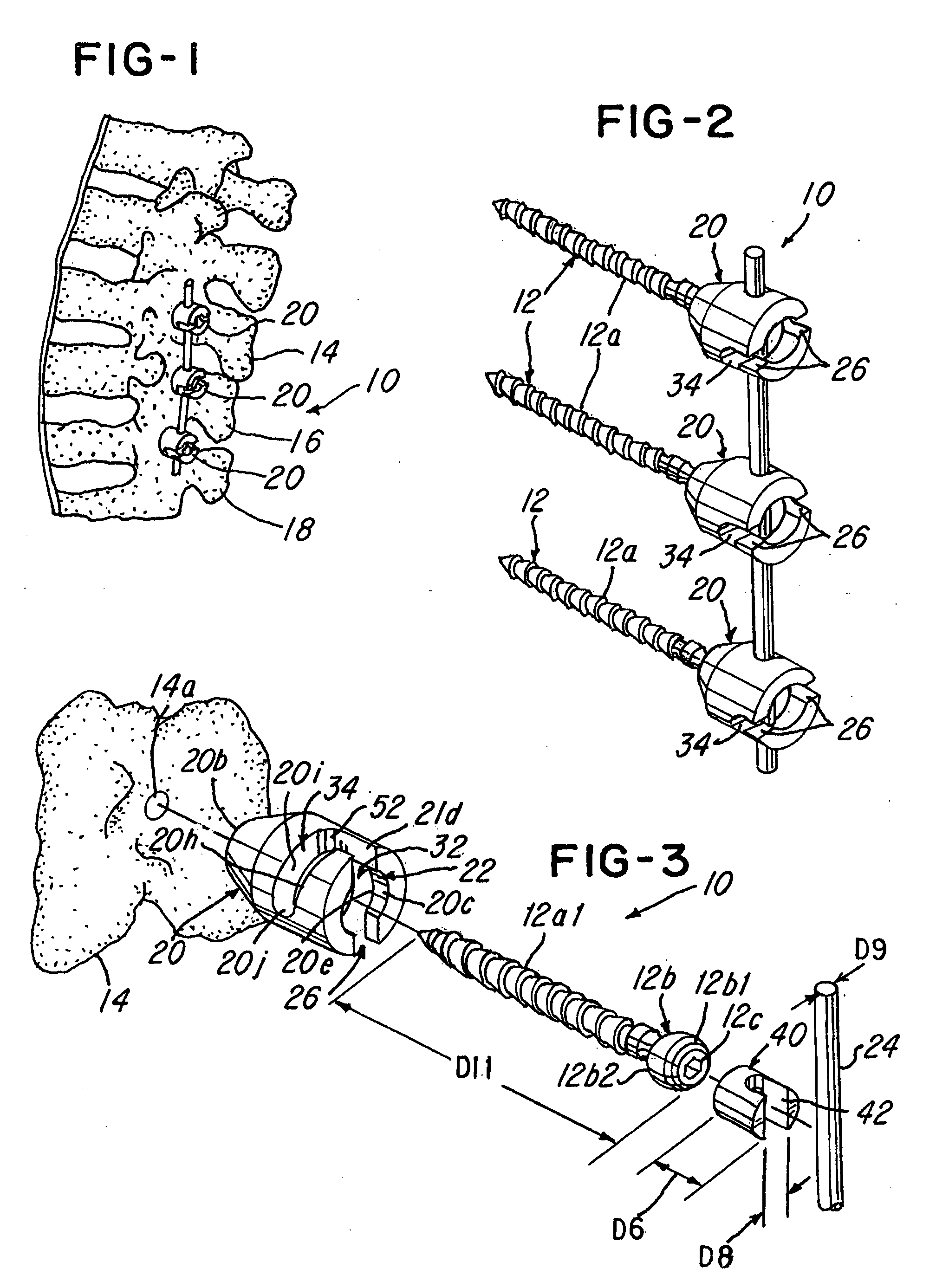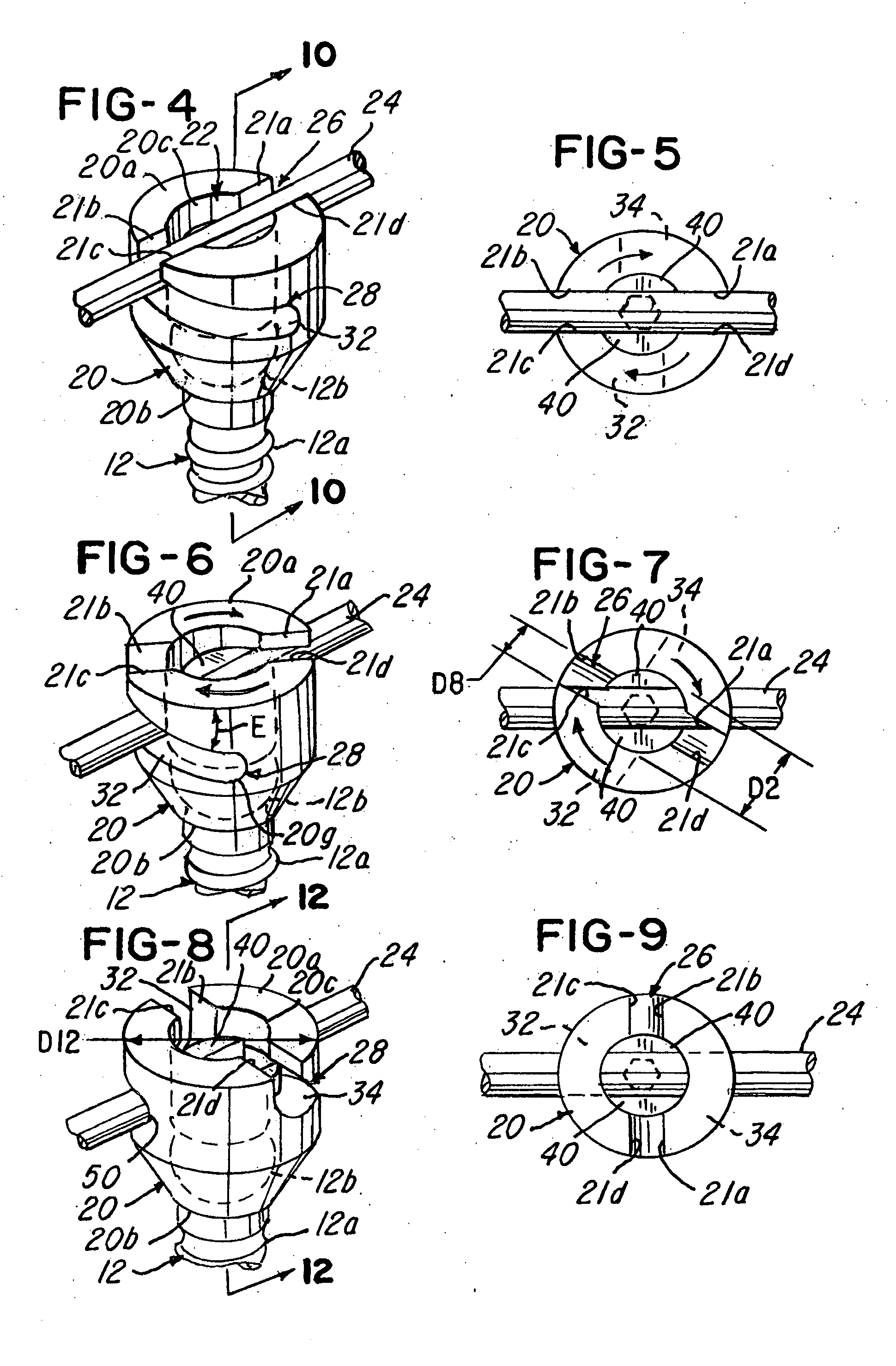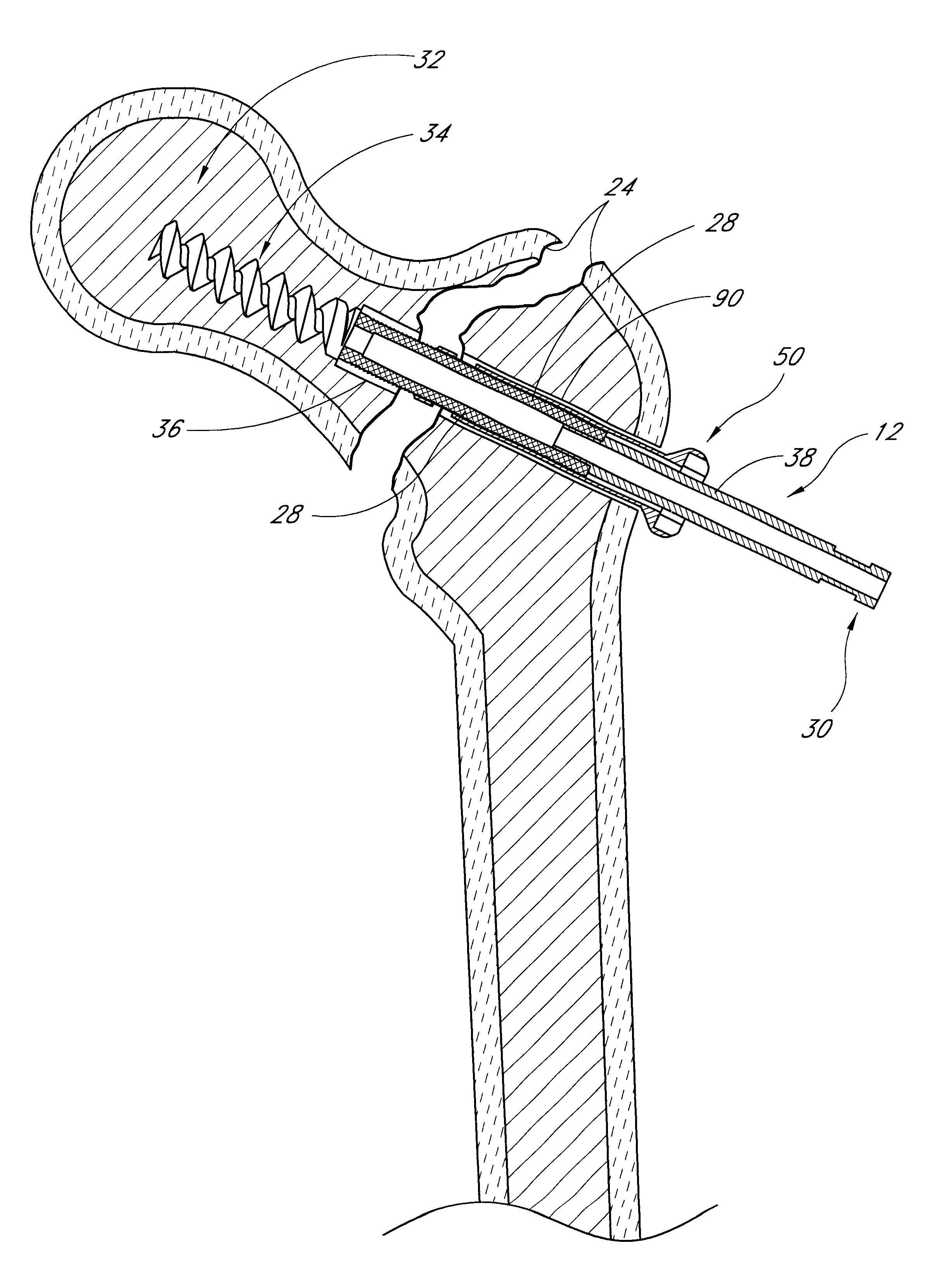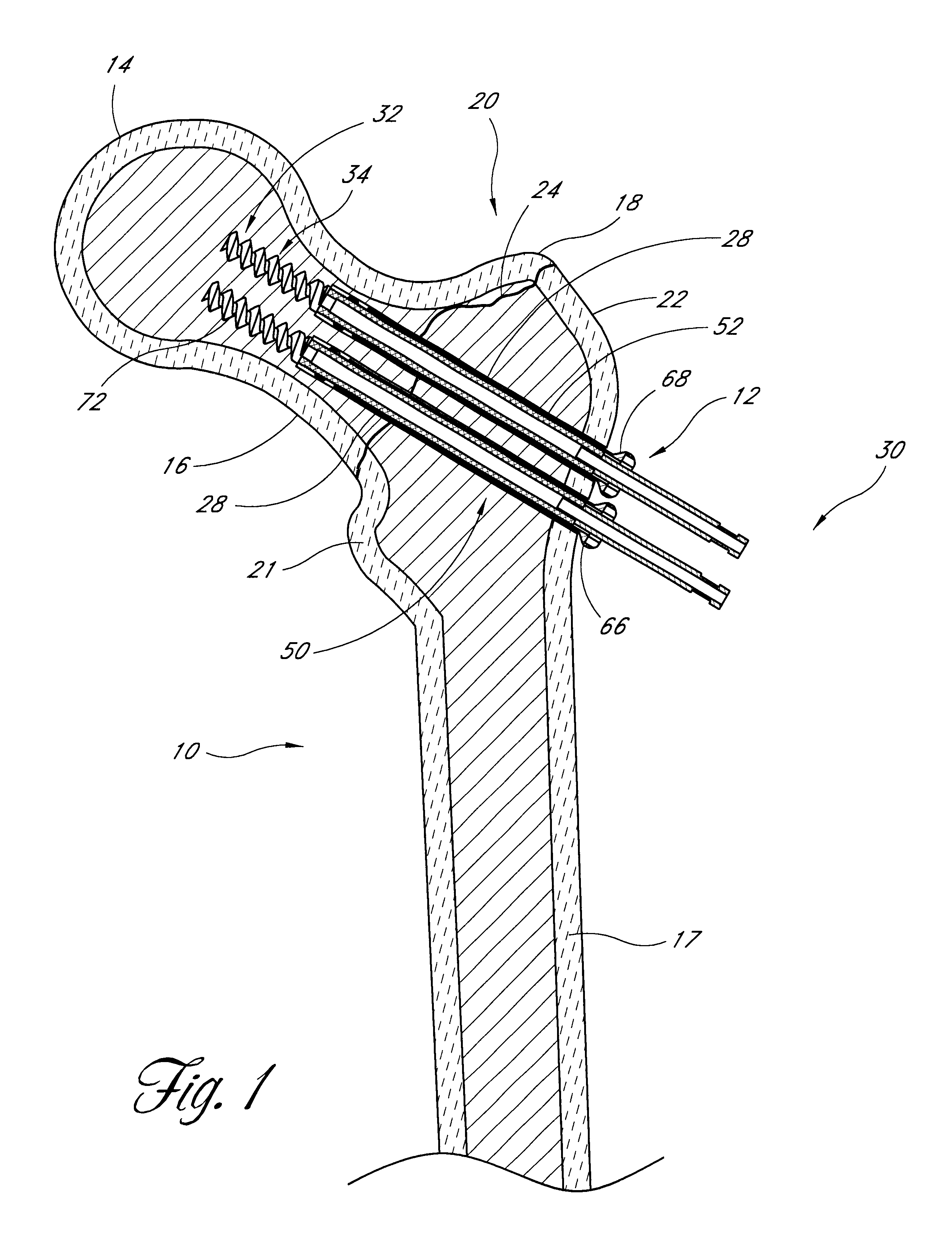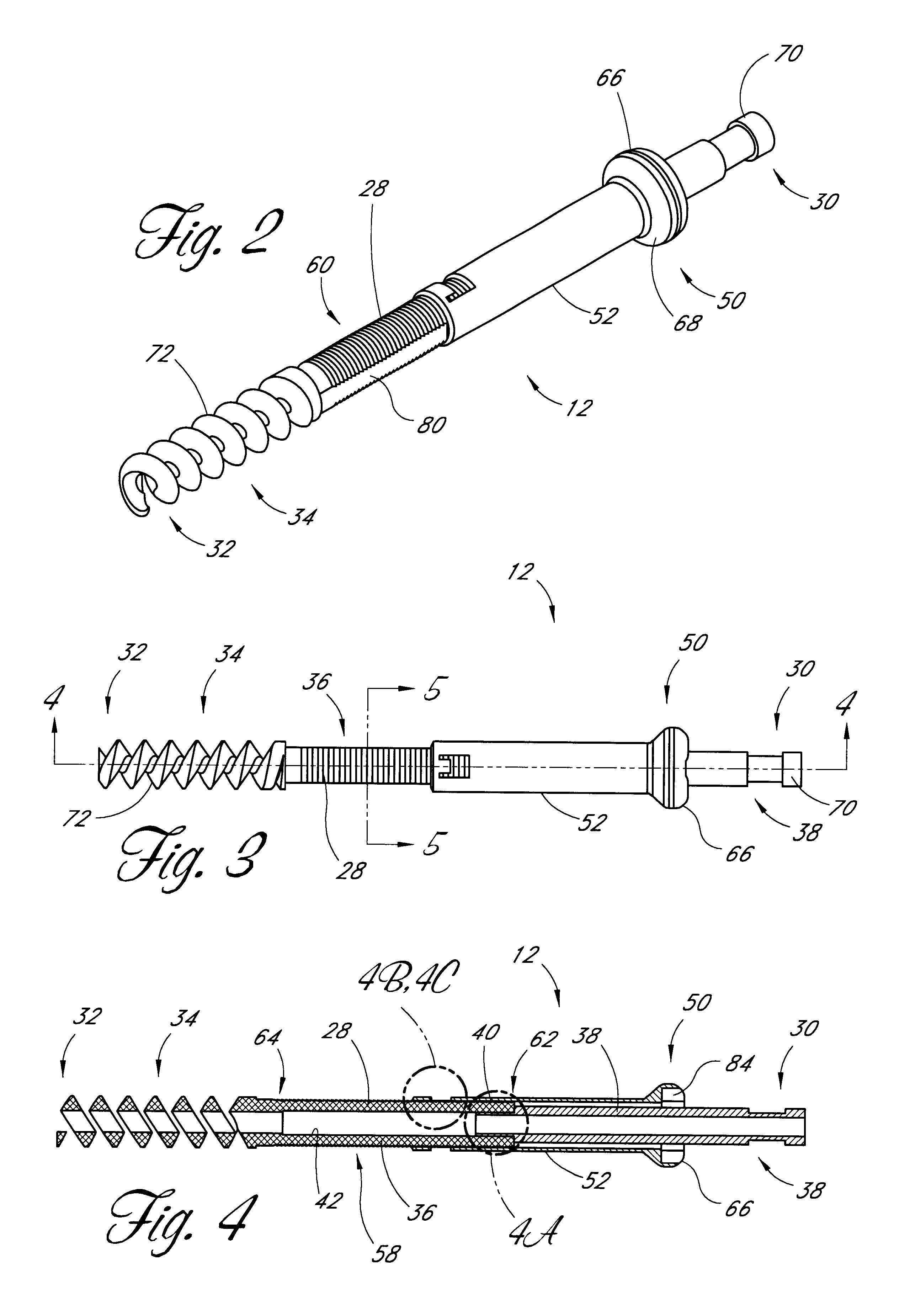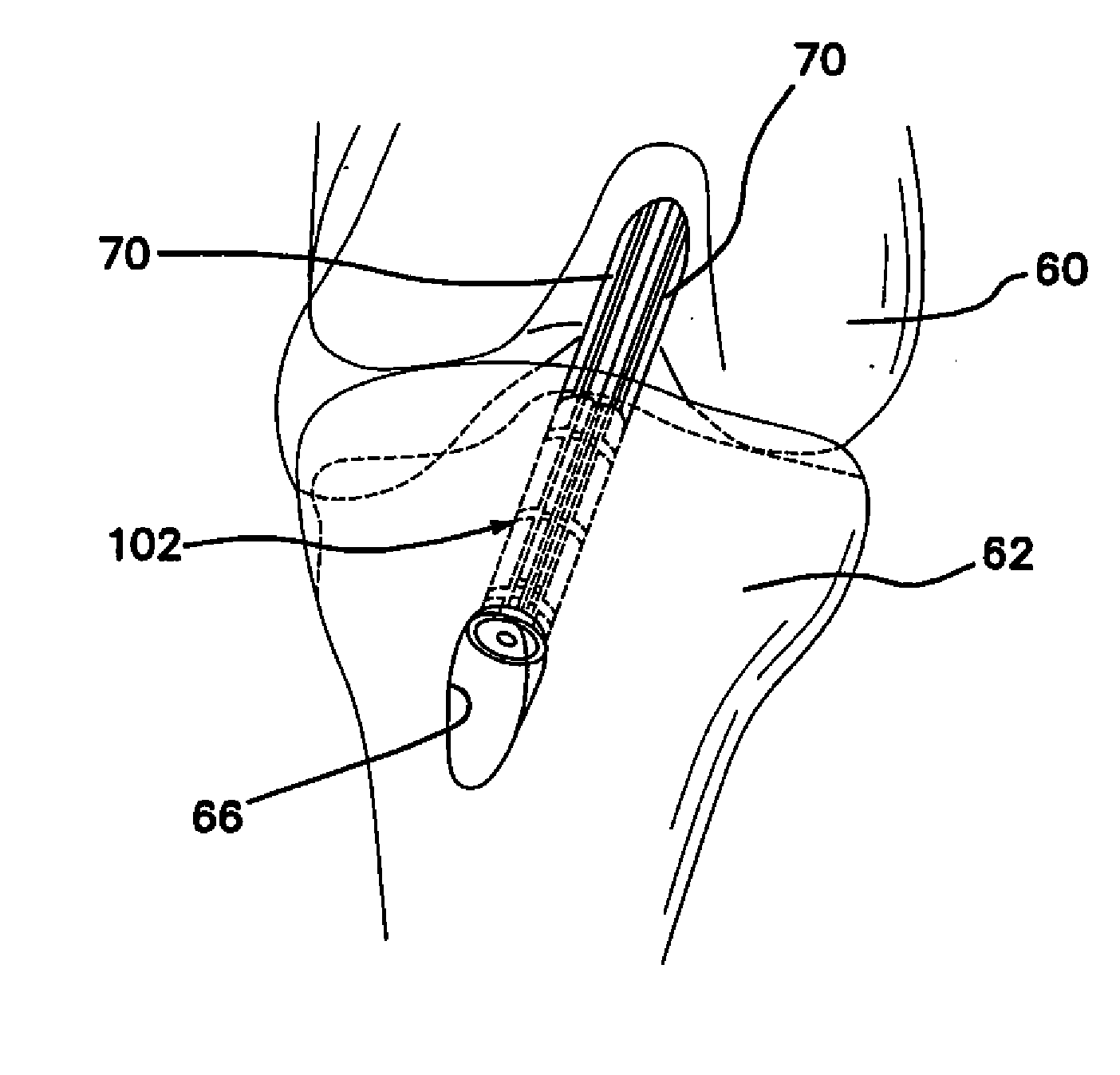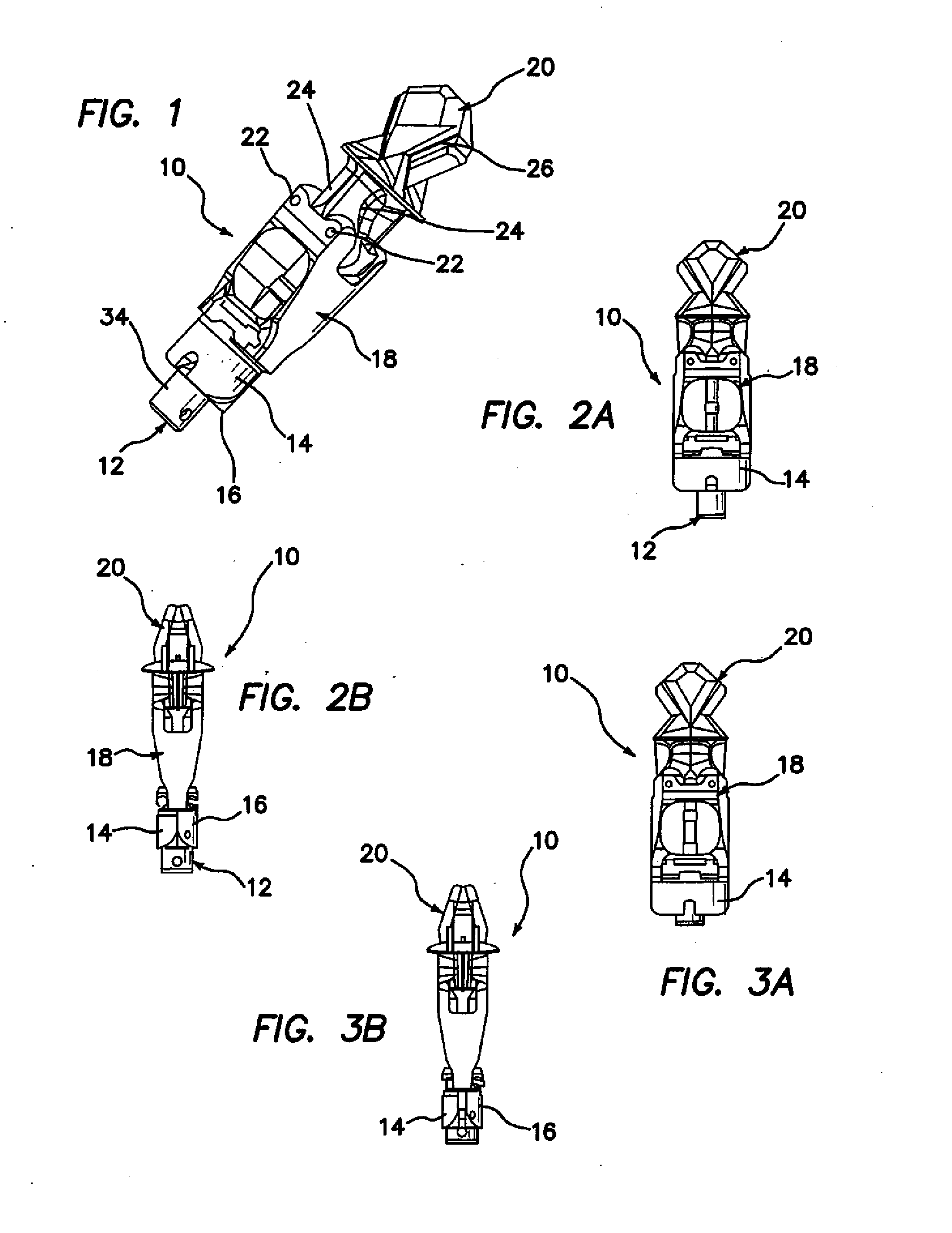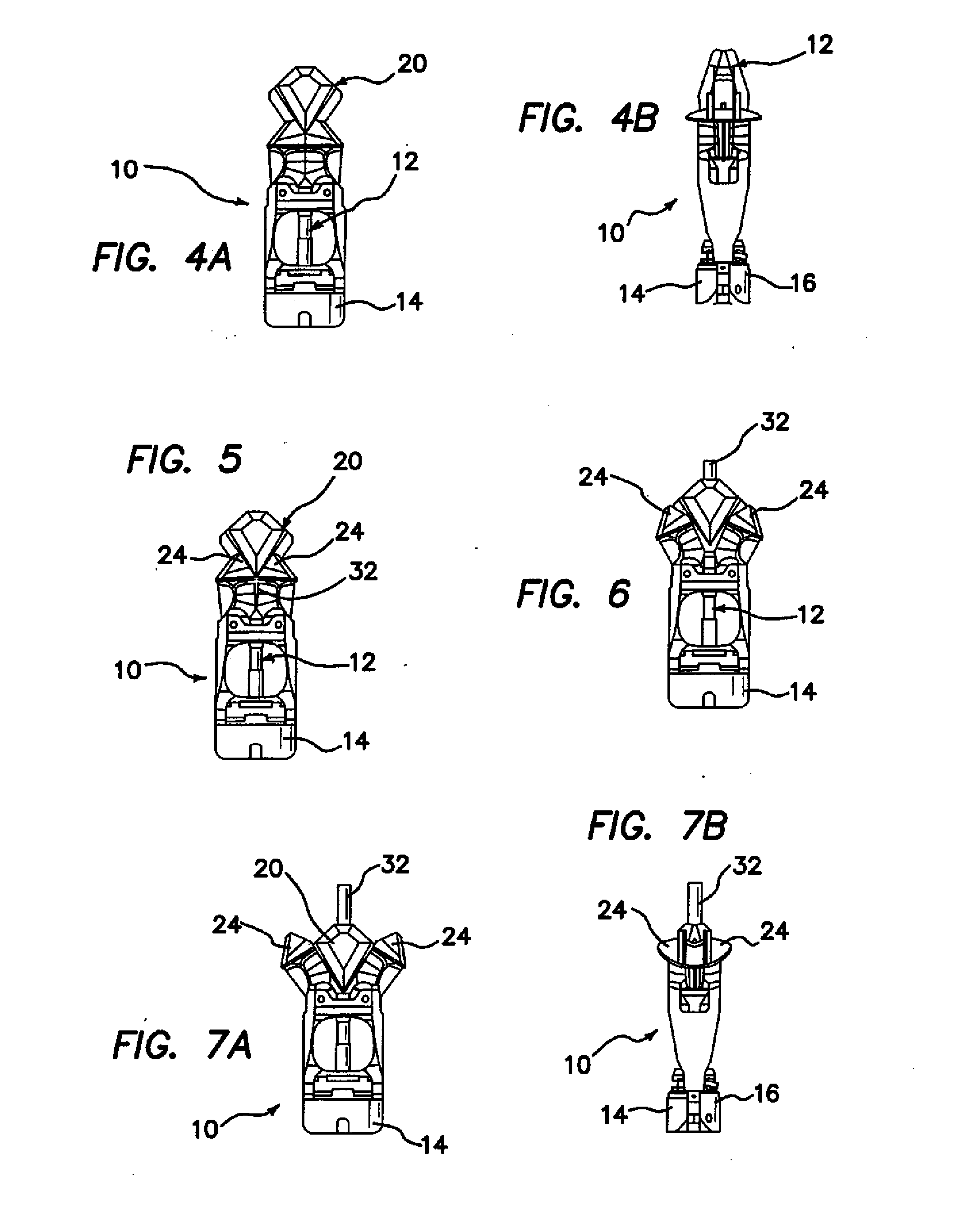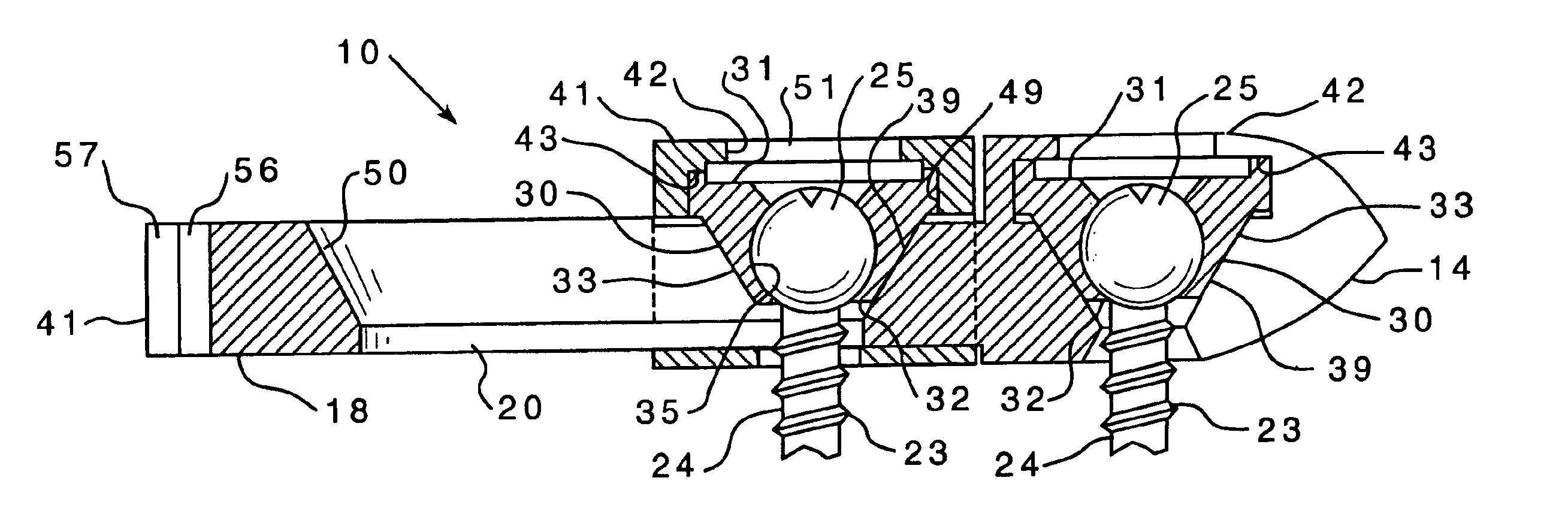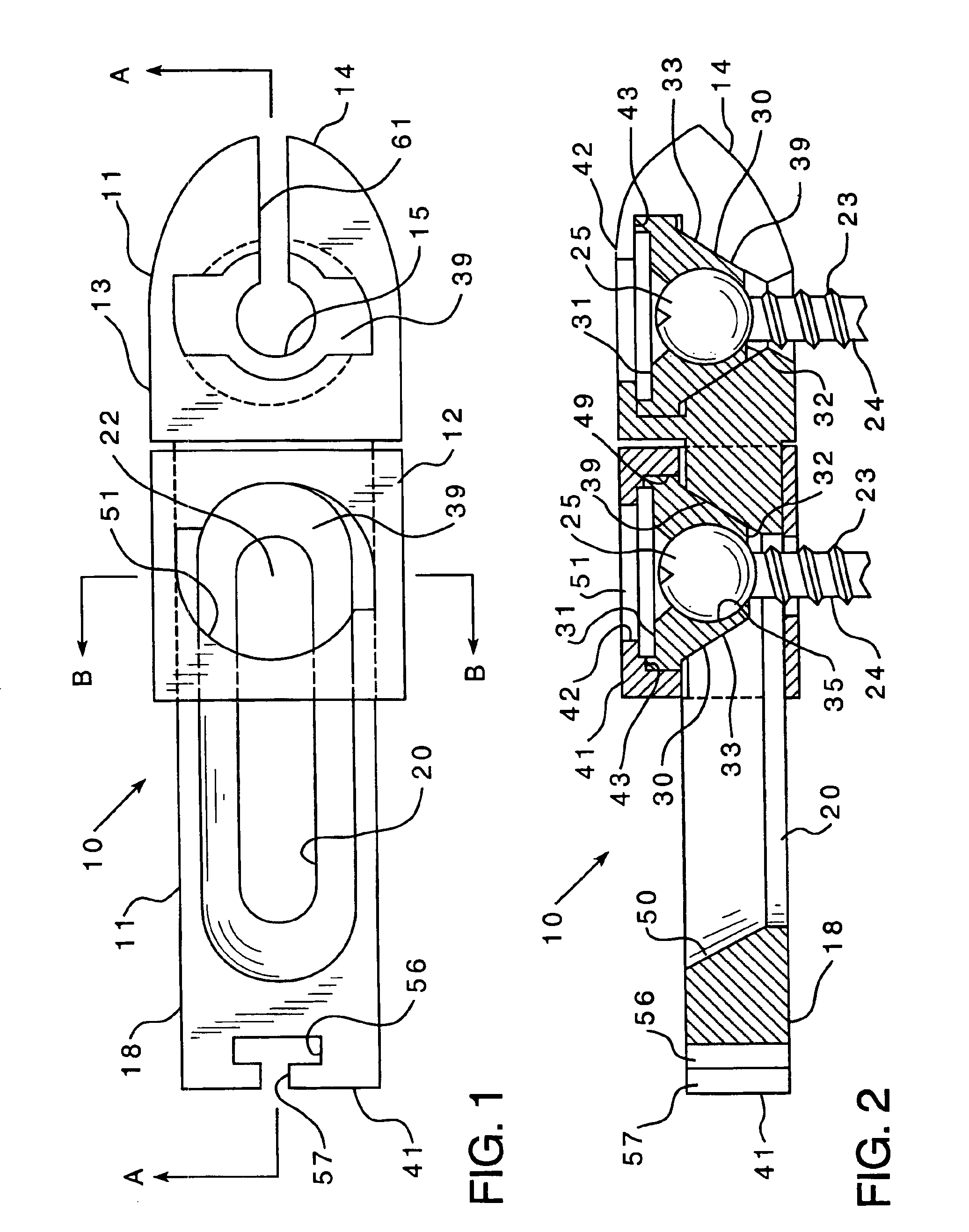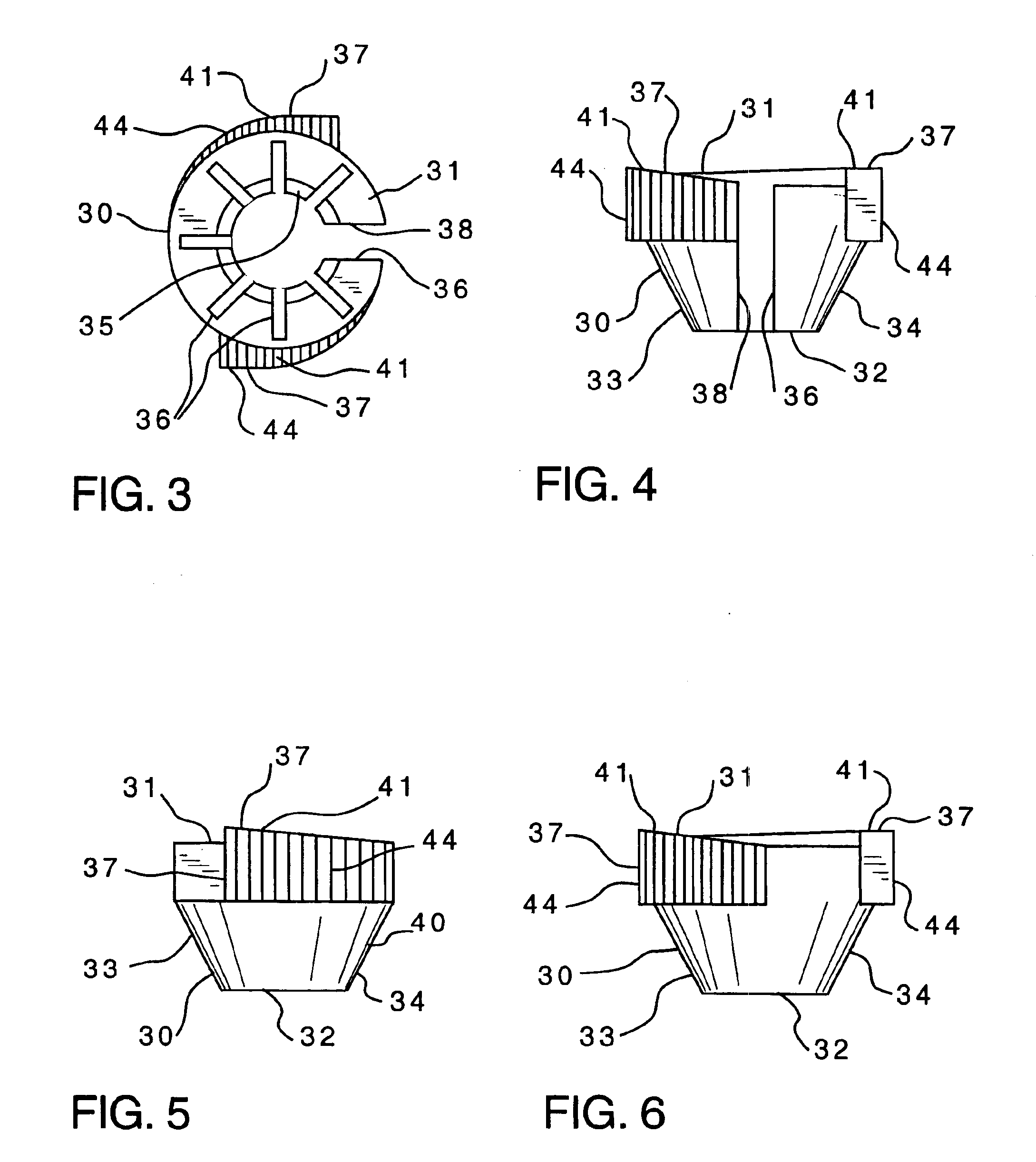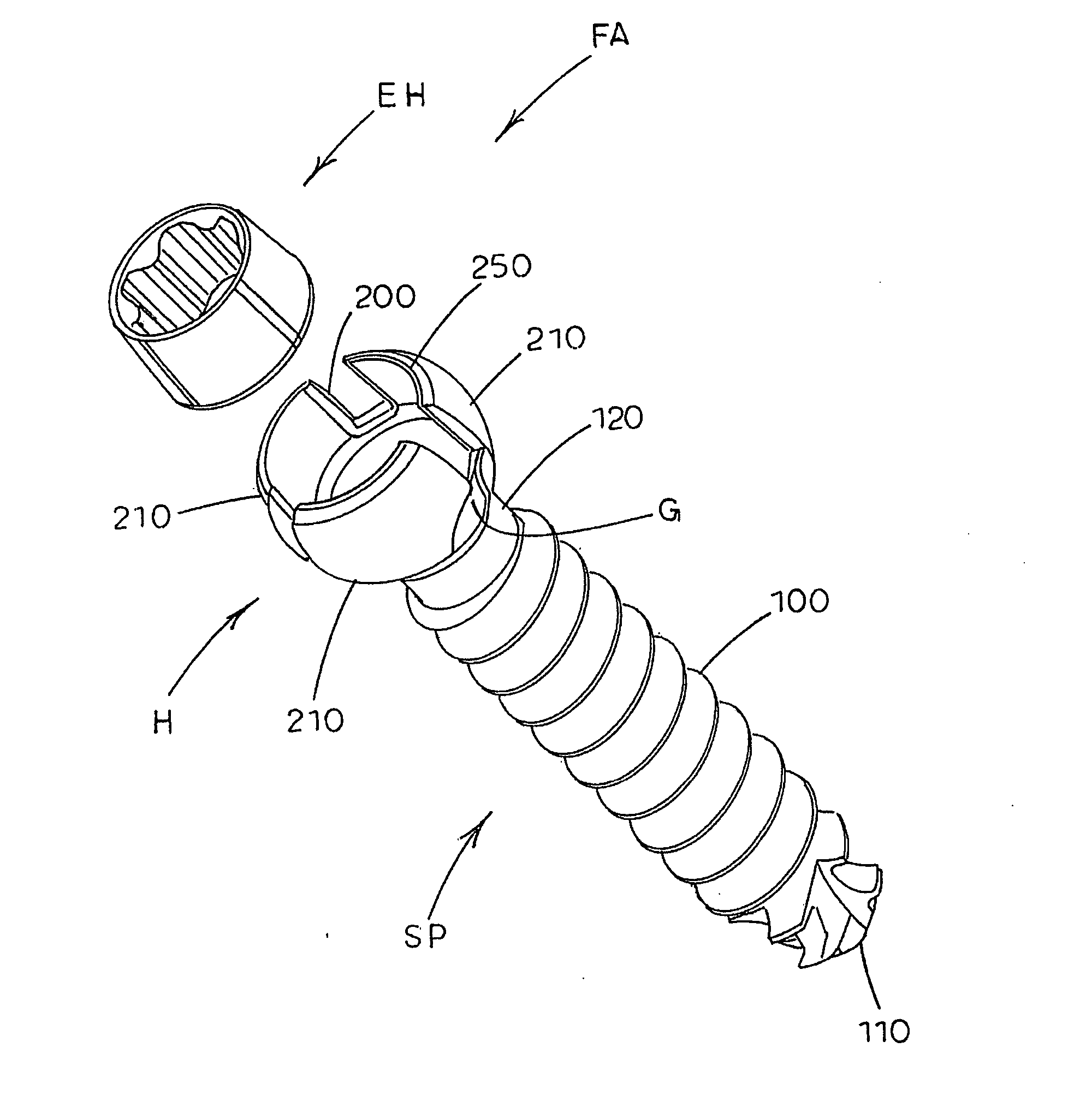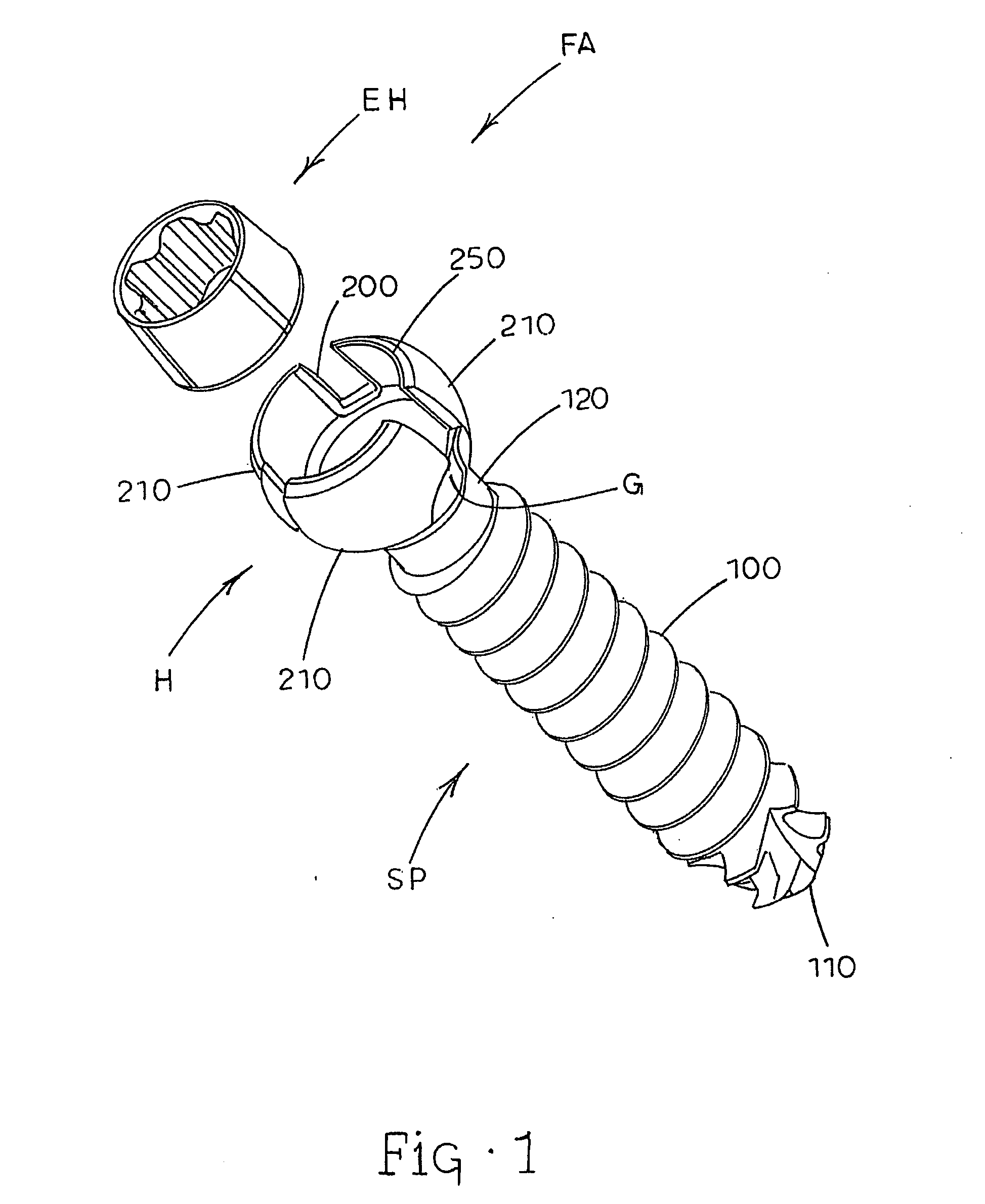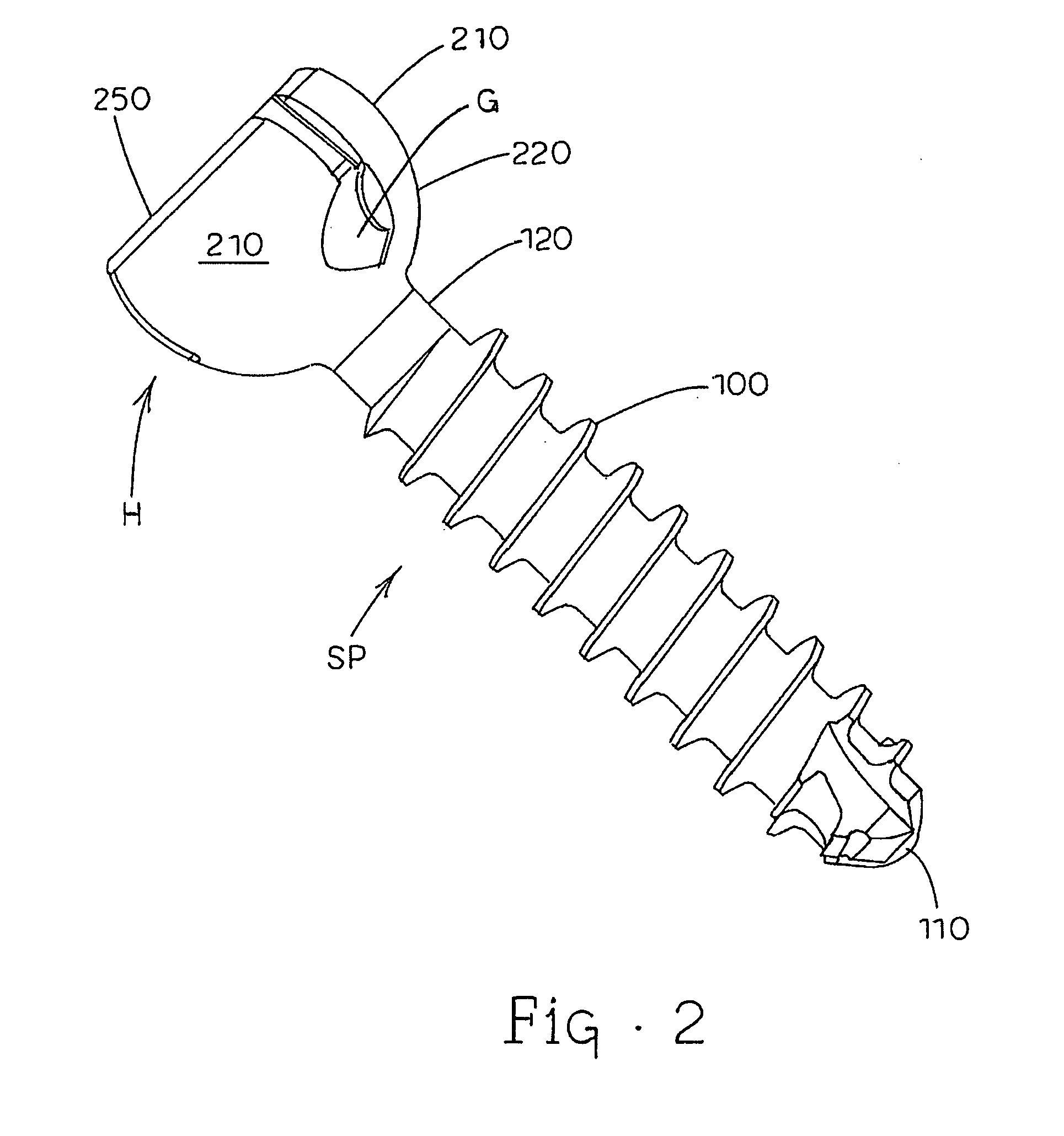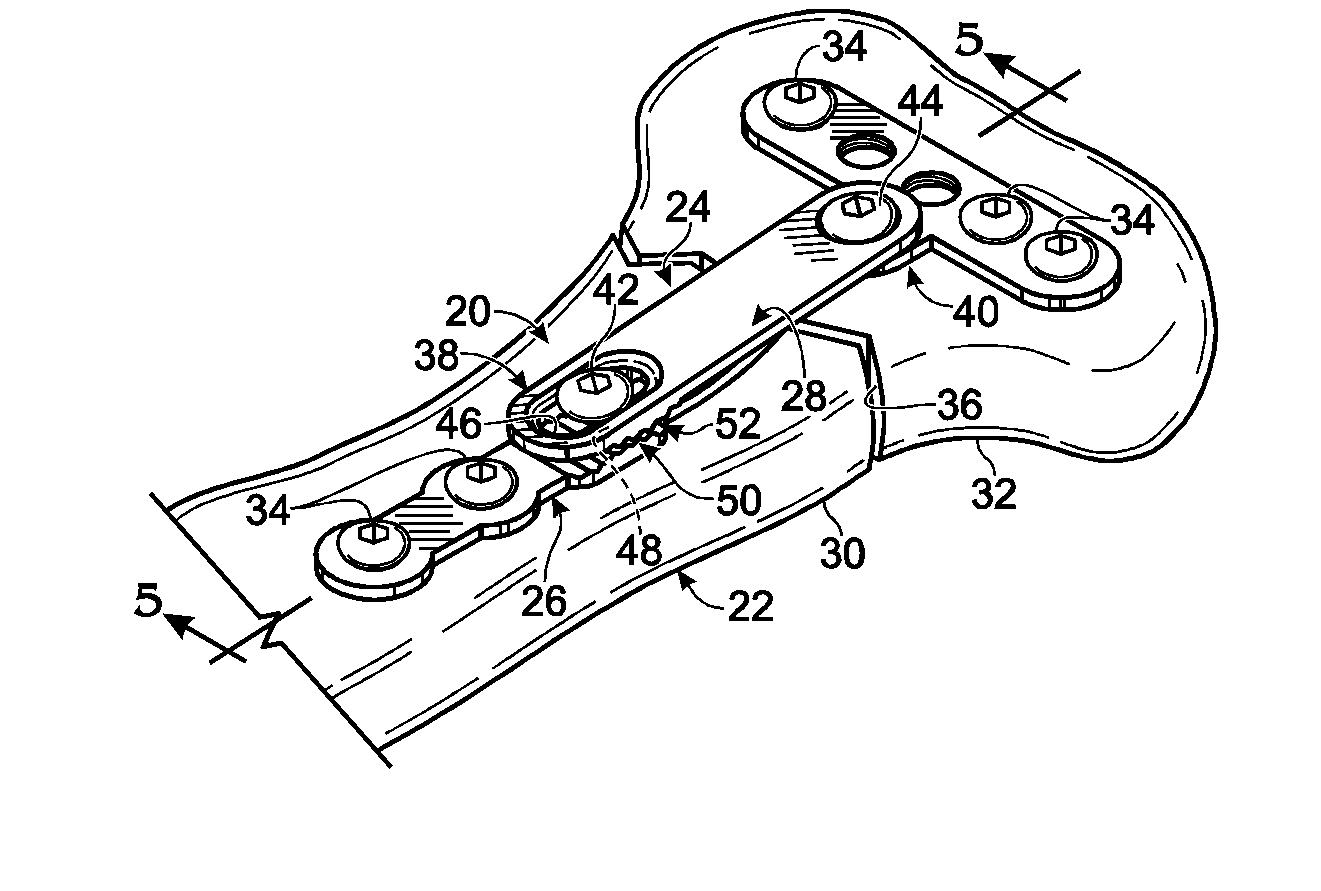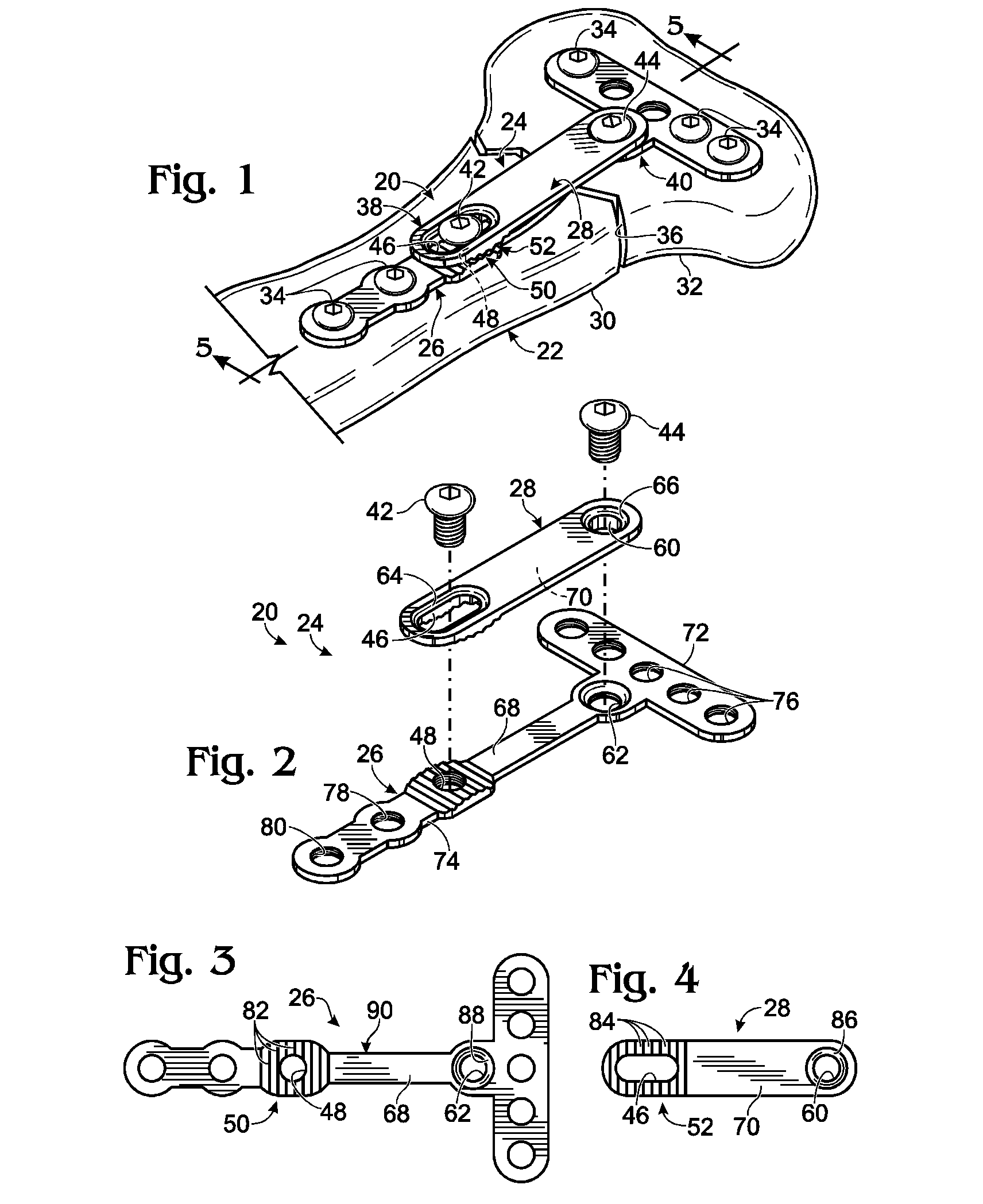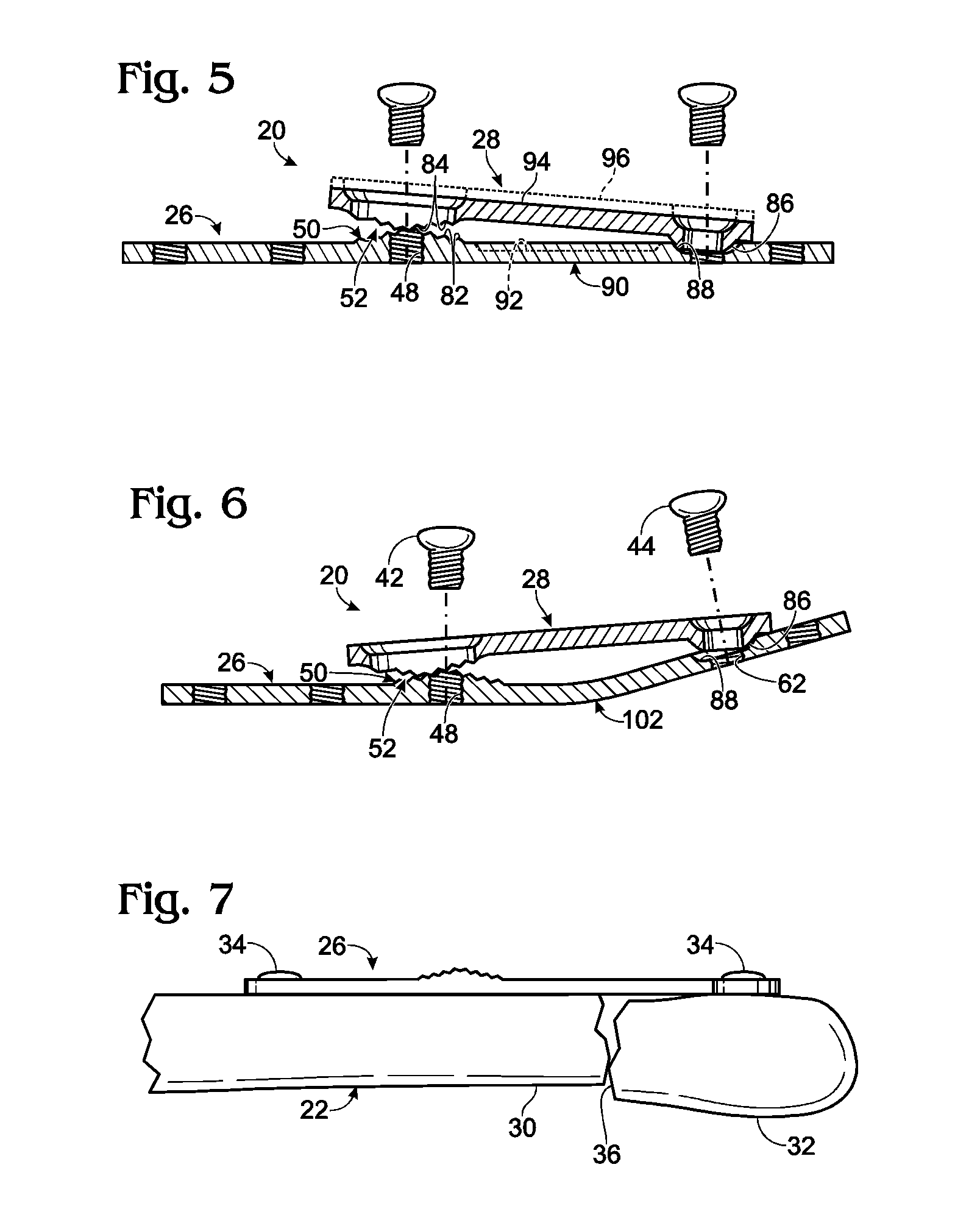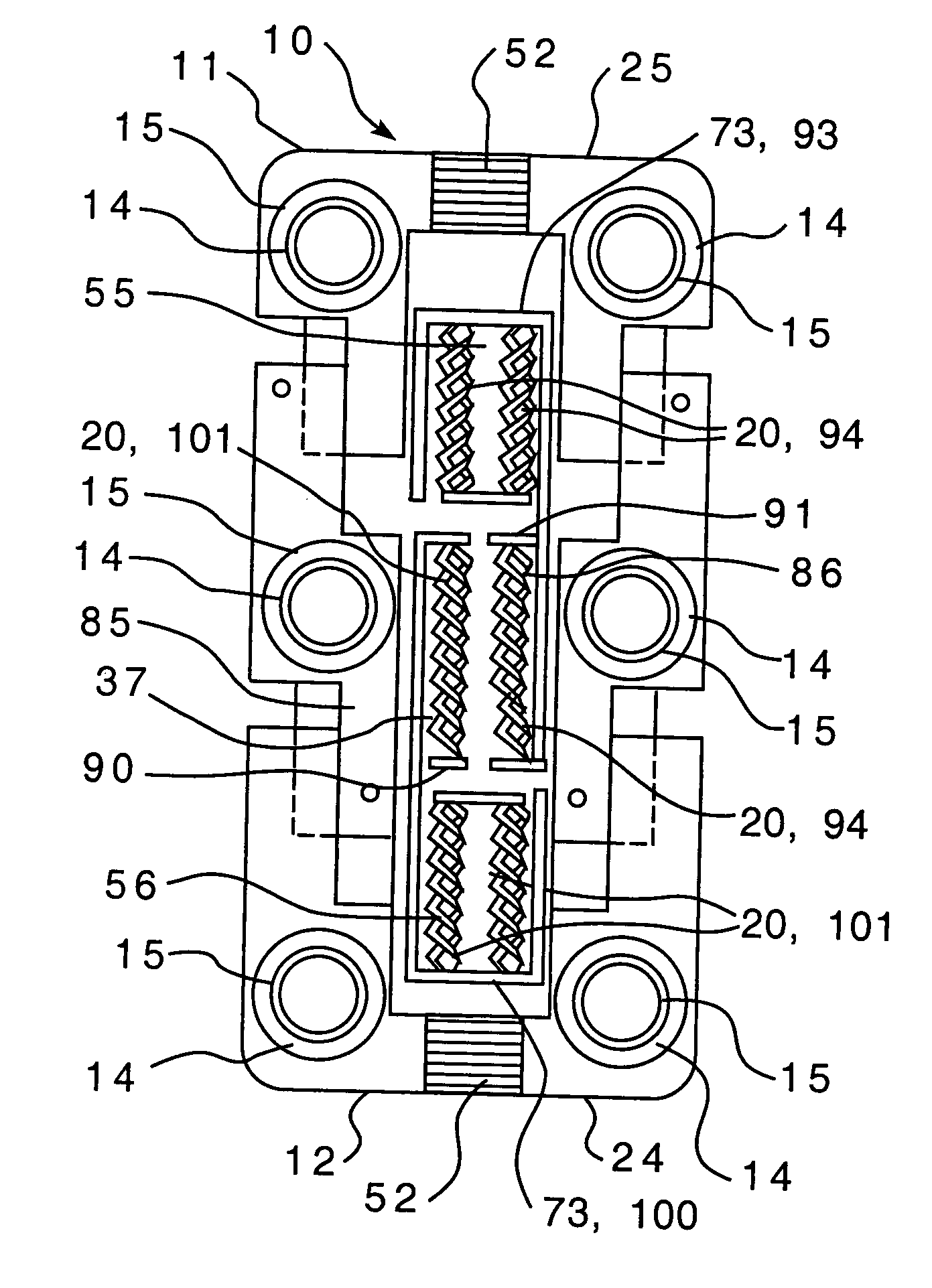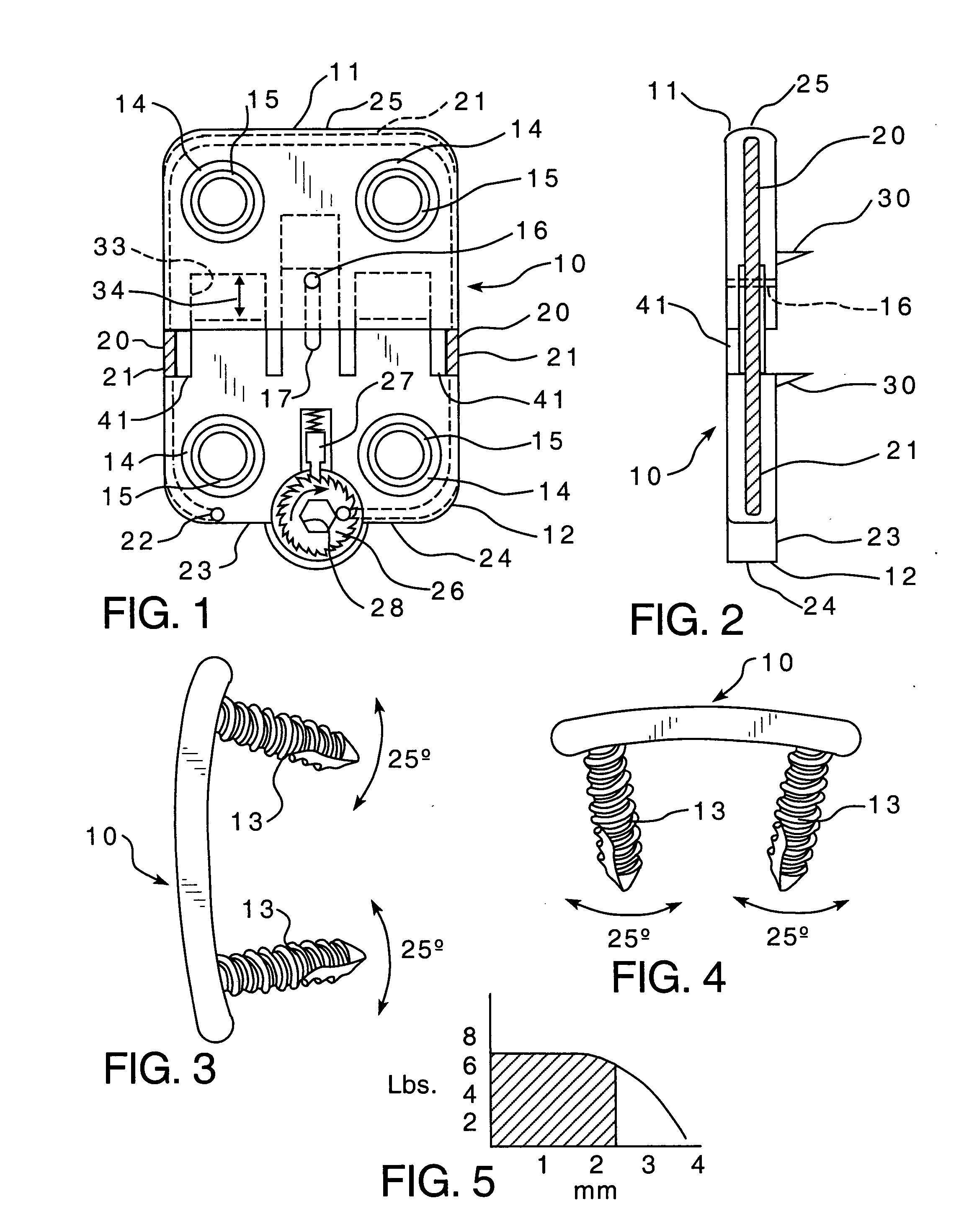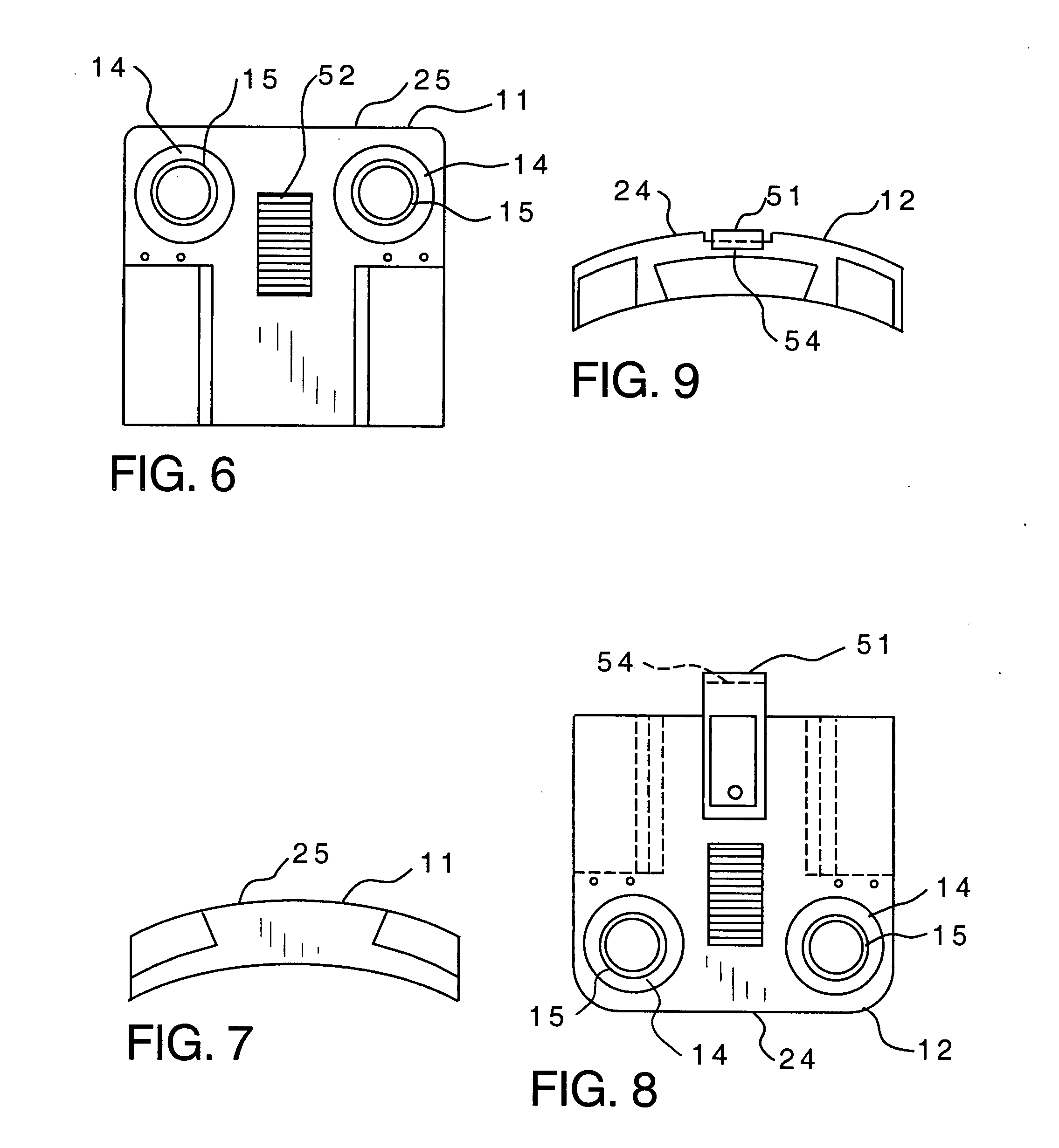Patents
Literature
Hiro is an intelligent assistant for R&D personnel, combined with Patent DNA, to facilitate innovative research.
741 results about "Bone fixation" patented technology
Efficacy Topic
Property
Owner
Technical Advancement
Application Domain
Technology Topic
Technology Field Word
Patent Country/Region
Patent Type
Patent Status
Application Year
Inventor
Internal fixation of the bone is a type of fixation where the fixing device is not exposed to outside environment as it is buried under the soft tissue. This is in contrast to external fixation. Bone acts as a supporting structure and transmits load. Different forces that act on bone are compression, tension and shear.
Method and apparatus for bone fracture fixation
InactiveUS7052499B2Easy to separateEasy to useSuture equipmentsLigamentsBone fixationBiomedical engineering
An elongated plate for coupling severed bone regions comprising at least one bridge region, the at least one bridge region terminating in at least two bone fixation regions. The at least two bone fixation regions each contain at least one aperture for receiving a suitable fastening device for securing the elongated plate to the bone regions to be coupled. The bridge region may be configured so as to be easily severed by a suitable severing device such as surgical scissors. The elongated plate and fastening device may be formed from a bio-compatible or bio-resorbable material.
Owner:ZIMMER BIOMET CMF & THORACIC
Bone fixation tool
A tool and a method are provided for driving a bone pin into a fractured bone to stabilize the fractured bone by maintaining the fractured bone in a reduced state. The tool may be a handheld device including a cartridge having at least one passageway that receives the bone pin. The tool may also include a pneumatically-powered piston having a needle that is sized for receipt within the passageway of the cartridge, the needle applying sufficient force to the bone pin to drive the bone pin out of the cartridge and into the fractured bone.
Owner:ZIMMER INC
Multi-Directional fasteners or attachment devices for spinal implant elements
InactiveUS6019759AIncreased bone volumeAvoid damageSuture equipmentsInternal osteosythesisMultiple pointSpinal implant
An apparatus, method and system for treating spinal conditions by moving or spatially fixing at least one vertebra relative to another vertebra. The invention includes a link member the ends of which are configured to be secured to adjacent vertebrae and which are offset from a central portion of the link member. The link members can be in the form of a C-shaped or V-shaped rod or plate to form the offset. The offset provides increased bone volume that can be used for grafts or fusion. Attachment structure in the form of bone screws, bolts, or hook members are provided to secure the link members to respective vertebrae or other bones. A plurality of link members can be connected in chain-like fashion to connect multiple points on a plurality of vertebrae or other bones even though those points are nonlinear. In another aspect of the invention, a multi-directional attachment member is provided and may be used with the link members to form a spinal implant or external bone fixation system.
Owner:ROGOZINSKI CHAIM
Implants formed of shape memory polymeric material for spinal fixation
ActiveUS20050033295A1Absorb energySuture equipmentsInternal osteosythesisJoint arthrodesisImplanted device
This invention relates to a orthopedic implant that comprises a shape memory polymeric material. The orthopedic implant can be fabricated or molded in a desired configuration selected to provide support or tension to bony structures. Examples of implantable devices include spinal rods, bone plates, and bone fixation cords. The orthopedic implant can be deformed to a second configuration different from the first configuration either prior to implantation or after implantation. When desired, the shape memory polymeric material can be induced to revert to it original molded configuration. This can compress the attached bony structure and / or promote arthrodesis.
Owner:WARSAW ORTHOPEDIC INC
Variable angle locked bone fixation system
Owner:SYNTHES USA
Biased angulation bone fixation assembly
InactiveUS6974460B2Reduce the overall diameterFacilitate pivotal movementSuture equipmentsInternal osteosythesisCouplingPlastic surgery
A bone fixation assembly including a coupling element having an inner surface defining a first bore coaxial with a first longitudinal axis, and a second bore coaxial with a second longitudinal axis, whereby the second longitudinal axis intersects the first longitudinal axis. The coupling element has a seat adjacent the lower end of the coupling element, the seat being defined by the inner surface of the coupling element. The assembly includes an anchoring element assembled with the coupling element, the anchoring element having a first end for insertion into bone and a head spaced from the first end, the head being in contact with the seat of the coupling element. The assembly provides sufficient angulation between adjacent anchoring elements securing a common orthopedic rod, and is particularly useful for assemblies mounted in spines having abnormal curvatures and in the cervicothoracic region of the spine.
Owner:STRYKER EURO OPERATIONS HLDG LLC
Method and apparatus for bone fracture fixation
InactiveUS20020128654A1Easy to separateEasy to useSuture equipmentsLigamentsBone fixationBiomedical engineering
An elongated plate for coupling severed bone regions comprising at least one bridge region, the at least one bridge region terminating in at least two bone fixation regions. The at least two bone fixation regions each contain at least one aperture for receiving a suitable fastening device for securing the elongated plate to the bone regions to be coupled. The bridge region may be configured so as to be easily severed by a suitable severing device such as surgical scissors. The elongated plate and fastening device may be formed from a bio-compatible or bio-resorbable material.
Owner:ZIMMER BIOMET CMF & THORACIC
Bone fixation plate with self-locking screws
InactiveUS20060276793A1Solve the lack of spaceHigh strengthSuture equipmentsLigamentsEngineeringSelf locking
A dynamic bone fixation plate assembly includes a bone plate with at least one fastener-receiving aperture, and at least one self-locking fastener. Each fastener includes a threaded shaft or shank for secure engagement with patient bone, and a head for engaging the bone plate in a manner providing a low profile orthopedic device. The fastener shank includes features lock the fastener to the bone plate to prevent the fastener from backing out of the bone plate while still allowing rotational movement between the fastener and the plate. Utilizing the features of the present invention, the bone plate controllably subsides and settles into a position of stability.
Owner:AMEDICA A DELAWARE
Method and apparatus for bone fixation with secondary compression
Disclosed is a fracture fixation device, for reducing and compressing fractures in a bone. The fixation device includes an elongate body. An axially moveable proximal anchor is carried by the proximal end of the fixation device and comprises a tubular sleeve that includes a plurality of graduations positioned on an outer surface of the tubular sleeve. The device is rotated into position across the femoral neck and into the femoral head, and the proximal anchor is distally advanced to lock the device into place. In certain embodiments, the elongated body includes a distal anchor with a distal cutting tip.
Owner:DEPUY SYNTHES PROD INC
Zero-profile interbody spacer and coupled plate assembly
InactiveUS20100145460A1Avoid problemsPrevent over-insertionInternal osteosythesisSpinal implantsIntervertebral diskBiomedical engineering
An implant for insertion into the disc space between vertebrae. The implant including a spacer portion, a plate portion coupled to the spacer portion, a plurality of bone fixation elements for engaging the vertebrae and a retention mechanism for preventing the bone fixation elements from postoperatively uncoupling from the implant.
Owner:DEPUY SYNTHES PROD INC
Distal bone anchors for bone fixation with secondary compression
Disclosed is a bone fracture fixation device, such as for reducing and compressing fractures in the proximal femur. The fixation device includes an elongate body with a helical cancellous bone anchor on a distal end. An axially moveable proximal anchor is carried by the proximal end of the fixation device. The device is rotated into position across the fracture or separation between adjacent bones and into the adjacent bone or bone fragment, and the proximal anchor is distally advanced to apply secondary compression and lock the device into place. The device may also be used for soft tissue attachments.
Owner:DEPUY SYNTHES PROD INC
Method and apparatus for bone fracture fixation
InactiveUS20050065521A1Easy to separateEases engagementFastenersBone platesOrthodonticsBone fixation
A plate for coupling severed bone regions comprising at least one bridge region, the at least one bridge region terminating in at least two bone fixation regions. The at least two bone fixation regions each contain at least one aperture for receiving a suitable fastening device for securing the plate to the bone regions to be coupled. The bridge region may be configured so as to be easily severed by a suitable severing device such as surgical scissors. The plate and fastening device may be formed from a bio-compatible or bio-resorbable material.
Owner:BIOMET MICROFIXATION
Bone fixation systems and methods of assembling and/or installing the same
A pedicle screw system includes a pedicle screw and a tulip assembly. A rod is inserted and fixed in the pedicle screw system to surgically connect vertebral bodies. The pedicle screw includes a head portion and a threaded shaft. In one embodiment, the tulip assembly includes a tulip body, a rod-support member, a collar member, a cap, and a fastening member. The tulip body has an upper portion and a lower portion, these portions being displaceable in opposite directions relative to an intermediate web. The tulip body can be intra-operatively coupled to the pedicle screw after the screw has been inserted into the bone. The cap engages with the tulip body to lock the tulip body onto the pedicle screw and thus fix the tulip body at a desired angle relative to the pedicle screw.
Owner:ALPINESPINE
Bone fixation system with low profile fastener
A low profile orthopedic device is used to fix and stabilize bones to correct anomalies in skeletal structure occurring naturally or by trauma. Bone screws are screwed into bones by application of torque. Clamps are movably attached to the screws. Each clamp includes a compression ring. A connecting rod connects several screws through slots in the clamps. The clamps are tightened to hold the rod and the heads in a pre-selected position by linear movement of the compression rings.
Owner:SPINAL
Zero-profile interbody spacer and coupled plate assembly
ActiveUS20100145459A1Prevent over insertionPrevent insertionInternal osteosythesisSpinal implantsPropellerIntervertebral disk
An implant for insertion into a disc space between vertebrae, wherein the implant includes a spacer portion, a plate portion coupled to the spacer portion, two bone fixation elements for engaging the vertebrae and a retention mechanism for preventing the bone fixation elements from postoperatively backing-out of the plate portion. The retention mechanism may be in the form of a spring biased snapper element that is biased into communication with the bone fixation elements so that once the bone fixation element advances past the snapper element, the snapper element is biased back to its initial position in which the snapper element interfaces with the bone fixation elements. Alternatively, the retention mechanism may be in the form of a propeller rotatable between a first position in which the bone fixation elements are insertable to a second position where the bone fixation elements are prevented from backing-out.
Owner:DEPUY SYNTHES PROD INC
Rod Coupling Assembly and Methods for Bone Fixation
InactiveUS20090105770A1Eliminate needLittle strengthSuture equipmentsInternal osteosythesisCouplingEngineering
A coupling device for securing an elongate member to the spine is provided. The coupling device comprises a compressible inner member that secures an anchor member therein when the inner member is axially shifted within an outer member. Structures are provided to prevent disassembly of the anchor and coupling device prior to locking of the elongate member.
Owner:PIONEER SURGICAL TECH INC
Devices, systems and methods for material fixation
A material fixation system is particularly adapted to improve the tendon-to-bone fixation of hamstring autografts, as well as other soft tissue ACL reconstruction techniques. The system is easy to use, requires no additional accessories, uses only a single drill hole, and can be implanted by one person. Additionally, it replicates the native ACL by compressing the tendons against the aperture of the tibial tunnel, which leads to a shorter graft and increased graft stiffness. It is adapted to accommodate single or double tendon bundle autografts or allografts. It also provides pull out strength measured to be greater than 1000 N.
Owner:CAYENNE MEDICAL INC
Bone fixation assembly and method
ActiveUS20050070901A1Reduce assemblySuture equipmentsInternal osteosythesisCouplingBiomedical engineering
A bone fixation assembly and method of fixing bones including a fixation element having a head portion, a unitary coupling element and at least one locking element. The unitary coupling element includes a first bore adapted to slidably receive the head portion of the fixation element. A first locking element is adapted to secure the head portion in the first bore.
Owner:STRYKER EURO OPERATIONS HLDG LLC
Knotless fixation of tissue to bone with suture chain
ActiveUS20070135843A1High strengthReduce tensionSuture equipmentsLigamentsHigh intensityRotator cuff
A chain of loops of braided high strength suture for soft tissue to bone fixation. The suture chain is advantageous for use in knotless fixation of soft tissue to bone, and can be used for knotless side-to-side suturing of U-shaped defects, such as rotator cuff tears. The soft tissue to bone fixation includes: (i) providing a first medial row constructed with a first plurality of fixation devices, at least one of the first plurality of fixation devices being an anchor; (ii) providing a second lateral row constructed with a second plurality of fixation devices, at least one of the second plurality of fixation devices being a knotless fixation device, (iii) providing a suture loop construct that includes at least two loops formed of and connected by suture; and (iv) fixating the suture loop construct so that it extends over the soft tissue and is secured in place by at least one of the fixation devices or anchors.
Owner:ARTHREX
Wide Angulation Coupling Members For Bone Fixation System
ActiveUS20100204735A1Preserving strength and structural integritySuture equipmentsInternal osteosythesisCouplingBone anchor
A coupling assembly is provided with a yoke device that allows an anchor member secured thereto to rotate in a turret-like manner with respect to an elongate member secured by the yoke in addition to allowing the anchor member to pivot away from the central axis of the yoke. A first yoke member holds the elongate member and is rotatably coupled to a second yoke member that holds a bone anchor. A combination of rotation of the second yoke member and pivoting of the anchor member allows the anchor to be positioned in a wide variety of orientations with respect to the yoke device and elongate member.
Owner:PIONEER SURGICAL TECH INC
Apparatuses, systems and methods for bone fixation
Apparatuses, systems and methods for bone fixation are disclosed herein. A fixation apparatus is disclosed having a head portion having outer wall sections at least partially surrounding a central hollow area, and the head portion also having an inner bottom surface. A shank portion can extend from the head portion. An expander hub is provided for positioning at least partially within the central hollow area of the head portion and can be seated at least partially on the inner bottom surface of the head portion. The expander hub is rotatable to force the outer wall sections of the head portion outwardly for engaging and locking the fixation apparatus in place when the fixation apparatus is positioned within a hole of a plate. The fixation apparatus can advantageously be used with a plate whereby the fixation apparatus and plate can compress bone separately from locking the fixation apparatus in a desired position. Also, the angle, alignment or position of the fixation apparatus can be changed if desired even after locking of the fixation apparatus. Separate drivers can be used to drive the fixation apparatus, to rotate the expander hub to lock it in place, and to remove the fixation apparatus. The drivers can be cannulated as desired such that the drivers can be assembled in a nested and concentric configuration and can be used without removal from the nested configuration.
Owner:INTEGRA LIFESCI
Bone fixation system with low profile fastener
A low profile orthopedic device is used to fix and stabilize bones to correct anomalies in skeletal structure occurring naturally or by trauma. Bone screws are screwed into bones by application of torque. Clamps are movably attached to the screws. Each clamp includes a compression ring. A connecting rod connects several screws through slots in the clamps. The clamps are tightened to hold the rod and the heads in a pre-selected position by linear movement of the compression rings.
Owner:SPINAL
Capless multiaxial screw and spinal fixation assembly and method
InactiveUS20070123867A1Easy to fixFirmly connectedInternal osteosythesisJoint implantsScrew systemEngineering
Owner:X SPINE SYST
Method and apparatus for bone fixation with secondary compression
InactiveUS6890333B2Prevent movementInternal osteosythesisJoint implantsRight femoral headFemoral neck
Disclosed is a fracture fixation device, for reducing and compressing fractures in a bone. The fixation device includes an elongate body comprising a first portion and a second portion that are detachably coupled to each other. The first portion defines a helical cancellous bone anchor and the second portion defines a distal end. An axially moveable proximal anchor is carried by the proximal end of the fixation device and is rotationally locked to the first portion. The device is rotated into position across the femoral neck and into the femoral head, and the proximal anchor is distally advanced to lock the device into place. The second portion is then detached from the first portion.
Owner:DEPUY SYNTHES PROD INC
Methods and systems for material fixation
ActiveUS20080183290A1Easy to useHigh fixation of tendon-boneSuture equipmentsLigamentsTissue materialKnee Joint
A soft tissue fixation system, most typically applicable to orthopedic joint repairs, such as anterior cruciate ligament (ACL) knee repair procedures, comprises an implant which is placeable in a tunnel disposed in a portion of bone, wherein the tunnel is defined by walls comprised of bone. A first member is deployable outwardly to engage the tunnel walls for anchoring the implant in place in the tunnel, and a second member is deployable outwardly to engage tissue material to be fixed within the tunnel. The second member also functions to move the tissue material outwardly into contact with the tunnel walls to promote tendon-bone fixation. Extra graft length is eliminated by compression of the tendon against the bone at the aperture of the femoral tunnel, which more closely replicates the native ACL and increases graft stiffness. The inventive device provides high fixation of tendon to bone and active tendon-bone compression. Graft strength has been found to be greater than 1,000 N (Newtons), which is desirable for ACL reconstruction systems.
Owner:CAYENNE MEDICAL INC
Bone fixation assembly and method of securement
A bone plate is provided for fixation of spaced vertebra. The bone plate has at least one through passage for securing the plate to bone with a bone fixation screw. The threaded shaft of a bone fixation screw is inserted through a bushing located in the through passage of the bone plate and the screw is thereby threadably secured to the underlying bone and the bushing is then compressed inward against the head of the screw with cams that are actuated by rotating the bushing in the through passage whereby the screw is locked relative to the bone plate. The bushing is not only compressed inwardly against the head of the screw but is also compressed downwardly by the cams into a seat to clamp separate elements of the bone plate together.
Owner:AESCULAP INC
Systems and methods for bone fixation
Systems and methods for bone fixation are disclosed. A fixation system can have a planar fixation device and a laterally-fixed fixation apparatus. The planar fixation device can have a planar surface and at least one opening having side walls defining an at least generally cylindrical shape. The laterally-fixed fixation apparatus can have an at least generally cylindrical shaped head portion having outer wall sections at least partially surrounding a central hollow area. The head portion can have an inner bottom surface. An expander hub is provided in the fixation apparatus for positioning at least partially within the central hollow area of the head portion and can be seated at least partially on the inner bottom surface of the head portion. The expander hub is rotatable to force the outer wall sections of the head portion outwardly for engaging and locking the fixation apparatus in place in the opening. The fixation apparatus is further adapted for rotation about a longitudinal axis of the fixation apparatus without lateral toggle movement relative to the planar surface of the planar fixation device. In other aspects, systems for fixating an orthopedic guide and systems and methods for compressing bone portions are also provided.
Owner:INTEGRA LIFESCI
Bone fixation with a strut-stabilized bone plate
System, including methods, apparatus, and kits, for bone fixation using a bone plate and a strut that stabilizes the bone plate on bone.
Owner:ACUMED
Cervical compression plate assembly
InactiveUS20050043732A1Avoid distractionsLimiting distractionInternal osteosythesisSurgical instrument detailsEngineeringCervical spine
A cervical compression plate assembly having screw receiving elements at opposite ends that are configured for engaging bone fixation screws extending from respective vertebral elements. The assembly permits the distance between the screw receiving elements at opposite ends to be shortened but prevents the distance from increasing. A spring mechanism is housed within the plate assembly and is configured for continuously urging the screw receiving elements at opposite ends together for thereby providing continuous compressive loading on bone graft material disposed between the vertebral elements.
Owner:DALTON BRIAN E
Features
- R&D
- Intellectual Property
- Life Sciences
- Materials
- Tech Scout
Why Patsnap Eureka
- Unparalleled Data Quality
- Higher Quality Content
- 60% Fewer Hallucinations
Social media
Patsnap Eureka Blog
Learn More Browse by: Latest US Patents, China's latest patents, Technical Efficacy Thesaurus, Application Domain, Technology Topic, Popular Technical Reports.
© 2025 PatSnap. All rights reserved.Legal|Privacy policy|Modern Slavery Act Transparency Statement|Sitemap|About US| Contact US: help@patsnap.com
